EAST RUTHERFORD, N.J. – Dabs' Digest, Giants.com's weekly conversation with head coach Brian Daboll:
Q: You have trailed in every game this season and you already have the full-season franchise record with three wins after trailing by 10 points. If you keep the game close in the fourth quarter, does this team have confidence it can find a way to win?
Daboll: "Yes. Look, there's a way to play every game. We obviously don't want to get behind. But I think having the mindset of playing for 60 minutes and playing the next play regardless of what happened or the score or the situation, that's important for a football team."
Q: Graham Gano has played on more teams and in more games than anybody here. He said, "I've been on a bunch of teams, and on a lot of them, you can kind of sense guys just getting down. And there's not a single person on this team that gets any feeling like that." Why do you think that is? Is that something you preach?
Daboll: "Absolutely. I tried to do it all the way from (the time when) I first got here in OTAs and training camp – put them in different situations. Put the coaches in different types of situations and just go back to focusing on the next play and controlling the things you can control, which is how you play and how you coach."
Q: Daniel Jones said you preach "competitive stamina". How would you define that?
Daboll: "I would say playing fast, playing physical, being resilient, which is focusing on the next play, and finishing regardless of score or situation."
Q: With a team, you can see a personality develop during a season. Do you see a resolve developing on this team?
Daboll: "I think the guys are just trying to control what they can control. Again, I know it's boring, but play the next play. There's a lot of things that are going to come up this season, good and bad. And to maintain a consistent attitude and a consistent approach is what I want to do in our organization."
Q: You mentioned that you don't want to fall behind, but in the first half you've been outscored by 24 points. And you've outscored the opponent by almost 40 points in the second half. Does that become a dangerous way to play at some point? Do you need to play better in the first half?
Daboll: "Yeah. You always want to play well. You want to play well for 60 minutes, and we'd like to get off to a fast start. It's something that we work on. Unfortunately, we haven't had one yet. So, that's what we've been focusing on a lot."
View photos of head coach Brian Daboll's time with the New York Giants.
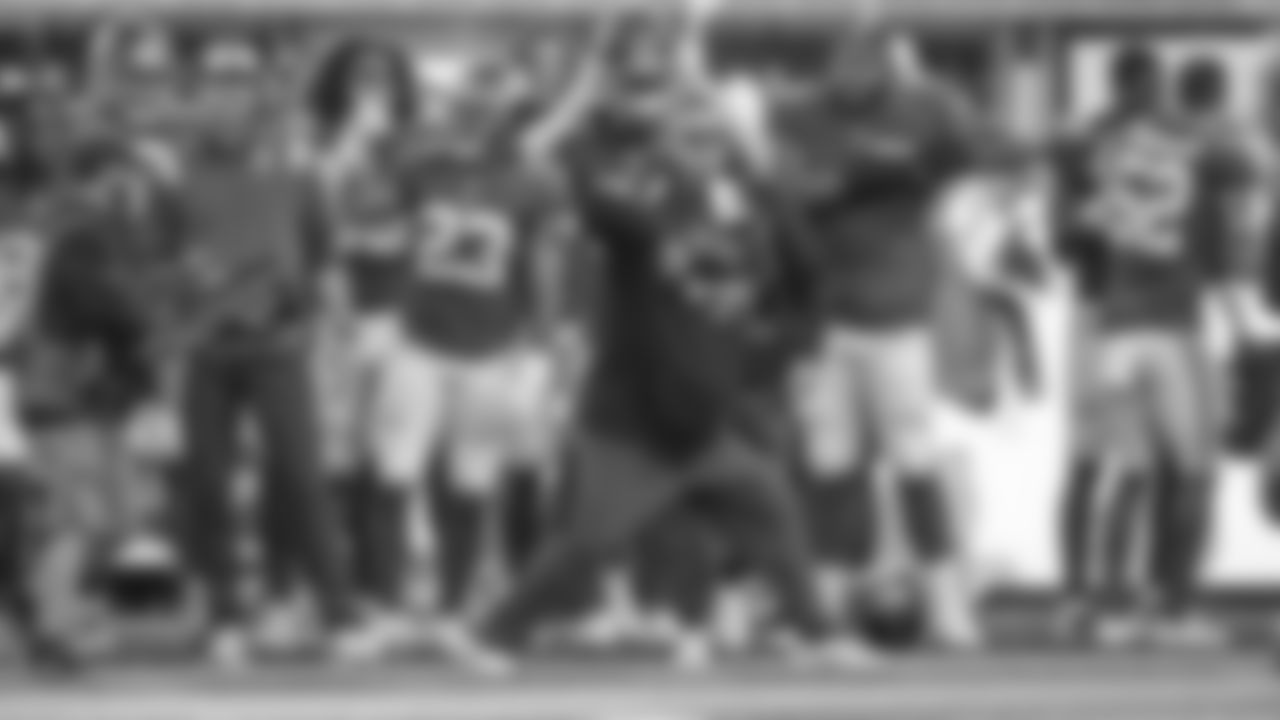

New York Giants linebacker Jihad Ward (55) and safety Julian Love (20) dump Gatorade on New York Giants head coach Brian Daboll during a NFL football game against the against the Indianapolis Colts, Sunday January 1, 2023 in East Rutherford, NJ (Evan Pinkus\New York Giants )

Brian Daboll Head Coach

Brian Daboll Head Coach, Daniel Jones (8)

Brian Daboll Head Coach

New York Giants head coach Brian Daboll in the locker room following a week 1 football game against the Tennessee Titans on Sunday September 11, 2022 in Nashville, Tennesse (Evan Pinkus/NY Giants)

Head Coach Brian Daboll

New York Giants head coach Brian Daboll following week 1 football game against the Tennessee Titans on Sunday September 11, 2022 in Nashville, Tennesse (Evan Pinkus/NY Giants)

New York Giants head coach Brian Daboll talks with quarterback Daniel Jones (8)during a football game against the Chicago Bears on Sunday October 2, 2022 in East Rutherford, New Jersey (Evan Pinkus/NY Giants)

Brian Daboll Head Coach
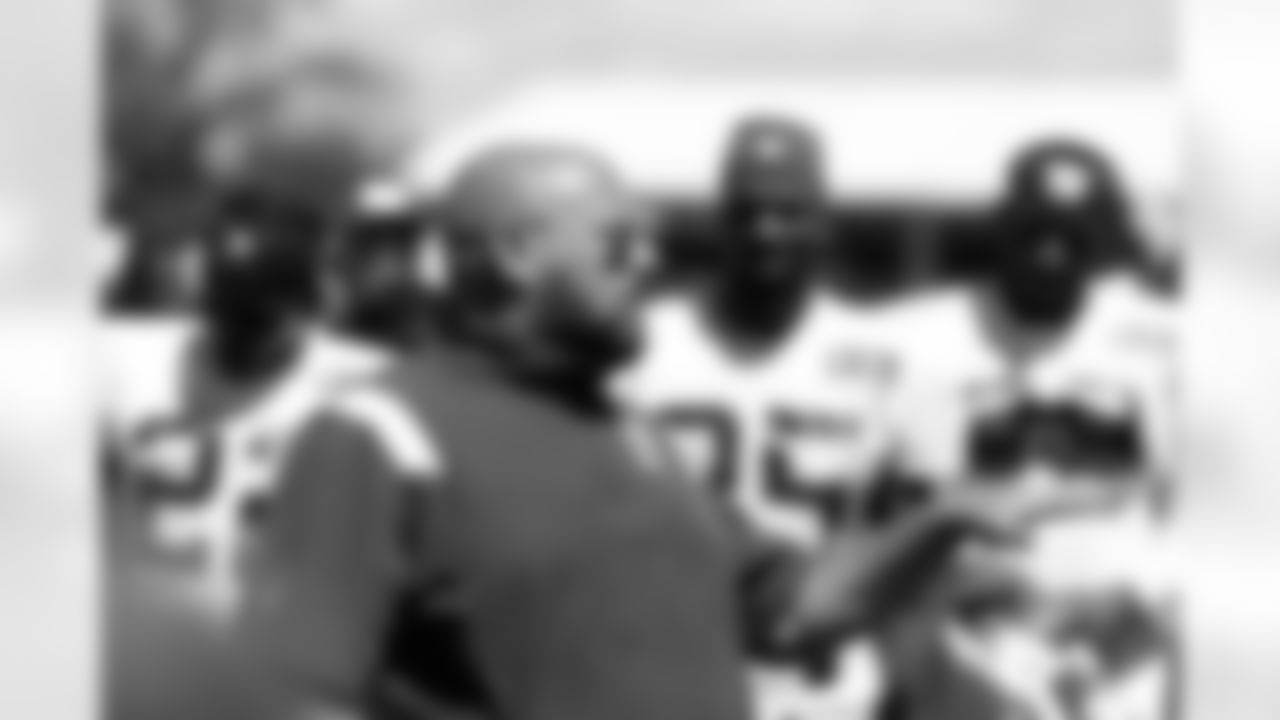
Brian Daboll Head Coach

New York Giants head coach Brian Daboll during training camp Fan Fest practice at MetLife Stadium on Friday August 5, 2022 in East Rutherford, New Jersey

Brian Daboll

Head Coach Brian Daboll

New York Giants head coach Brian Daboll talks with quarterback Daniel Jones (8) during a pre-season football game against the Cincinnati Bengals on Sunday August 21, 2022 in East Rutherford, New Jersey (Evan Pinkus/NY Giants)
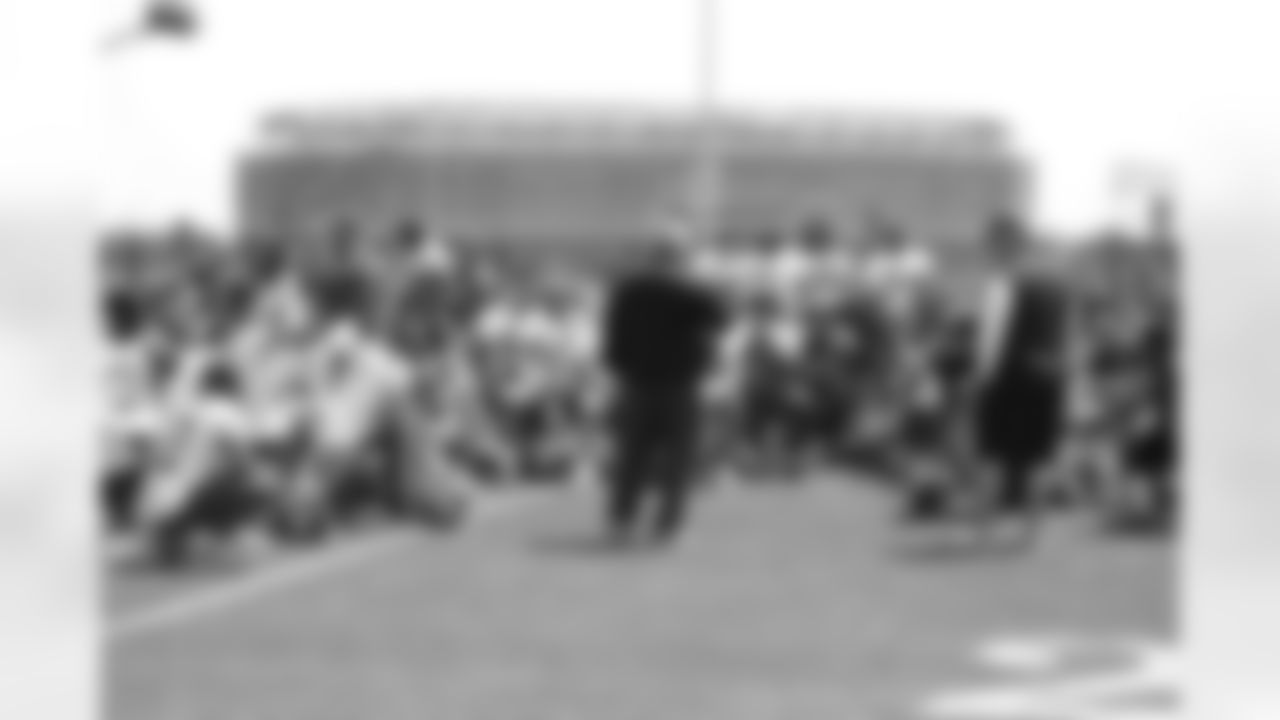
New York Giants head coach Brian Daboll talks to his team following an organized team activity practice at Quest Diagnostics Training Center on Thursday May 26, 2022 in East Rutherford, New Jersey

Brian Daboll Head Coach

Head Coach Brian Daboll, Eli Manning,
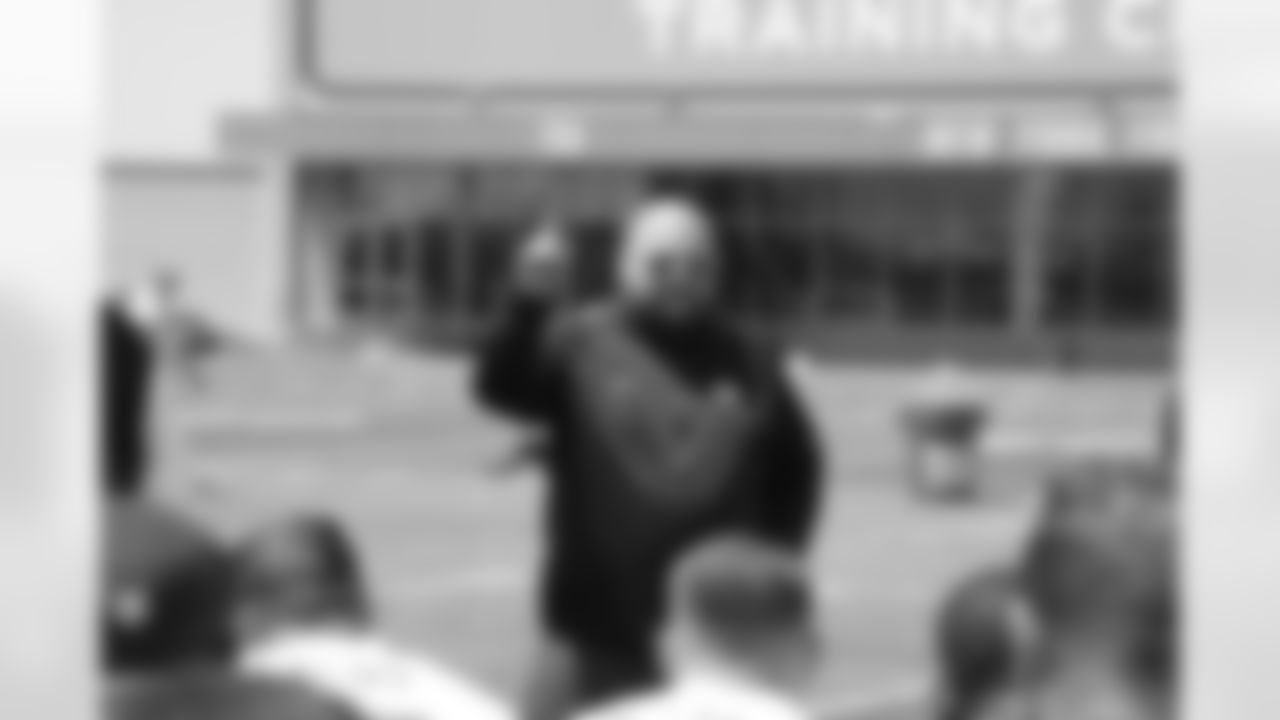
New York Giants head coach Brian Daboll talks to his team following an organized team activity practice at Quest Diagnostics Training Center on Thursday May 26, 2022 in East Rutherford, New Jersey
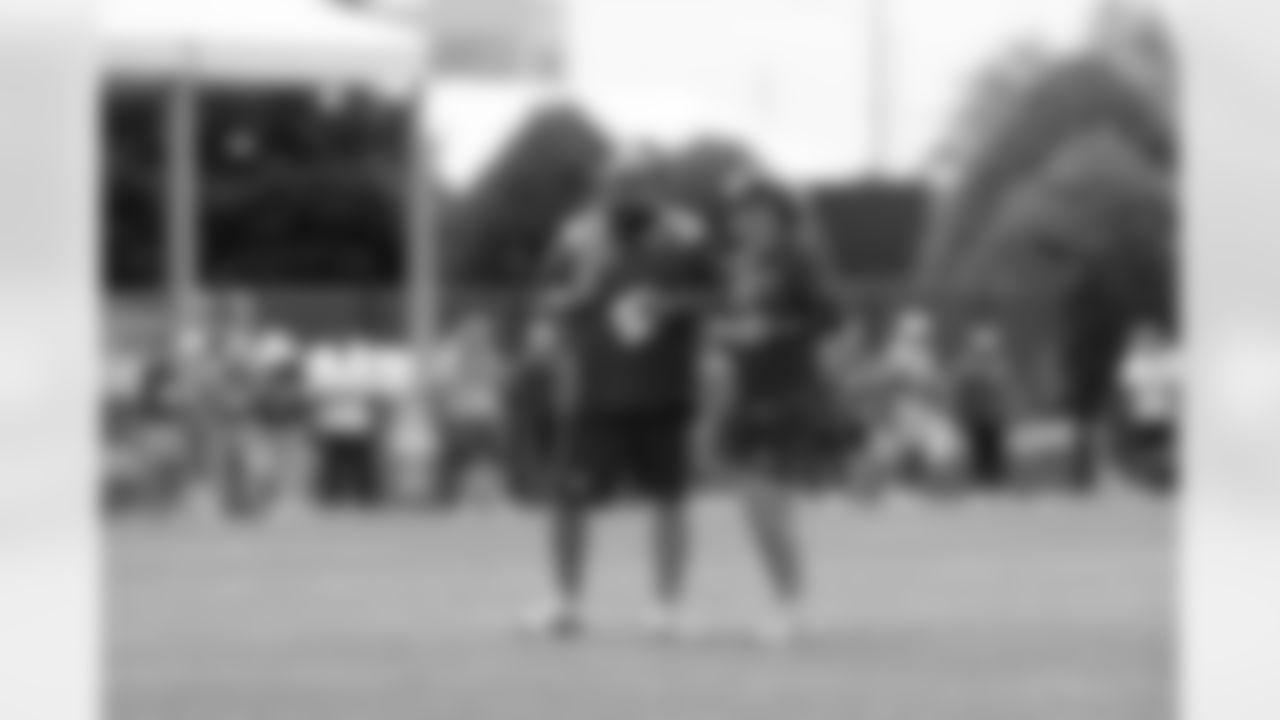
Brian Daboll Head Coach, Laura Young Director of Coaching Operations

Joe Schoen Senior Vice President and General Manager, Michael Strahan, Brian Daboll Head Coach


Head Coach Brian Daboll & General Manager Joe Schoen

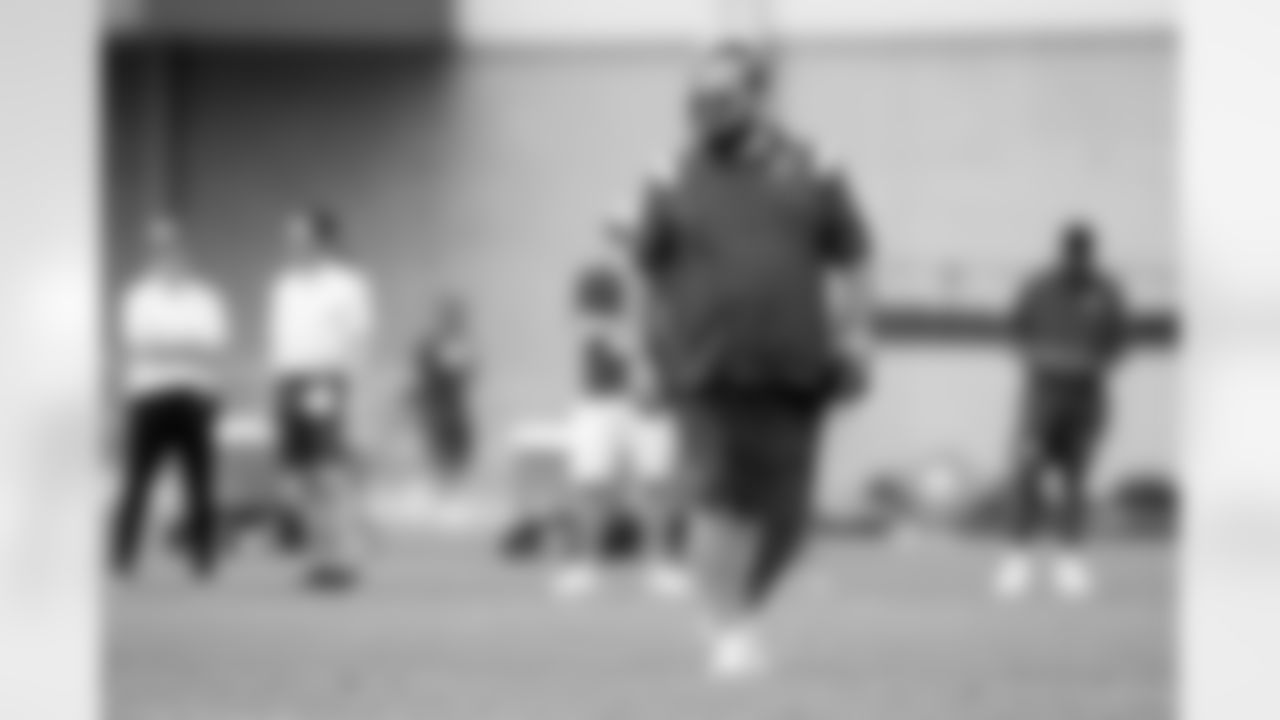
Brian Daboll Head Coach

Head Coach Brian Daboll

Brian Daboll Head Coach, WR David Sills V (84)

Head Coach Brian Daboll
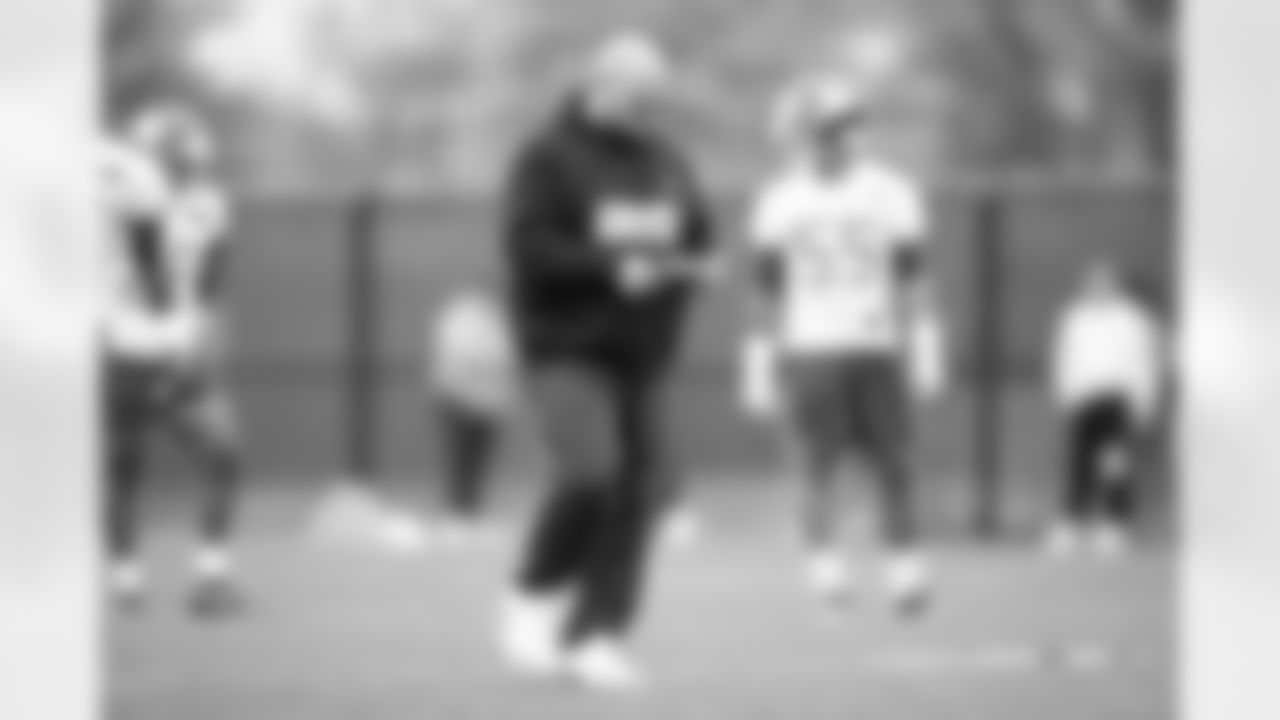
Head Coach Brian Daboll

Head Coach Brian Daboll addresses the media at the 2022 NFL Combine in Indianapolis, Indiana

General Manager Joe Schoen & Head Coach Brian Daboll

Head Coach Brian Daboll
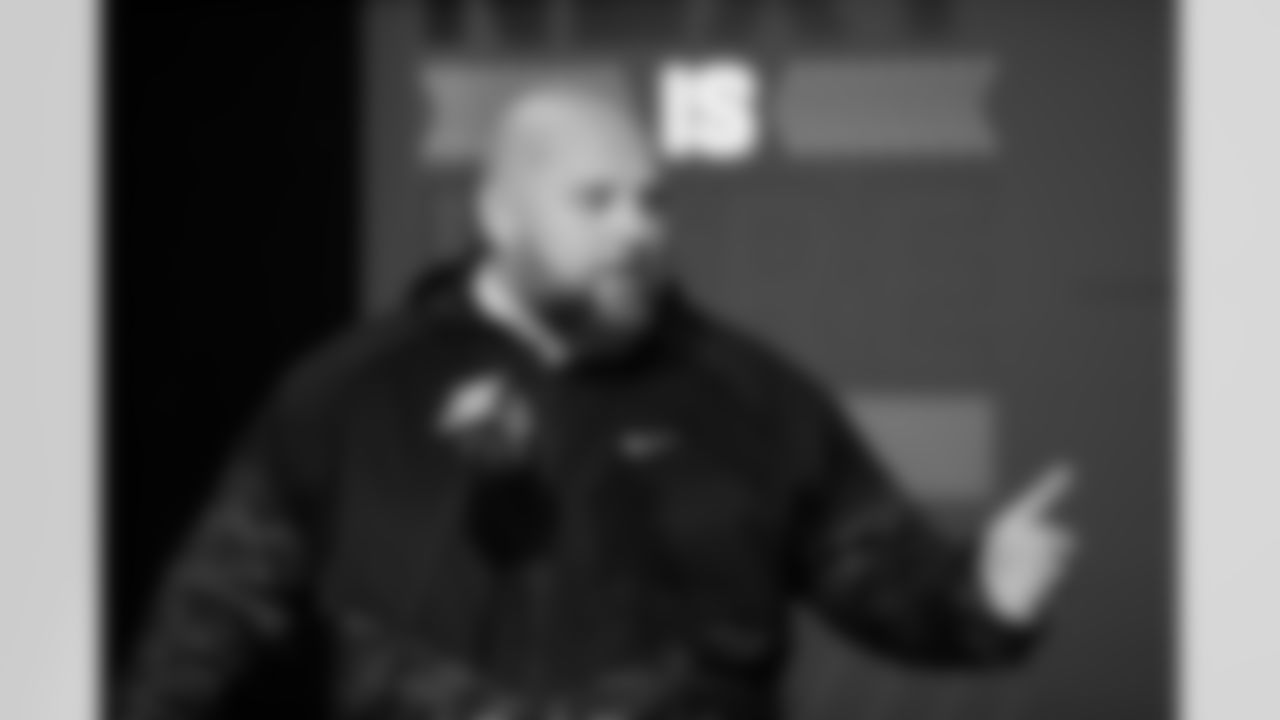
Head Coach Brian Daboll addresses the media at the 2022 NFL Combine in Indianapolis, Indiana

Head Coach Brian Daboll

Head Coach Brian Daboll
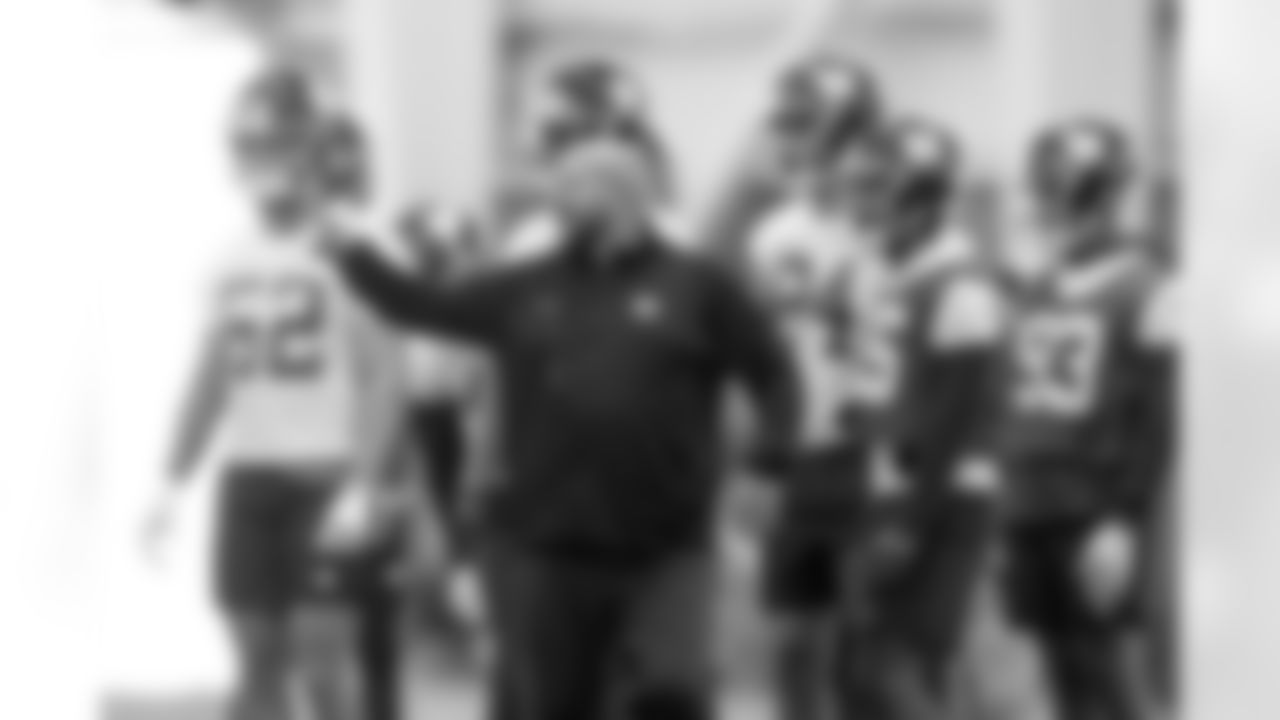
Head Coach Brian Daboll

Head Coach Brian Daboll addresses the media at the 2022 NFL Combine in Indianapolis, Indiana

Head Coach Brian Daboll addresses the media at the 2022 NFL Combine in Indianapolis, Indiana

Joe Schoen Senior Vice President and General Manager, Sam Prince, Brian Daboll Head Coach


Brian Daboll Head Coach

Head Coach Brian Daboll
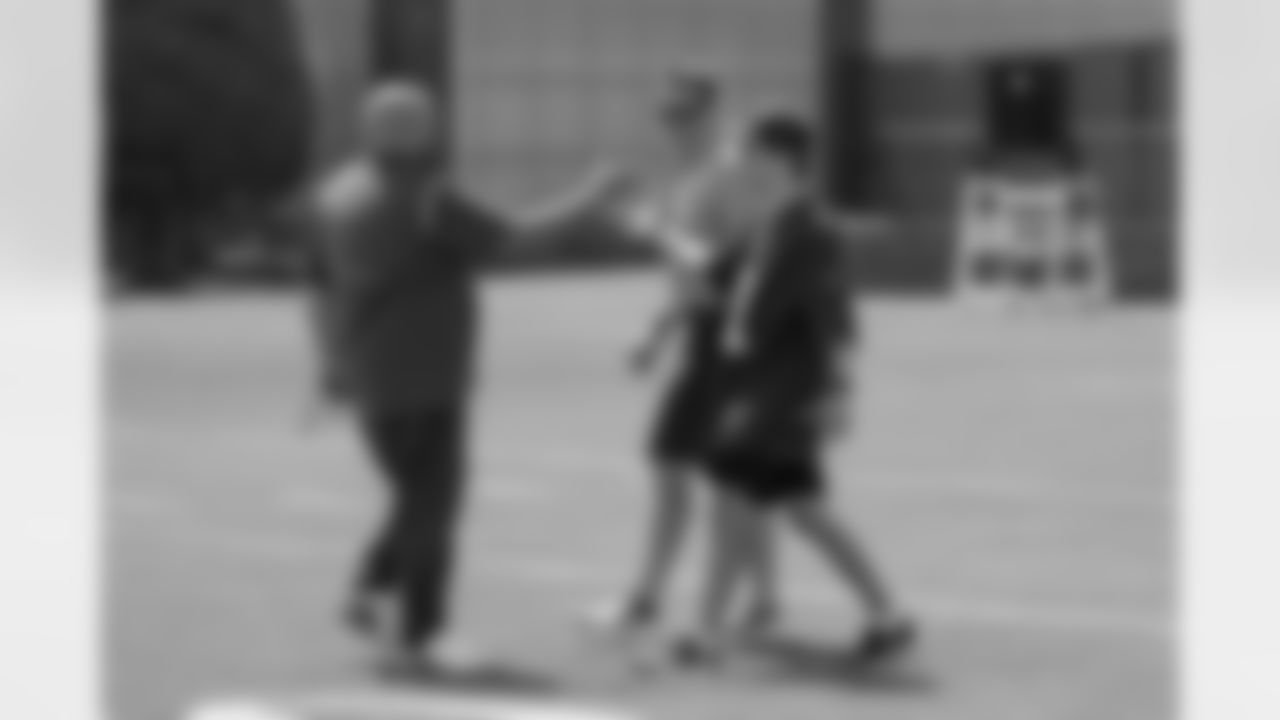
Brian Daboll Head Coach, Joe Schoen Senior Vice President and General Manager, Sam Prince

Tyrod Taylor (2), Brian Daboll

Head Coach Brian Daboll

Tyrod Taylor (2), Brian Daboll

Brian Daboll Head Coach

Brian Daboll Head Coach, Amani Toomer

Brian Daboll Head Coach

Brian Daboll Head Coach

Brian Daboll Head Coach, Amani Toomer

Brian Daboll Head Coach

Head Coach Brian Daboll

Head Coach Brian Daboll

General Manager Joe Schoen, OT Evan Neal, Edge Kayvon Thibodeaux, Head Coach Brian Daboll

Joe Schoen Senior Vice President and General Manager, Brian Daboll Head Coach

New York Giants head coach Brian Daboll during a pre-season football game against the Cincinnati Bengals on Sunday August 21, 2022 in East Rutherford, New Jersey (Evan Pinkus/NY Giants)

Brian Daboll Head Coach

Brian Daboll before minicamp practice at Quest Diagnostics Training Center on Tuesday April 20, 2022 in East Rutherford, New Jersey

New York Giants head coach Brian Daboll talks with Wan'Dale Robinson during training camp practice at Quest Diagnostics Training Center on Wednesday July 27, 2022 in East Rutherford, New Jersey

New York Giants head coach Brian Daboll during organized team activity at Quest Diagnostics Training Center on Tuesday May 24, 2022 in East Rutherford, New Jersey
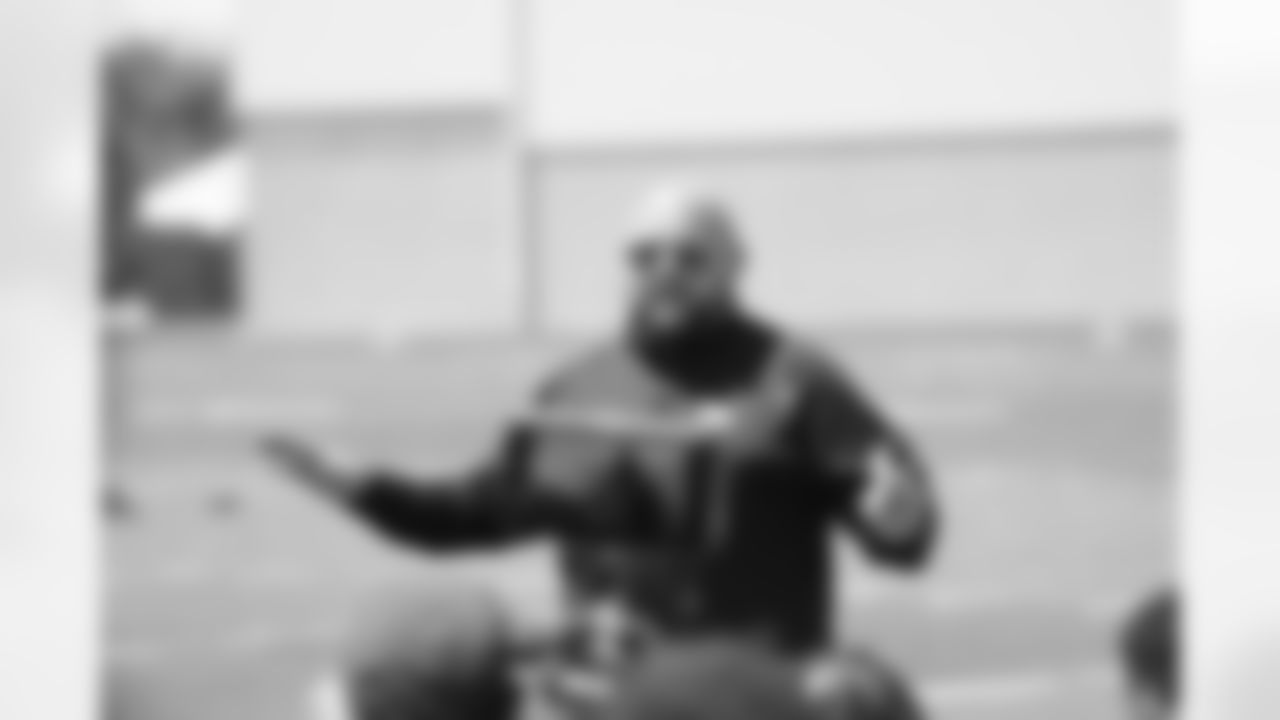
New York Giants head coach Brian Daboll talks to his team following an organized team activity practice at Quest Diagnostics Training Center on Thursday May 26, 2022 in East Rutherford, New Jersey

New York Giants head coach Brian Daboll during training camp practice at Quest Diagnostics Training Center on Wednesday July 27, 2022 in East Rutherford, New Jersey

New York Giants head coach Brian Daboll during a pre-season football game against the Cincinnati Bengals on Sunday August 21, 2022 in East Rutherford, New Jersey (Evan Pinkus/NY Giants)
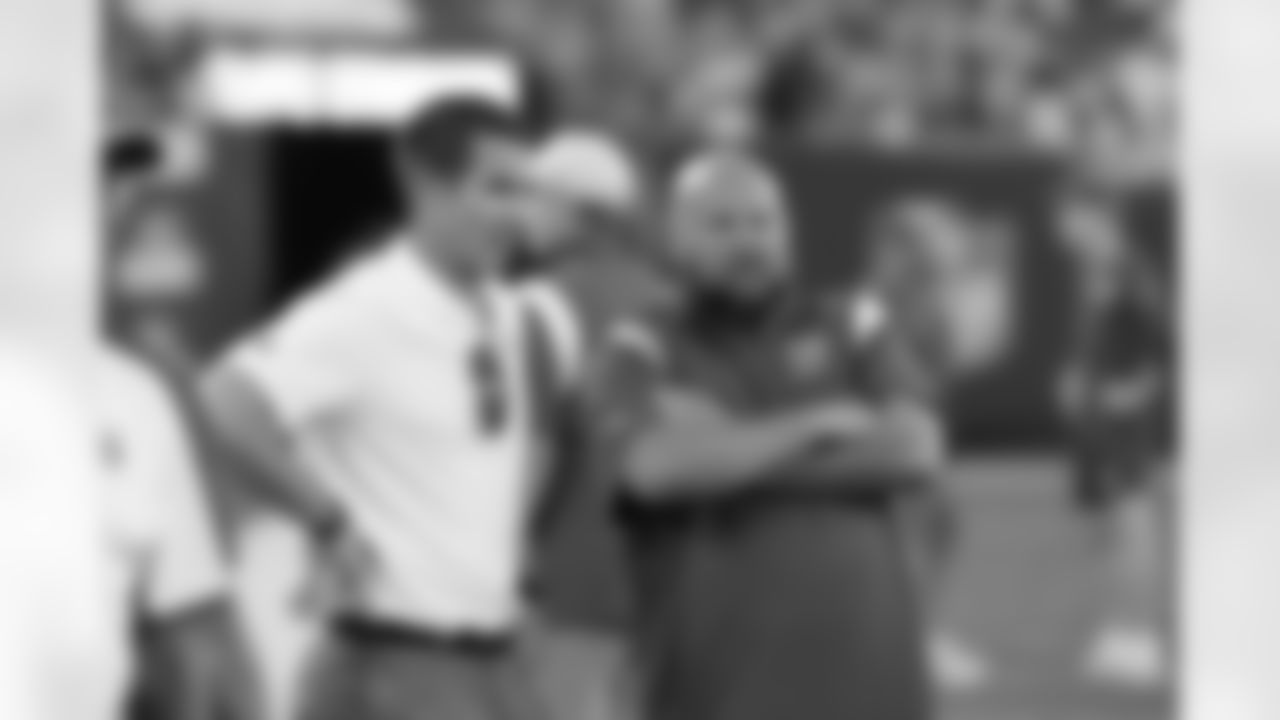
New York Giants head coach Brian Daboll talks with general manager Joe Schoen during training camp Fan Fest practice at MetLife Stadium on Friday August 5, 2022 in East Rutherford, New Jersey
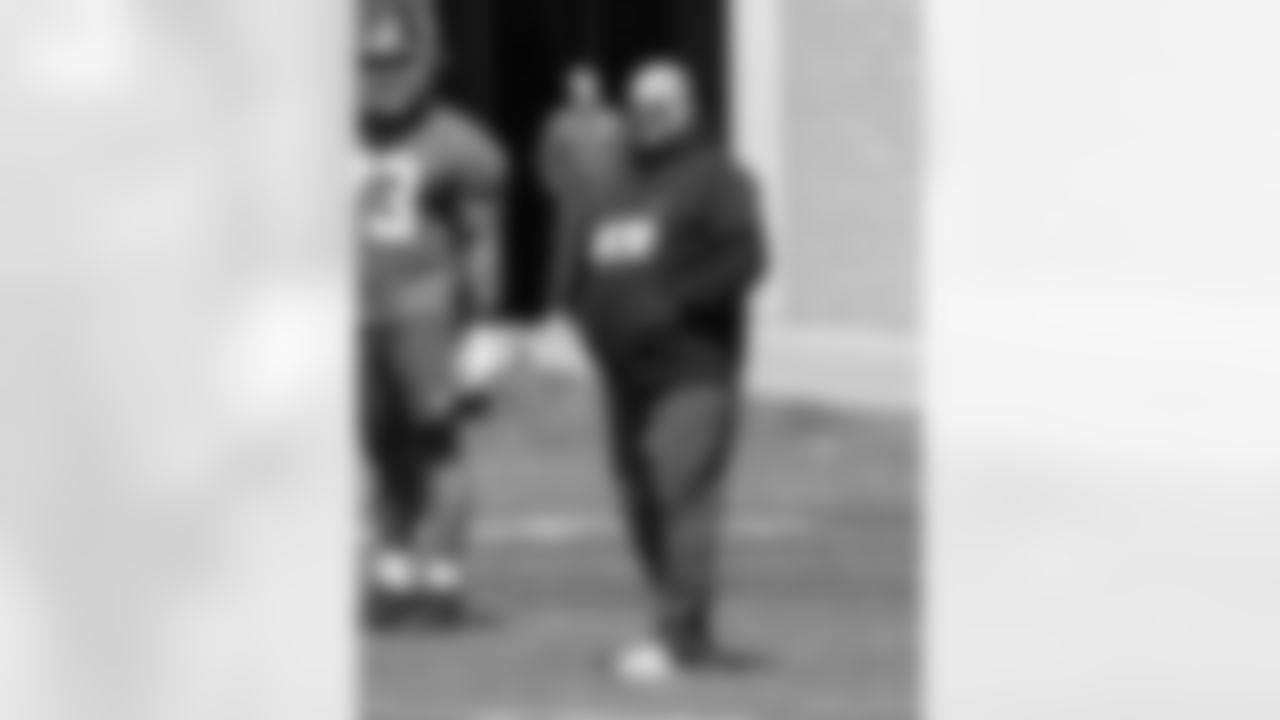
Brian Daboll during minicamp practice at Quest Diagnostics Training Center on Tuesday April 20, 2022 in East Rutherford, New Jersey
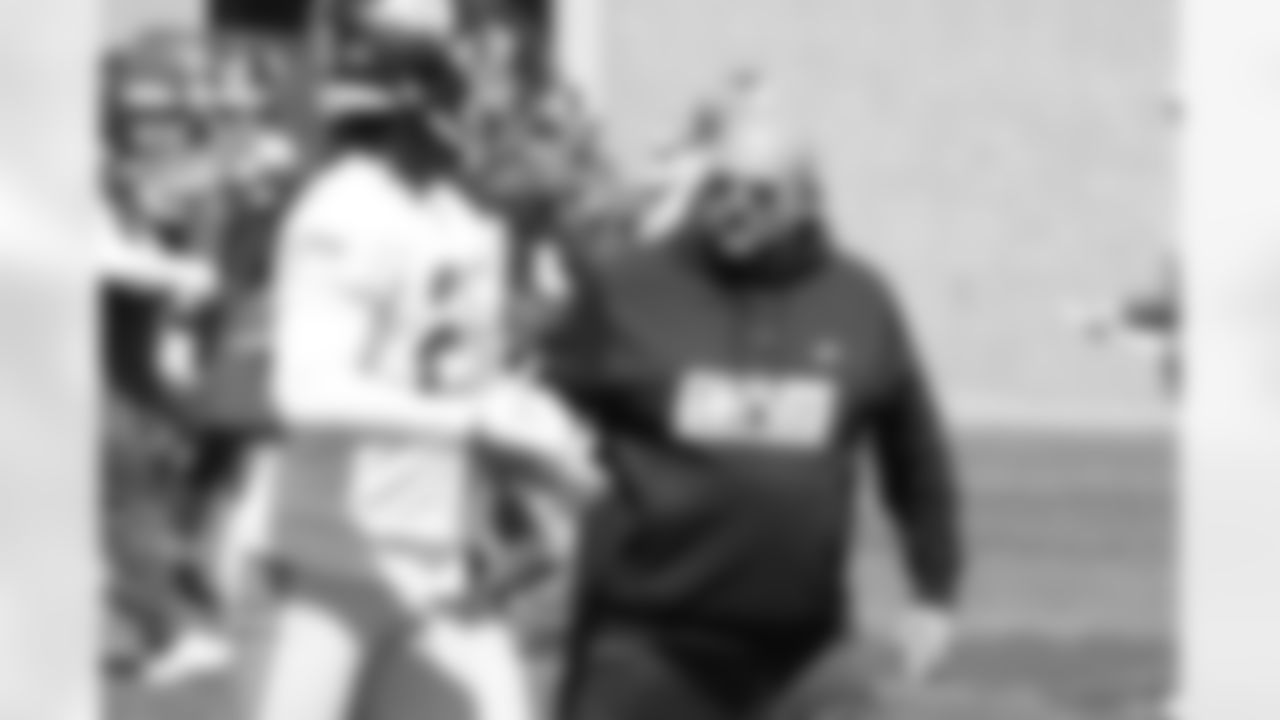
Brian Daboll before minicamp practice at Quest Diagnostics Training Center on Tuesday April 20, 2022 in East Rutherford, New Jersey
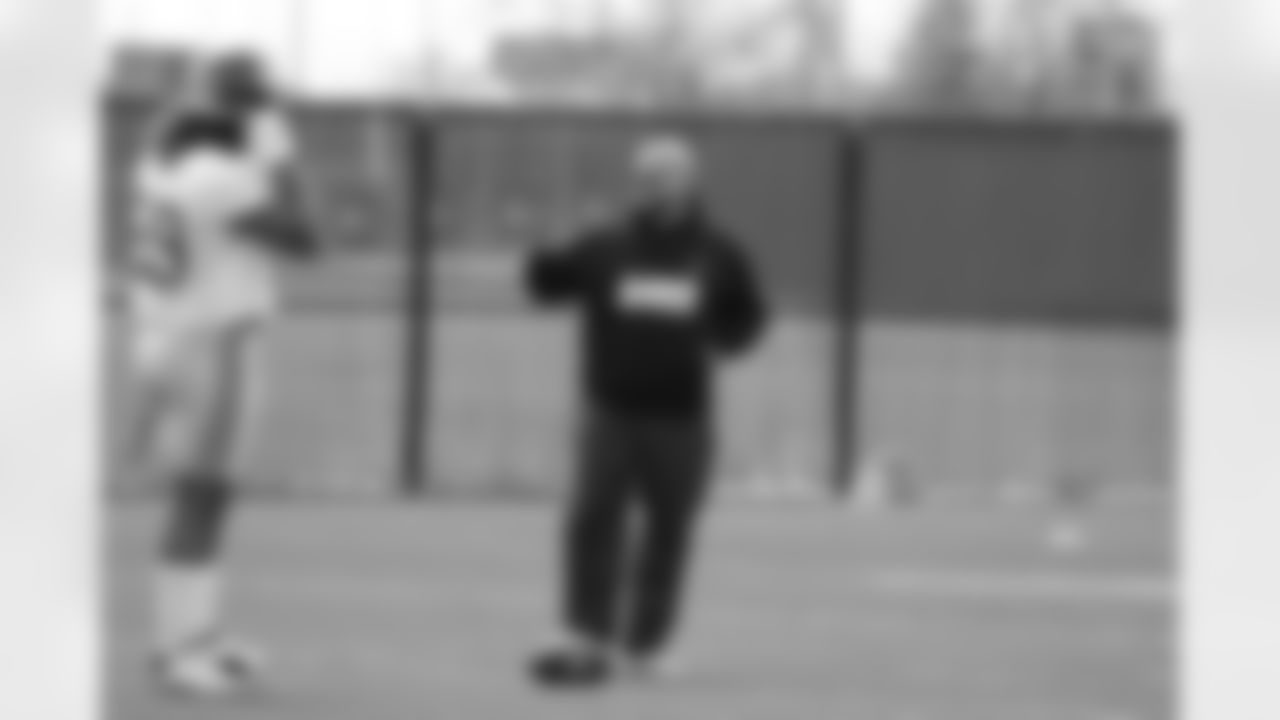
Head Coach Brian Daboll during minicamp practice at Quest Diagnostics Training Center on Tuesday April 21, 2022 in East Rutherford, New Jersey
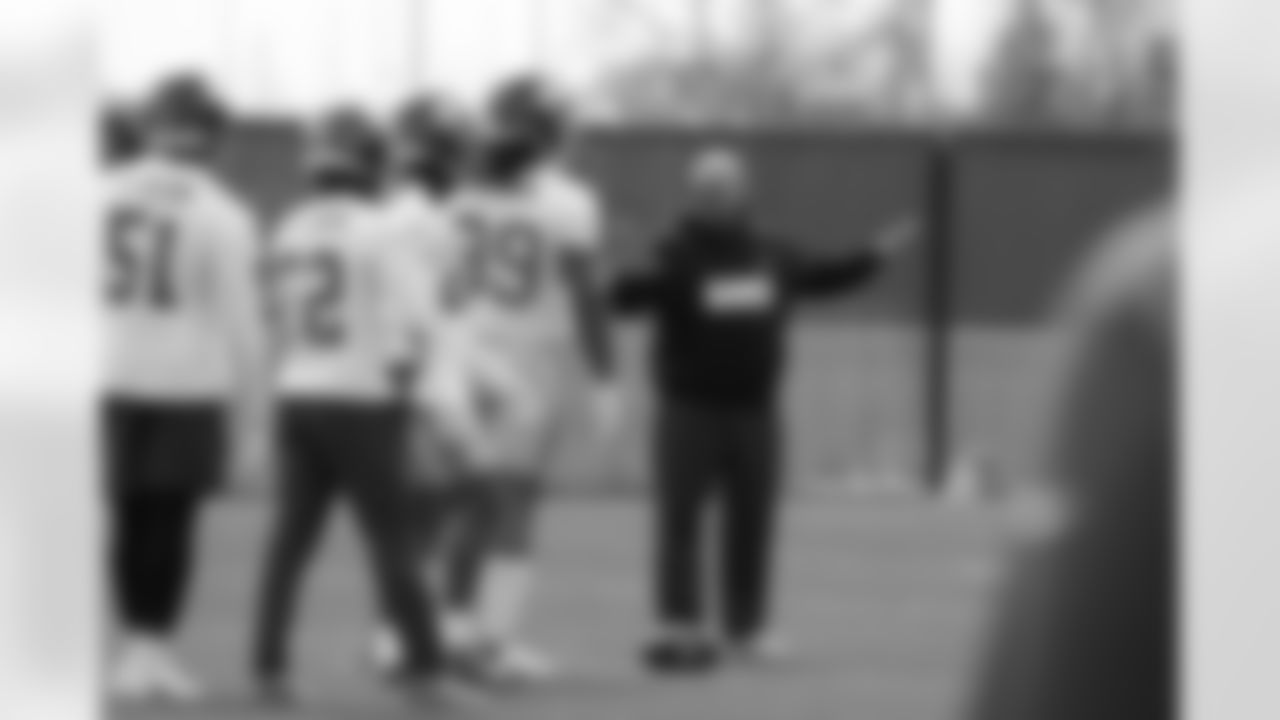
Head Coach Brian Daboll during minicamp practice at Quest Diagnostics Training Center on Tuesday April 21, 2022 in East Rutherford, New Jersey
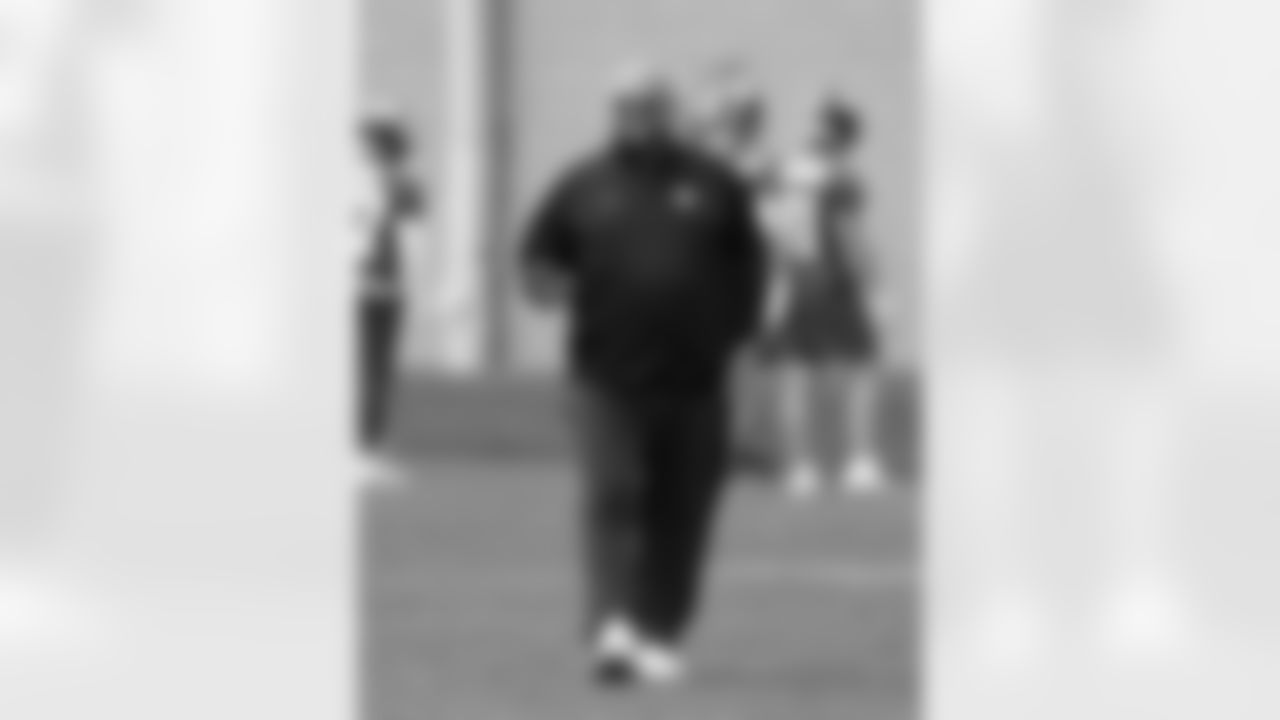
New York Giants head coach Brian Daboll during organized team activity at Quest Diagnostics Training Center on Tuesday May 24, 2022 in East Rutherford, New Jersey
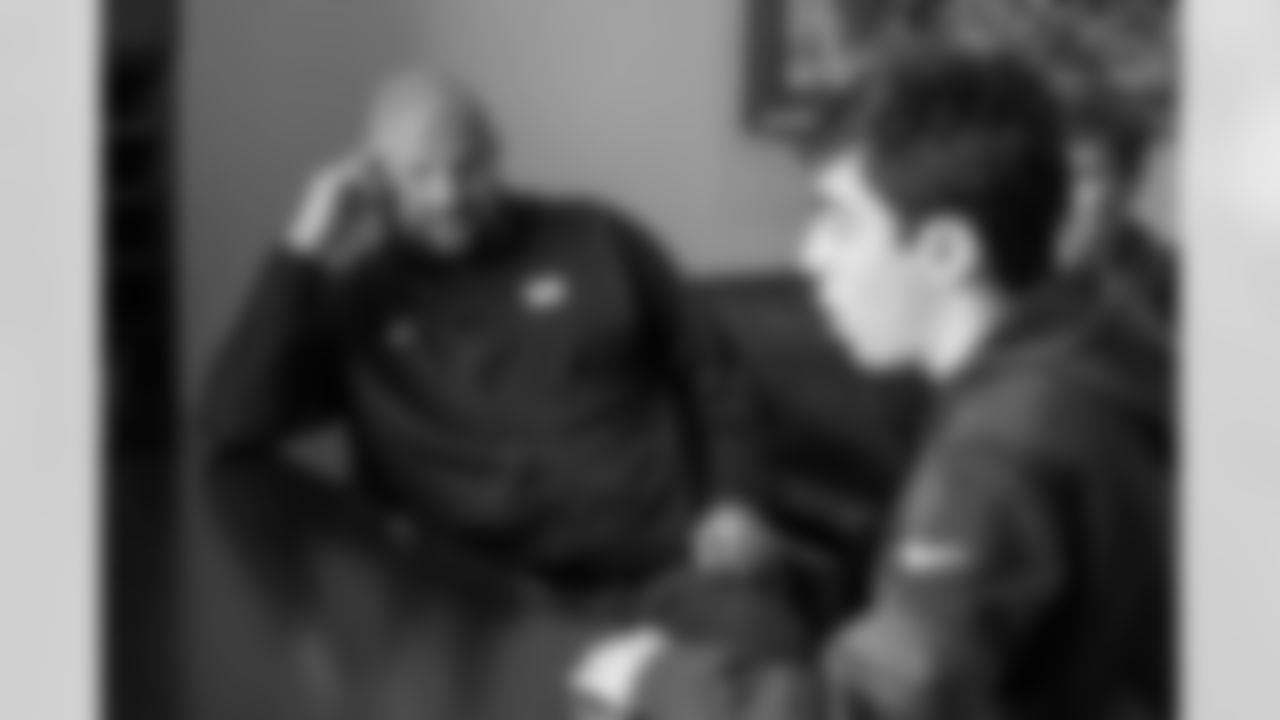


New York Giants head coach Brian Daboll talks to his team following an organized team activity practice at Quest Diagnostics Training Center on Thursday May 26, 2022 in East Rutherford, New Jersey

New York Giants head coach Brian Daboll during organized team activity at Quest Diagnostics Training Center on Tuesday May 24, 2022 in East Rutherford, New Jersey

Brian Daboll Head Coach, Amani Toomer

New York Giants head coach Brian Daboll talks with quarterback Daniel Jones (8) during a pre-season football game against the Cincinnati Bengals on Sunday August 21, 2022 in East Rutherford, New Jersey (Evan Pinkus/NY Giants)

New York Giants head coach Brian Daboll talks to his team following an organized team activity practice at Quest Diagnostics Training Center on Thursday May 26, 2022 in East Rutherford, New Jersey

New York Giants head coach Brian Daboll talks with quarterback Daniel Jones (8) during a pre-season football game against the Cincinnati Bengals on Sunday August 21, 2022 in East Rutherford, New Jersey (Evan Pinkus/NY Giants)

New York Giants head coach Brian Daboll during a pre-season football game against the Cincinnati Bengals on Sunday August 21, 2022 in East Rutherford, New Jersey (Evan Pinkus/NY Giants)

New York Giants head coach Brian Daboll talks to his team following an organized team activity practice at Quest Diagnostics Training Center on Thursday May 26, 2022 in East Rutherford, New Jersey

New York Giants head coach Brian Daboll talks to his team during Minicamp at Quest Diagnostics Training Center on Wednesday June 8, 2022 in East Rutherford, New Jersey

New York Giants head coach Brian Daboll talks with quarterback Daniel Jones (8) during training camp practice at Quest Diagnostics Training Center on Tuesday August 16, 2022 in East Rutherford, New Jersey

New York Giants head coach Brian Daboll introduces Osi Umenyiora during training camp practice at Quest Diagnostics Training Center on Thursday August 18, 2022 in East Rutherford, New Jersey

New York Giants head coach Brian Daboll during training camp Fan Fest practice at MetLife Stadium on Friday August 5, 2022 in East Rutherford, New Jersey

New York Giants head coach Brian Daboll talks with Osi Umenyiora during training camp practice at Quest Diagnostics Training Center on Thursday August 18, 2022 in East Rutherford, New Jersey
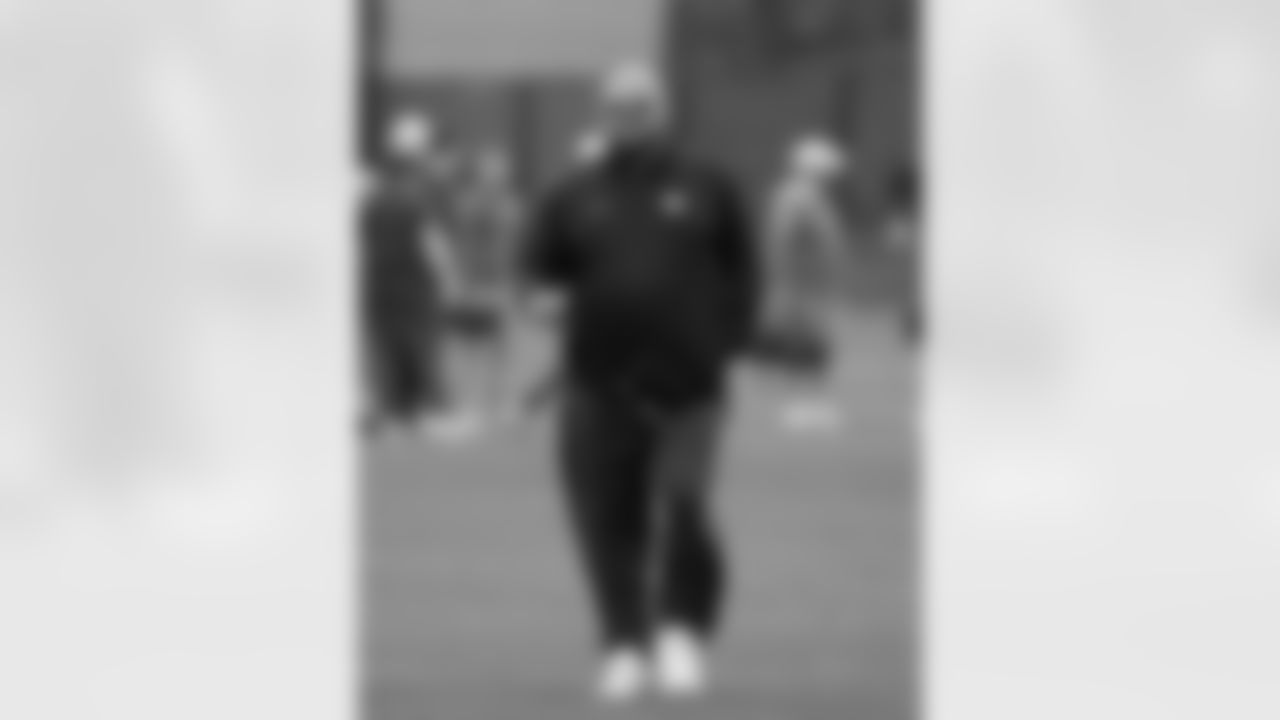
New York Giants head coach Brian Daboll during organized team activity at Quest Diagnostics Training Center on Tuesday May 24, 2022 in East Rutherford, New Jersey

New York Giants head coach Brian Daboll waves to fans before training camp Fan Fest practice at MetLife Stadium on Friday August 5, 2022 in East Rutherford, New Jersey

New York Giants head coach Brian Daboll during Minicamp at Quest Diagnostics Training Center on Wednesday June 8, 2022 in East Rutherford, New Jersey

Brian Daboll and Sam Prince shake hands during Minicamp at Quest Diagnostics Training Center on Wednesday June 8, 2022 in East Rutherford, New Jersey

New York Giants head coach Brian Daboll during training camp practice at Quest Diagnostics Training Center on Wednesday August 3, 2022 in East Rutherford, New Jersey

New York Giants head coach Brian Daboll during training camp practice at Quest Diagnostics Training Center on Wednesday August 3, 2022 in East Rutherford, New Jersey
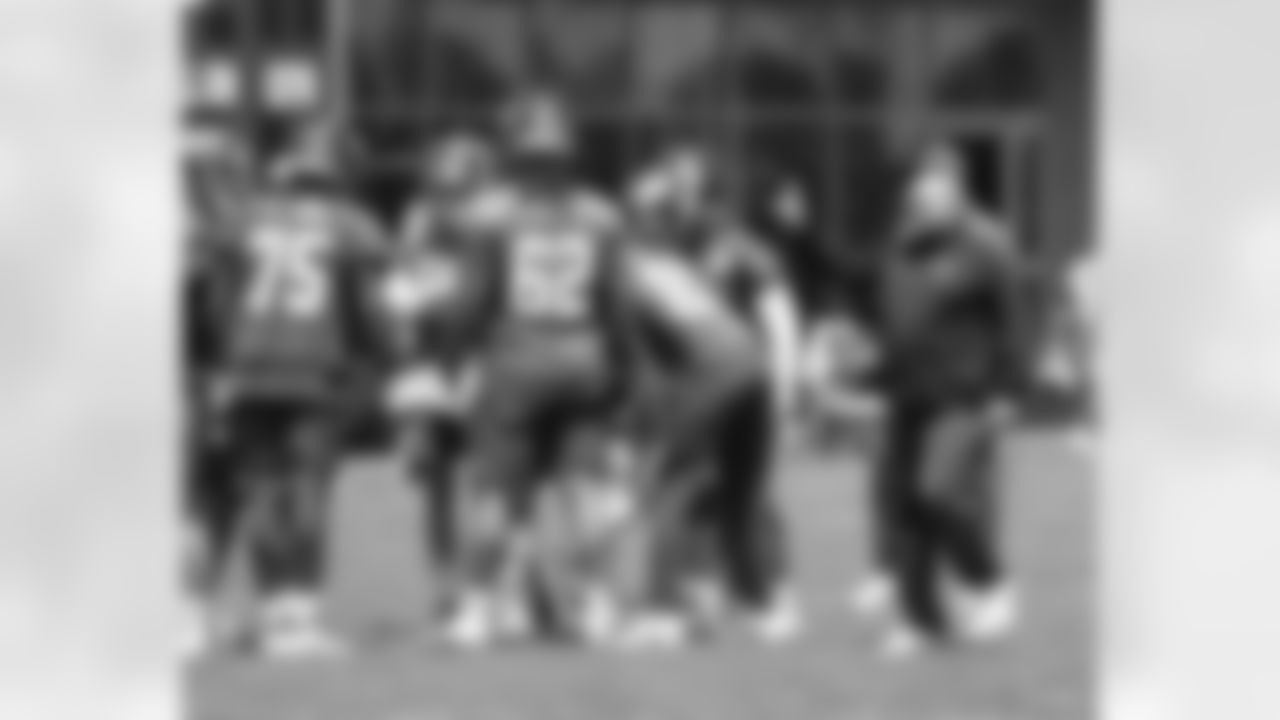
New York Giants head coach Brian Daboll during organized team activity at Quest Diagnostics Training Center on Monday May 23, 2022 in East Rutherford, New Jersey

Brian Daboll talks to Dexter Lawrence during Minicamp at Quest Diagnostics Training Center on Tuesday June 7, 2022 in East Rutherford, New Jersey
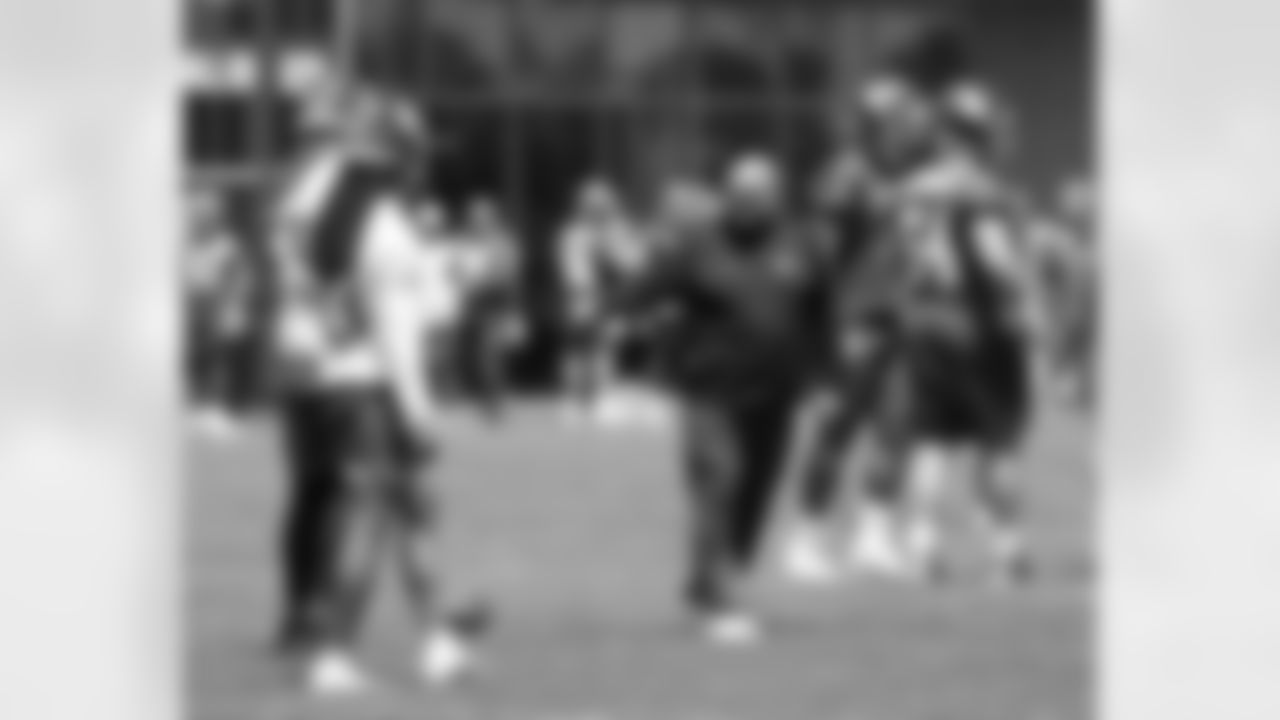
New York Giants head coach Brian Daboll during organized team activity at Quest Diagnostics Training Center on Monday May 23, 2022 in East Rutherford, New Jersey
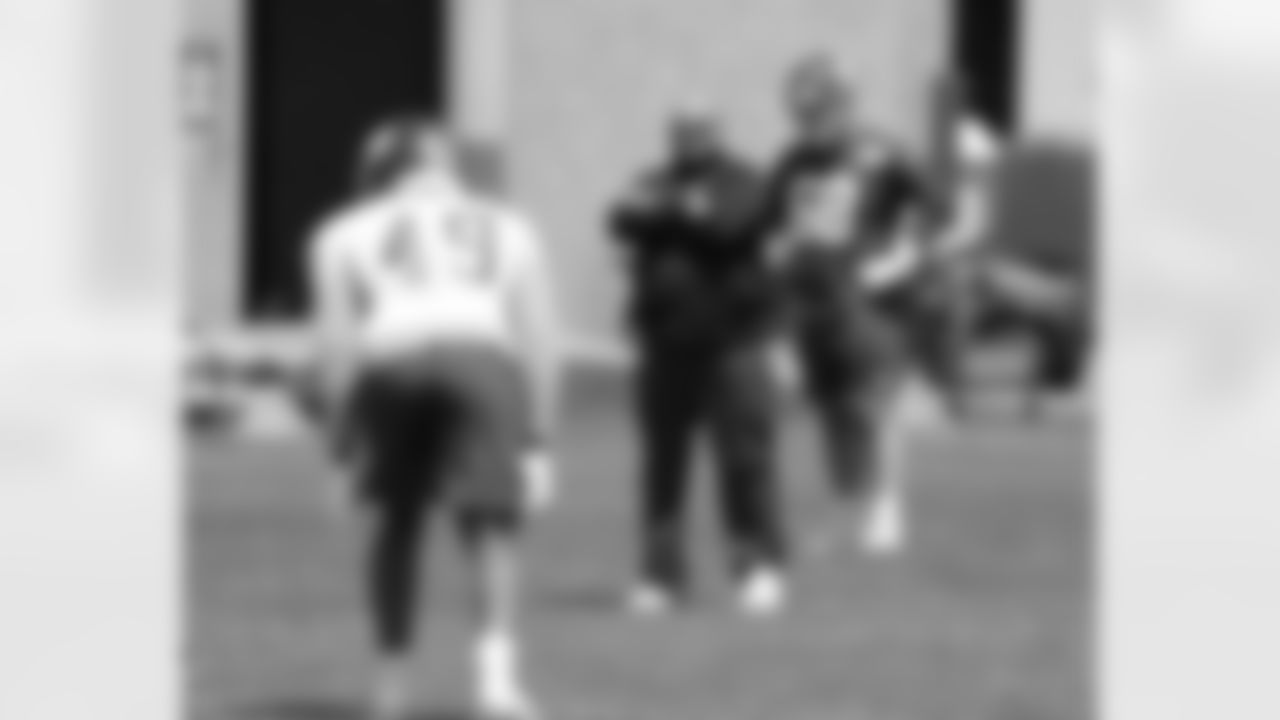
New York Giants head coach Brian Daboll during organized team activity at Quest Diagnostics Training Center on Monday May 23, 2022 in East Rutherford, New Jersey
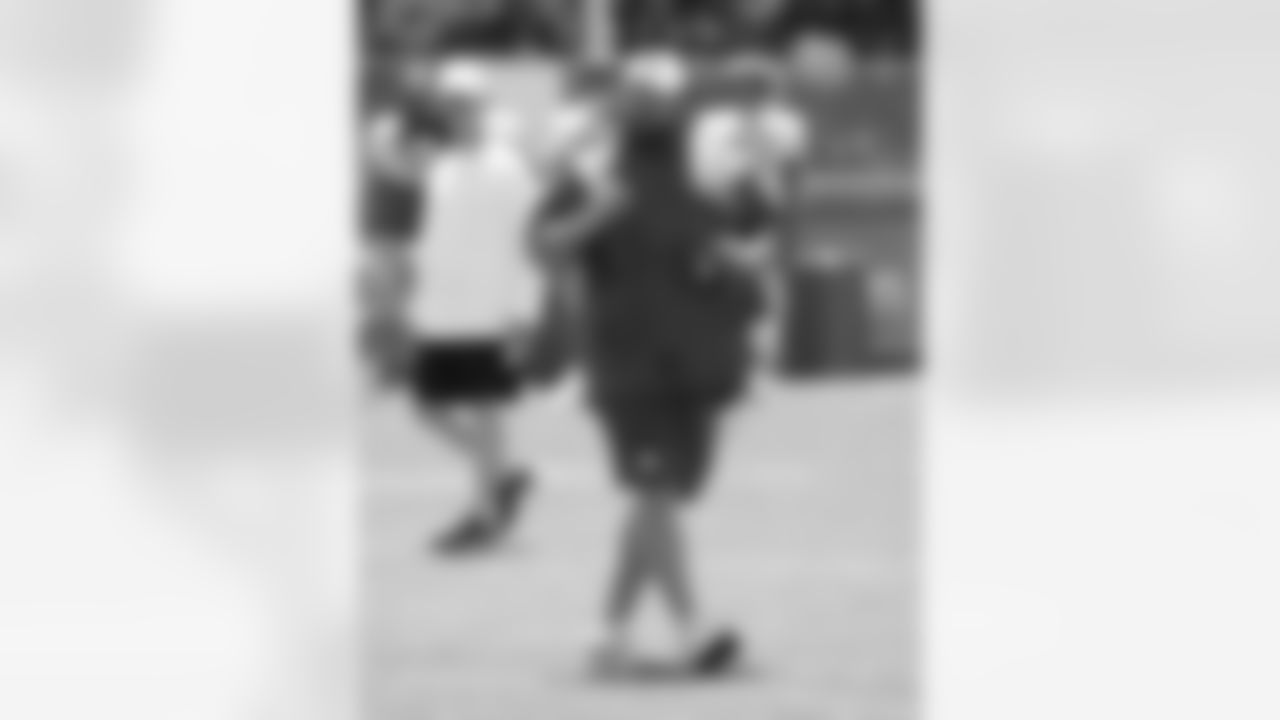
New York Giants head coach Brian Daboll during training camp practice at Quest Diagnostics Training Center on Wednesday August 3, 2022 in East Rutherford, New Jersey
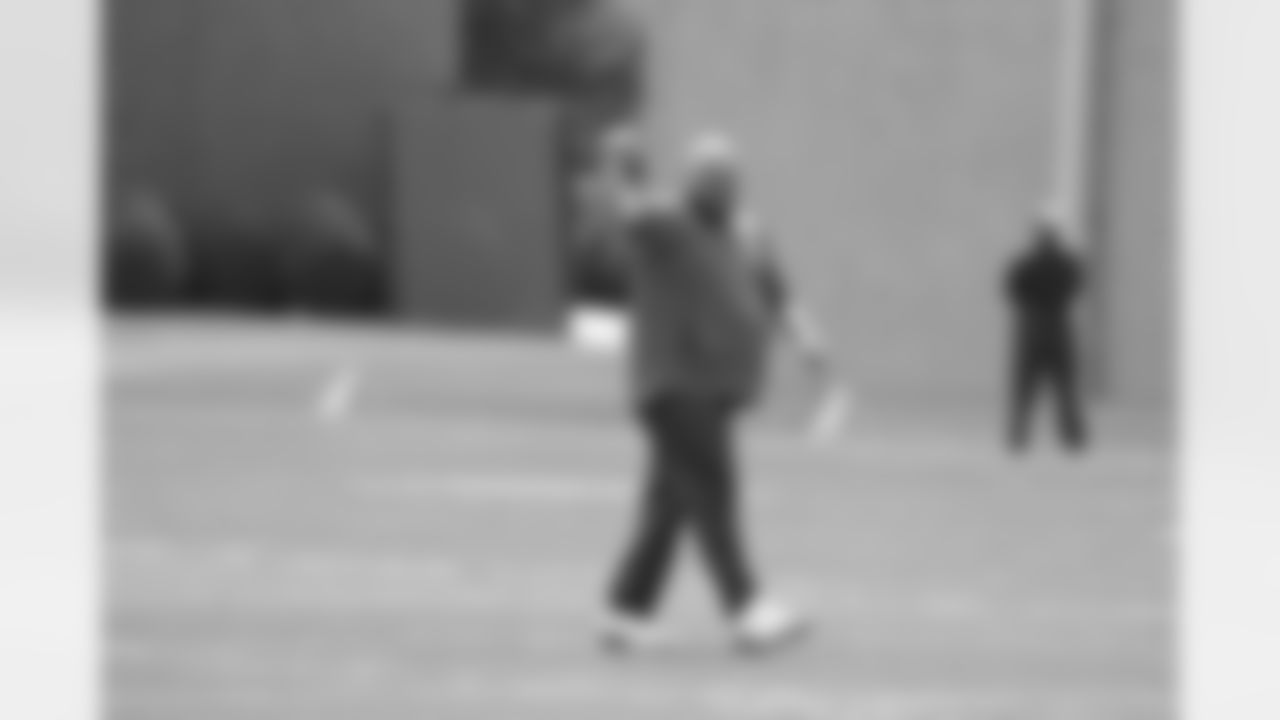
New York Giants head coach Brian Daboll during Minicamp at Quest Diagnostics Training Center on Tuesday June 7, 2022 in East Rutherford, New Jersey

New York Giants head coach Brian Daboll talks with former NFL coach Bill Cowher during training camp practice at Quest Diagnostics Training Center on Tuesday August 16, 2022 in East Rutherford, New Jersey

New York Giants Head Coach Brian Daboll during training camp practice at Quest Diagnostics Training Center on Wednesday August 3, 2022 in East Rutherford, New Jersey
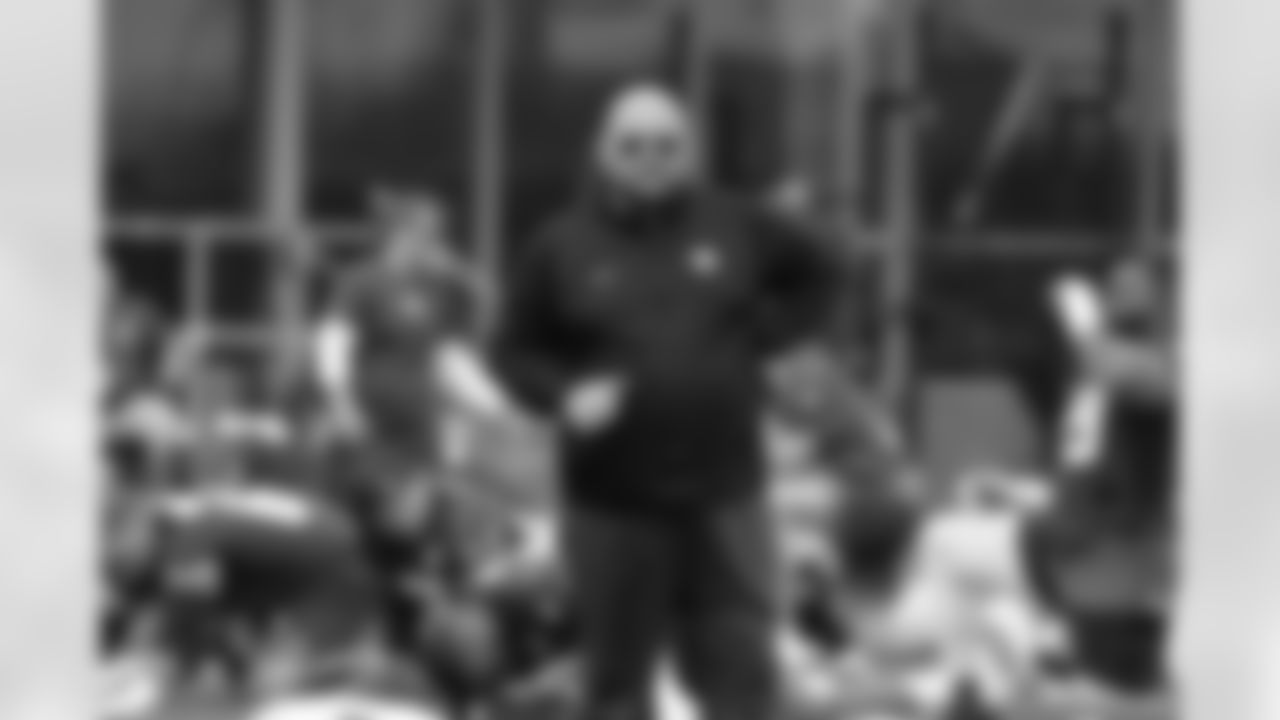
New York Giants head coach Brian Daboll during organized team activity at Quest Diagnostics Training Center on Monday May 16, 2022 in East Rutherford, New Jersey

New York Giants head coach Brian Daboll during training camp practice at Quest Diagnostics Training Center on Thursday August 18, 2022 in East Rutherford, New Jersey

New York Giants head coach Brian Daboll talks with Joe Morris following training camp practice at Quest Diagnostics Training Center on Tuesday August 16, 2022 in East Rutherford, New Jersey
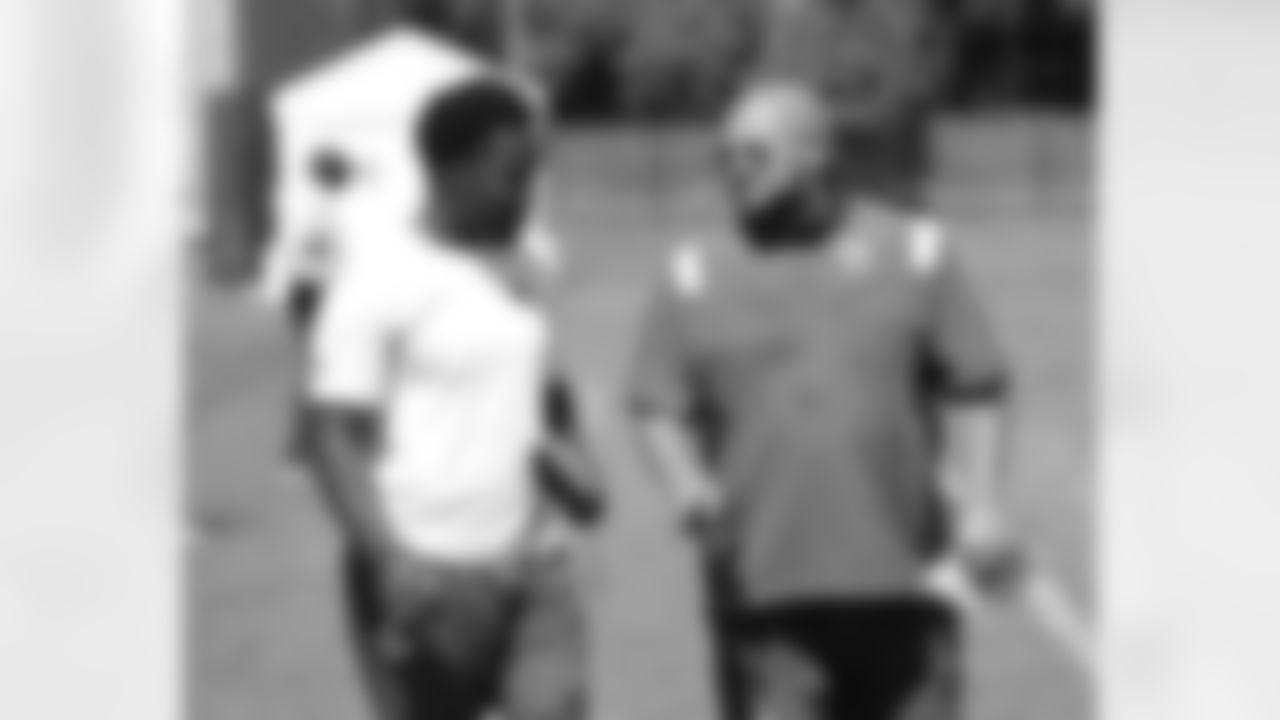
New York Giants head coach Brian Daboll talks with assistant general manager Brandon Brown during training camp practice at Quest Diagnostics Training Center on Wednesday August 3, 2022 in East Rutherford, New Jersey

New York Giants head coach Brian Daboll talks with former Giant Osi Umenyiora during training camp practice at Quest Diagnostics Training Center on Thursday August 18, 2022 in East Rutherford, New Jersey
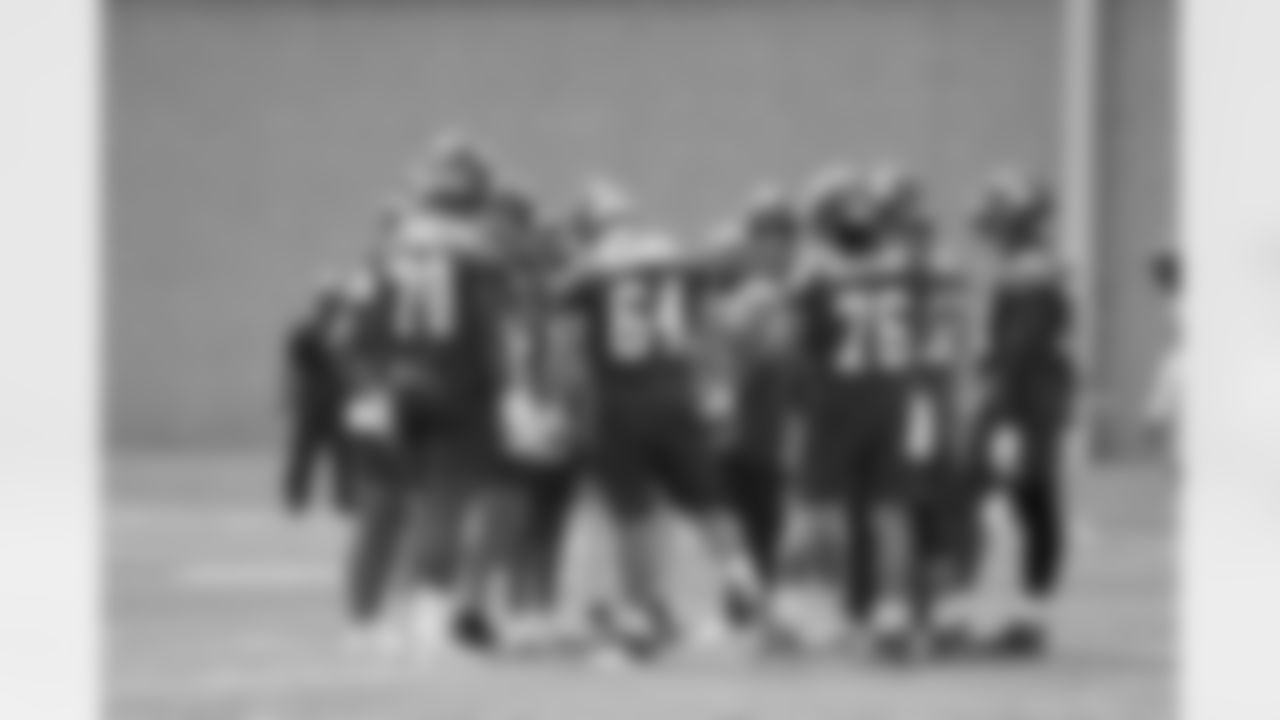
Brian Daboll stands in the offensive huddle during Minicamp at Quest Diagnostics Training Center on Tuesday June 7, 2022 in East Rutherford, New Jersey

New York Giants head coach Brian Daboll during organized team activity at Quest Diagnostics Training Center on Monday May 23, 2022 in East Rutherford, New Jersey

New York Giants head coach Brian Daboll talks to his team following a preseason NFL football game against New England Patriots on Thursday August 11, 2022 in Foxborough, MA

New York Giants head coach Brian Daboll talks to his team following a preseason NFL football game against New England Patriots on Thursday August 11, 2022 in Foxborough, MA

Brian Daboll and Joe Schoen talk during Minicamp at Quest Diagnostics Training Center on Tuesday June 7, 2022 in East Rutherford, New Jersey

Brian Daboll during Minicamp at Quest Diagnostics Training Center on Tuesday June 7, 2022 in East Rutherford, New Jersey

New York Giants head coach Brian Daboll talks to his team following a preseason NFL football game against New England Patriots on Thursday August 11, 2022 in Foxborough, MA

New York Giants head coach Brian Daboll talks to his team following a preseason NFL football game against New England Patriots on Thursday August 11, 2022 in Foxborough, MA

New York Giants head coach Brian Daboll during Minicamp at Quest Diagnostics Training Center on Tuesday June 7, 2022 in East Rutherford, New Jersey

New York Giants head coach Brian Daboll talks with Joe Schoen before a preseason NFL football game against New England Patriots on Thursday August 11, 2022 in Foxborough, MA

New York Giants head coach Brian Daboll during Minicamp at Quest Diagnostics Training Center on Tuesday June 7, 2022 in East Rutherford, New Jersey

Brian Daboll and Wink Martindale talk during Minicamp at Quest Diagnostics Training Center on Tuesday June 7, 2022 in East Rutherford, New Jersey

New York Giants head coach Brian Daboll talks with former New York Giant OJ Anderson following training camp practice at Quest Diagnostics Training Center on Tuesday August 16, 2022 in East Rutherford, New Jersey

New York Giants head coach Brian Daboll talks with quarterback Daniel Jones (8) during training camp practice at Quest Diagnostics Training Center on Tuesday August 16, 2022 in East Rutherford, New Jersey

New York Giants head coach Brian Daboll before a preseason NFL football game against New England Patriots on Thursday August 11, 2022 in Foxborough, MA

New York Giants head coach Brian Daboll talks with New York Giants defensive end Leonard Williams (99) during training camp practice at Quest Diagnostics Training Center on Tuesday August 16, 2022 in East Rutherford, New Jersey

New York Giants head coach Brian Daboll during Minicamp at Quest Diagnostics Training Center on Tuesday June 7, 2022 in East Rutherford, New Jersey

Brandon Jacobs talks with Brian Daboll after training camp practice at Quest Diagnostics Training Center on Saturday July 30, 2022 in East Rutherford, New Jersey

New York Giants head coach Brian Daboll talks with Joe Schoen, Ronnie Barnes and Leigh Weiss during training camp practice at Quest Diagnostics Training Center on Monday August 15, 2022 in East Rutherford, New Jersey

New York Giants head coach Brian Daboll and General Manager Joe Schoen watch training camp practice at Quest Diagnostics Training Center on Monday August 1, 2022 in East Rutherford, New Jersey

New York Giants head coach Brian Daboll arriving before a preseason NFL football game against New England Patriots on Thursday August 11, 2022 in Foxborough, MA

New York Giants head coach Brian Daboll talks to high school football players after training camp practice at Quest Diagnostics Training Center on Saturday July 30, 2022 in East Rutherford, New Jersey

New York Giants head coach Brian Daboll arriving before a preseason NFL football game against New England Patriots on Thursday August 11, 2022 in Foxborough, MA
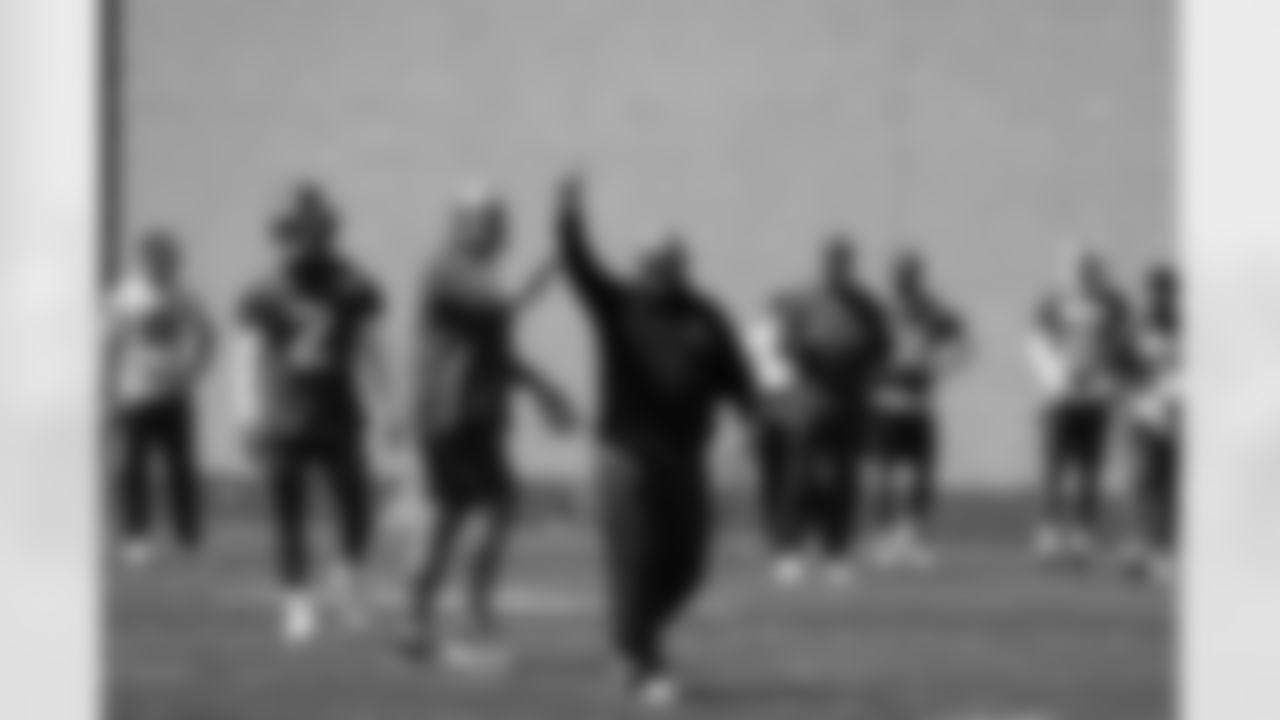
New York Giants head coach Brian Daboll during organized team activity at Quest Diagnostics Training Center on Tuesday May 17, 2022 in East Rutherford, New Jersey
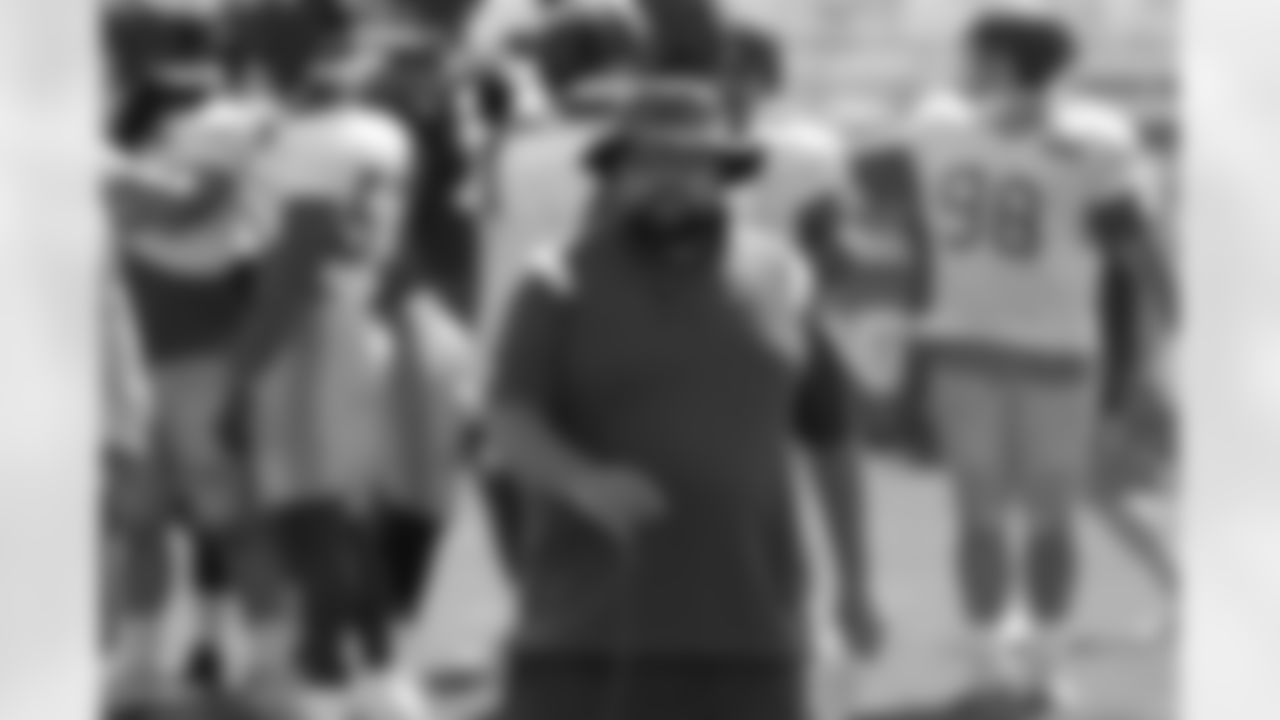
New York Giants head coach Brian Daboll during training camp practice at Quest Diagnostics Training Center on Monday August 15, 2022 in East Rutherford, New Jersey
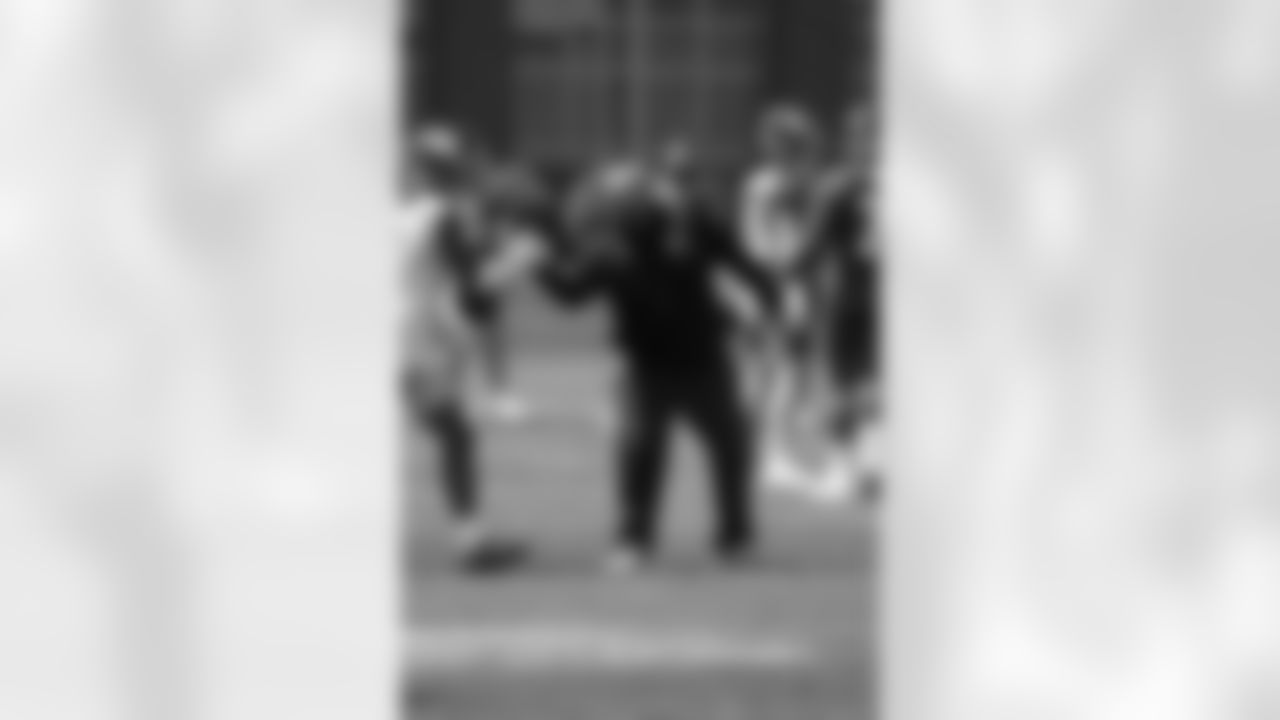
New York Giants head coach Brian Daboll shakes hands with head coach Brian Daboll during organized team activity at Quest Diagnostics Training Center on Tuesday May 17, 2022 in East Rutherford, New Jersey
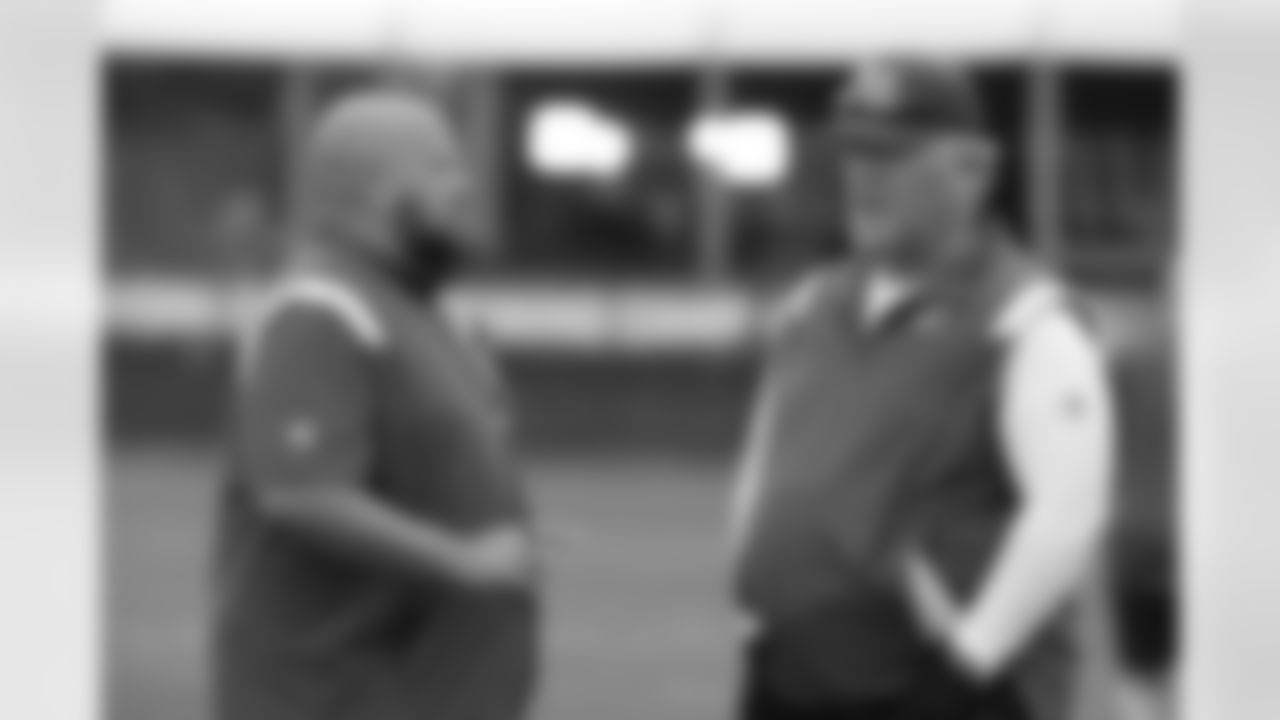
New York Giants head coach Brian Daboll talks with defensive coordinator Don Martindale during training camp practice at Quest Diagnostics Training Center on Monday August 1, 2022 in East Rutherford, New Jersey
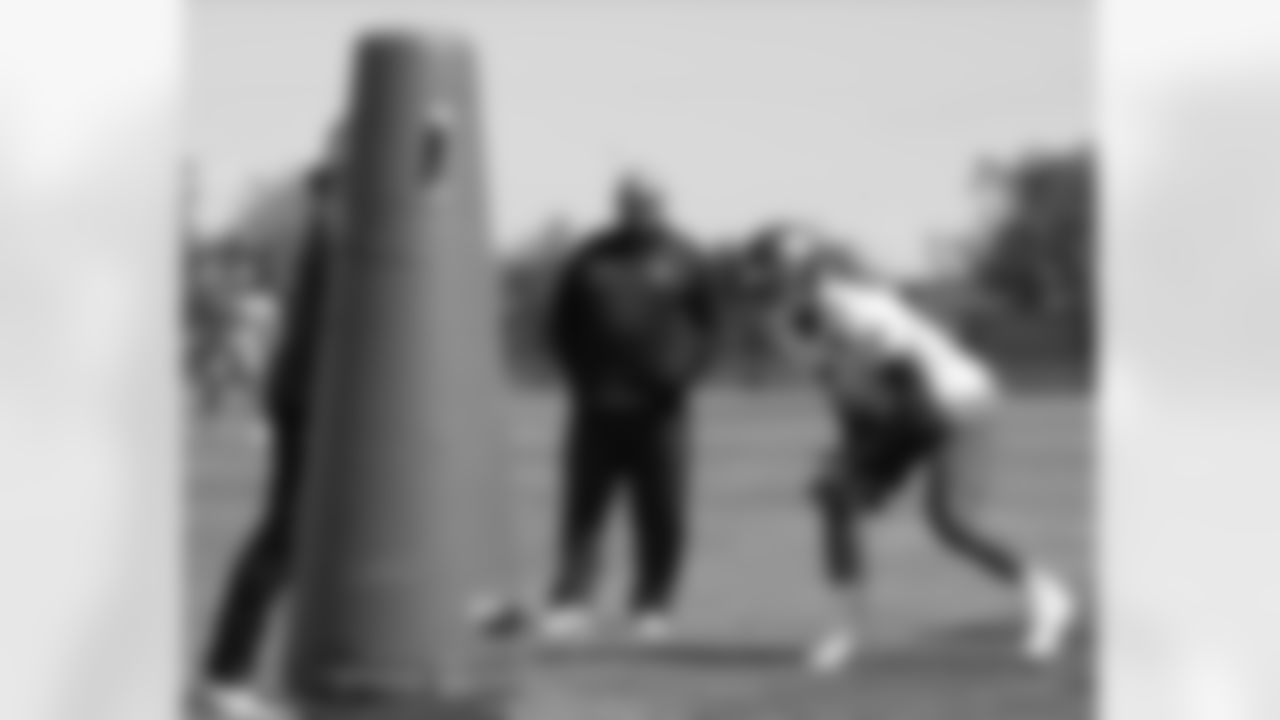
New York Giants head coach Brian Daboll watches during organized team activity at Quest Diagnostics Training Center on Tuesday May 17, 2022 in East Rutherford, New Jersey

Brandon Jacobs talks with Brian Daboll after training camp practice at Quest Diagnostics Training Center on Saturday July 30, 2022 in East Rutherford, New Jersey

New York Giants head coach Brian Daboll during organized team activity at Quest Diagnostics Training Center on Monday May 16, 2022 in East Rutherford, New Jersey
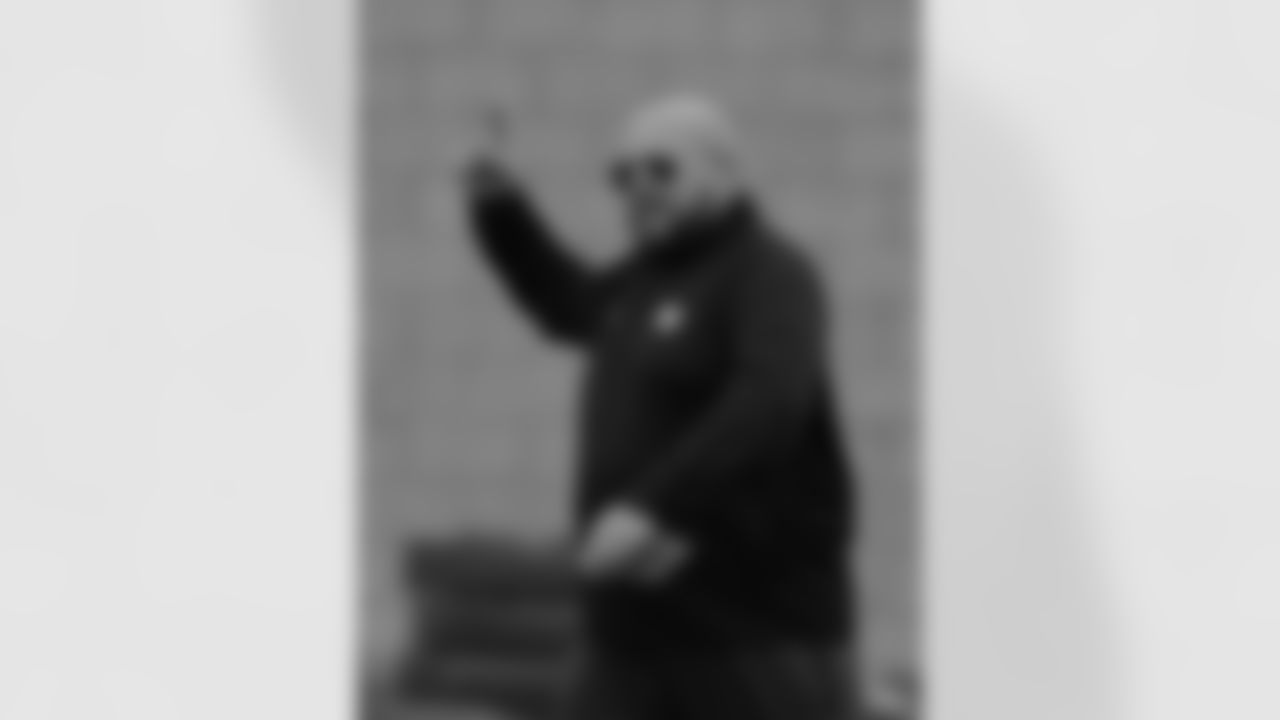
New York Giants head coach Brian Daboll during organized team activity at Quest Diagnostics Training Center on Monday May 16, 2022 in East Rutherford, New Jersey
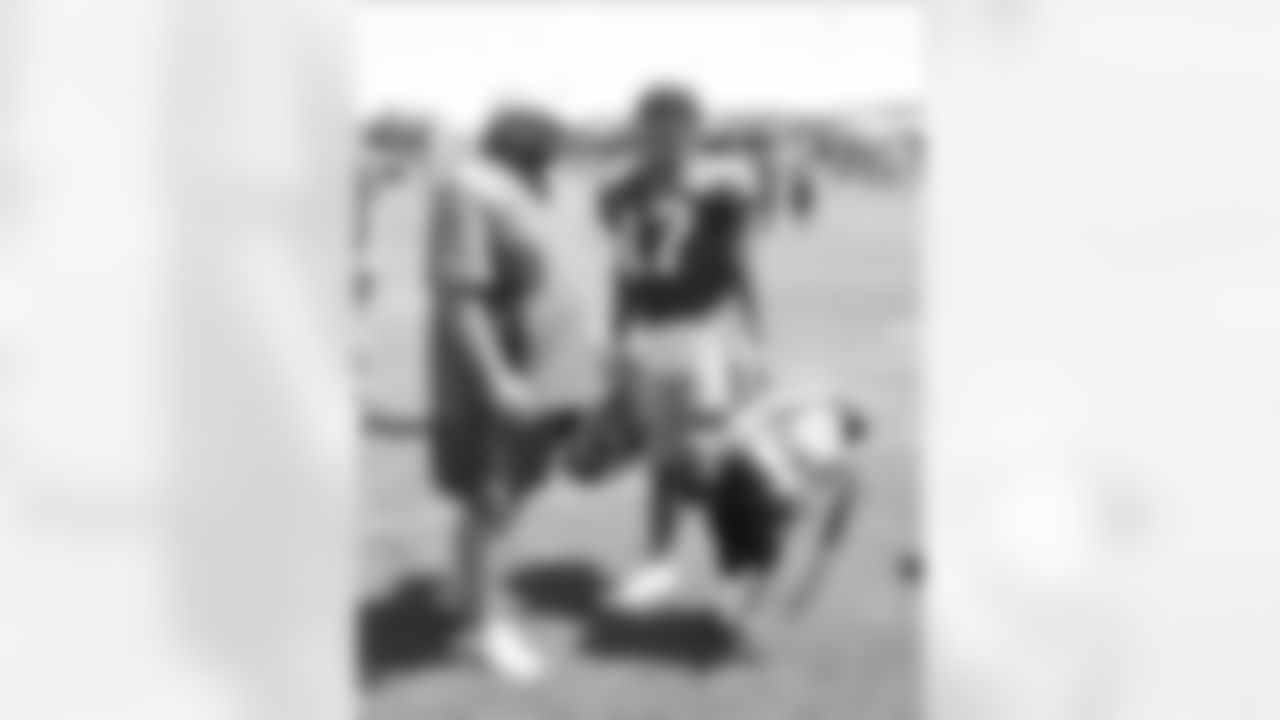
New York Giants head coach Brian Daboll talks with wide receiver Wan'Dale Robinson (17) following training camp practice at Quest Diagnostics Training Center on Wednesday August 3, 2022 in East Rutherford, New Jersey

New York Giants head coach Brian Daboll during training camp practice at Quest Diagnostics Training Center on Sunday August 14, 2022 in East Rutherford, New Jersey

New York Giants head coach Brian Daboll during training camp practice at Quest Diagnostics Training Center on Sunday August 14, 2022 in East Rutherford, New Jersey
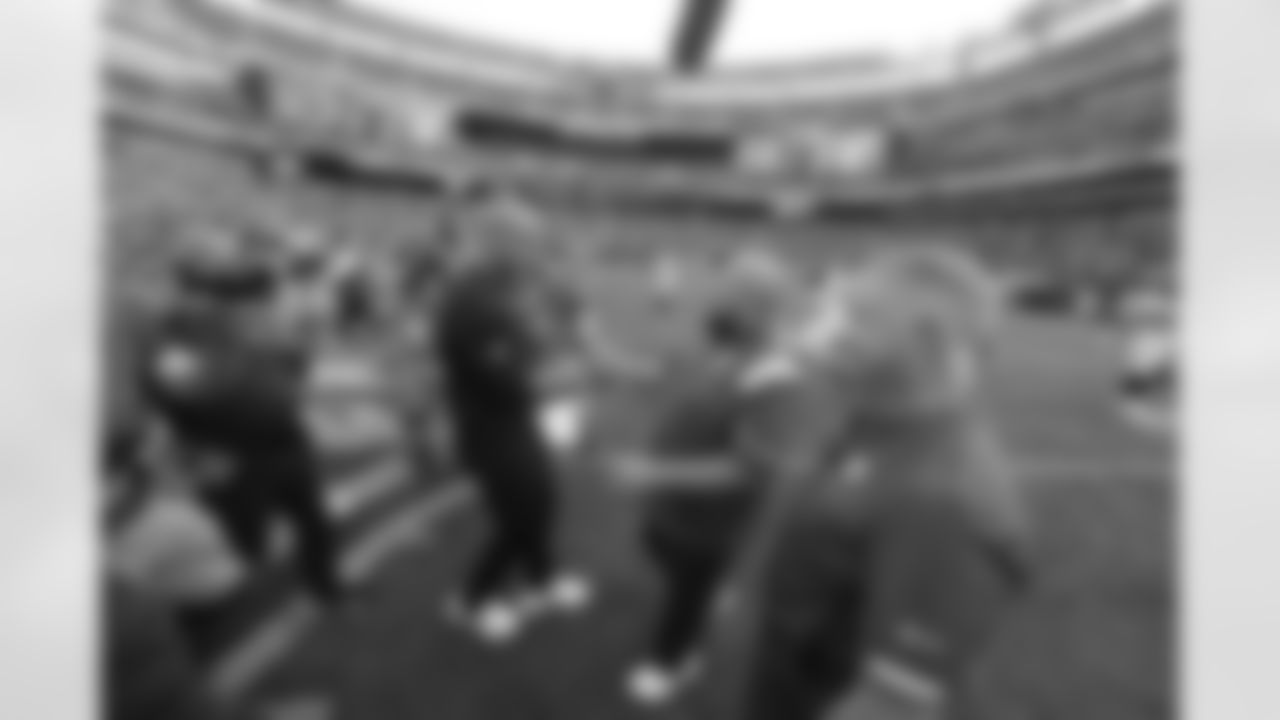
New York Jets head coach Robert Saleh shakes hands with New York Giants head coach Brian Daboll following a pre-season football game against the New York Jets on Sunday August 28, 2022 in East Rutherford, New Jersey (Evan Pinkus/NY Giants)

New York Giants head coach Brian Daboll during a preseason NFL football game against New England Patriots on Thursday August 11, 2022 in Foxborough, MA

New York Giants head coach Brian Daboll introduce boys from the San Miguel Academy following training camp practice at Quest Diagnostics Training Center on Wednesday August 3, 2022 in East Rutherford, New Jersey

New York Giants head coach Brian Daboll introduce boys from the San Miguel Academy following training camp practice at Quest Diagnostics Training Center on Wednesday August 3, 2022 in East Rutherford, New Jersey

New York Giants head coach Brian Daboll introduce boys from the San Miguel Academy following training camp practice at Quest Diagnostics Training Center on Wednesday August 3, 2022 in East Rutherford, New Jersey

New York Giants head coach Brian Daboll introduce boys from the San Miguel Academy following training camp practice at Quest Diagnostics Training Center on Wednesday August 3, 2022 in East Rutherford, New Jersey

Brian Daboll and Joe Schoen talks during minicamp practice at Quest Diagnostics Training Center on Saturday May 14, 2022 in East Rutherford, New Jersey

New York Giants head coach Brian Daboll during a pre-season football game against the New York Jets on Sunday August 28, 2022 in East Rutherford, New Jersey (Evan Pinkus/NY Giants)
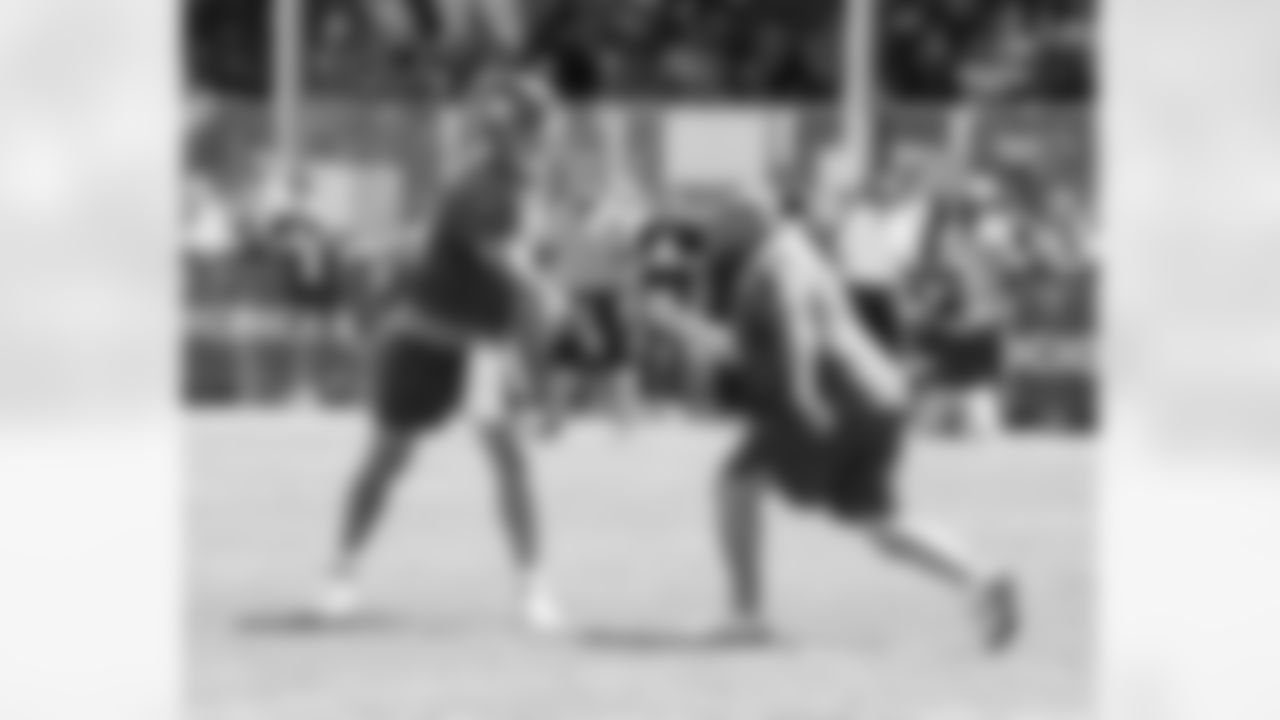
New York Giants Daniel Jones (8) celebrates a touchdown pass with head coach Brian Daboll during training camp practice at Quest Diagnostics Training Center on Saturday July 30, 2022 in East Rutherford, New Jersey
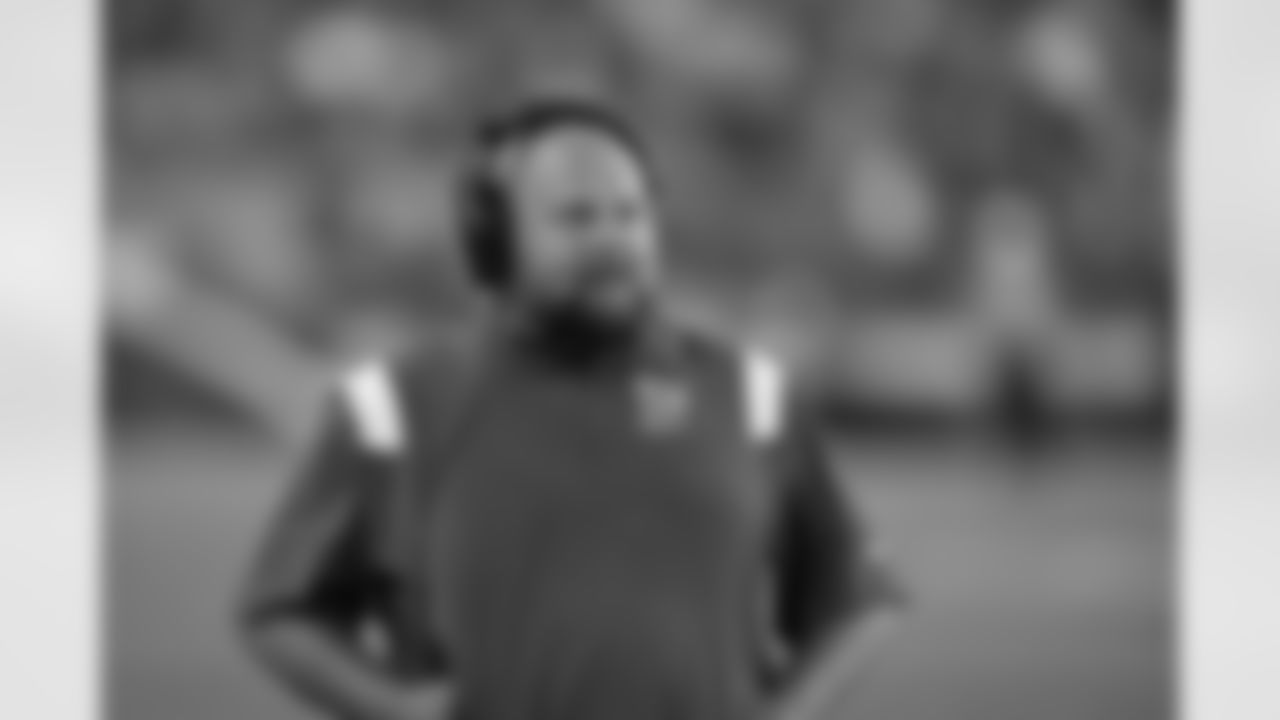
New York Giants head coach Brian Daboll during a preseason NFL football game against New England Patriots on Thursday August 11, 2022 in Foxborough, MA
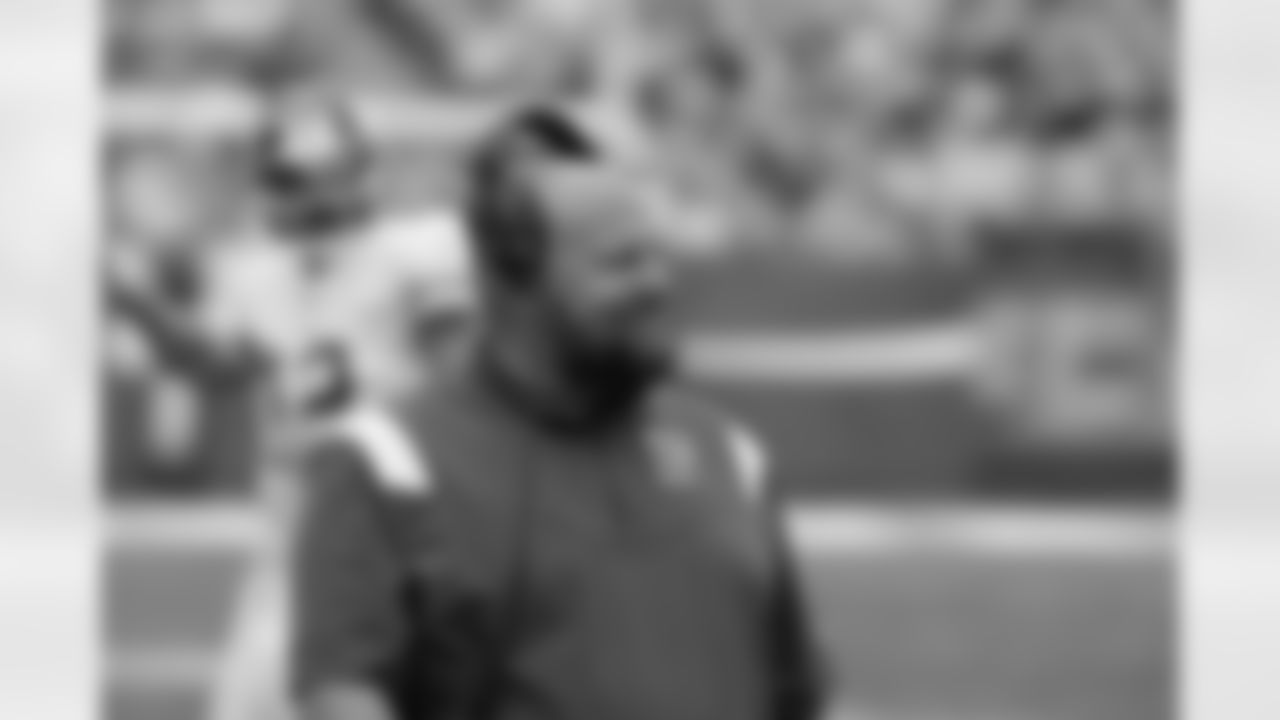
New York Giants head coach Brian Daboll during a pre-season football game against the New York Jets on Sunday August 28, 2022 in East Rutherford, New Jersey (Evan Pinkus/NY Giants)

New York Giants head coach Brian Daboll talks with general manager Joe Schoen and Shaun O'Hara during training camp practice at Quest Diagnostics Training Center on Saturday July 30, 2022 in East Rutherford, New Jersey

New York Giants head coach Brian Daboll talks to his team following training camp practice at Quest Diagnostics Training Center on Saturday July 30, 2022 in East Rutherford, New Jersey

New York Giants head coach Brian Daboll during a preseason NFL football game against New England Patriots on Thursday August 11, 2022 in Foxborough, MA

New York Giants head coach Brian Daboll during a pre-season football game against the New York Jets on Sunday August 28, 2022 in East Rutherford, New Jersey (Evan Pinkus/NY Giants)
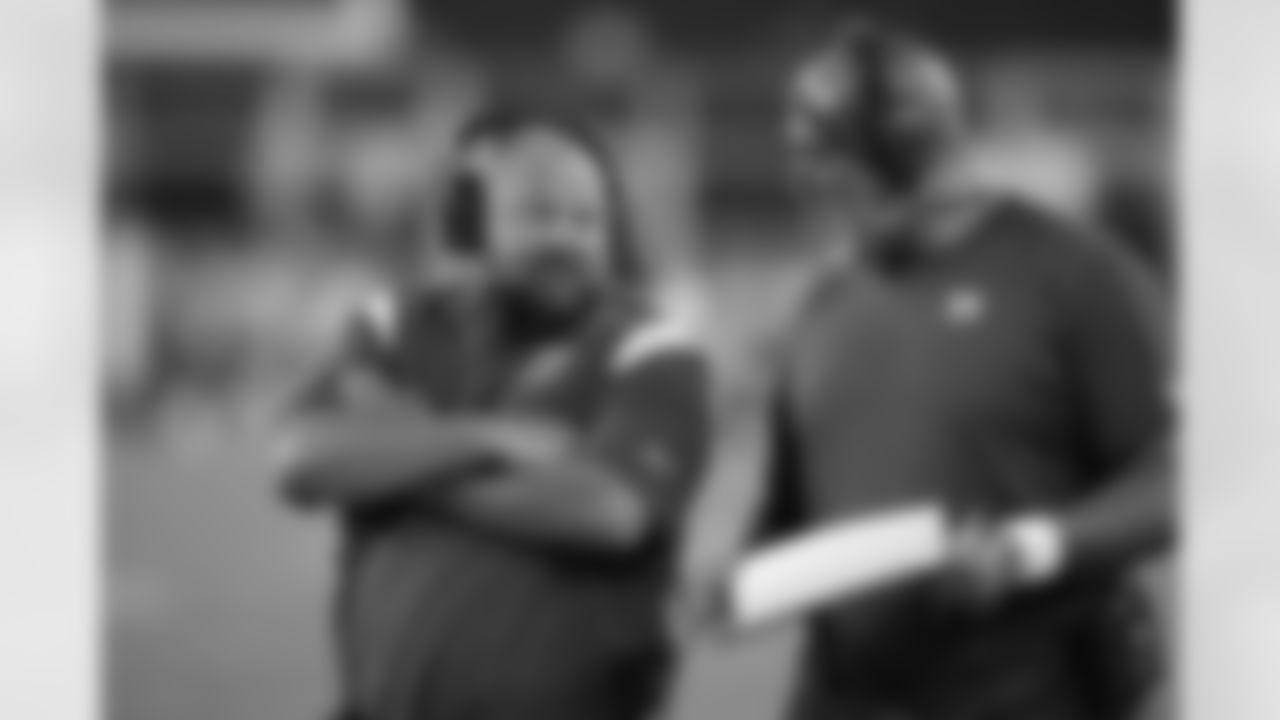
New York Giants head coach Brian Daboll talks with offensive line coach Bobby Johnson during a preseason NFL football game against New England Patriots on Thursday August 11, 2022 in Foxborough, MA

New York Giants quarterback Tyrod Taylor (2) talks with New York Giants head coach Brian Daboll during a preseason NFL football game against New England Patriots on Thursday August 11, 2022 in Foxborough, MA

New York Giants head coach Brian Daboll during a pre-season football game against the New York Jets on Sunday August 28, 2022 in East Rutherford, New Jersey (Evan Pinkus/NY Giants)

New York Giants head coach Brian Daboll during a preseason NFL football game against New England Patriots on Thursday August 11, 2022 in Foxborough, MA

New York Giants head coach Brian Daboll during a preseason NFL football game against New England Patriots on Thursday August 11, 2022 in Foxborough, MA

New York Giants head coach Brian Daboll talks with Brandon Jacobs during training camp practice at Quest Diagnostics Training Center on Saturday July 30, 2022 in East Rutherford, New Jersey

Brian Daboll during organized team activity at Quest Diagnostics Training Center on Friday June 3, 2022 in East Rutherford, New Jersey

New York Giants head coach Brian Daboll during a preseason NFL football game against New England Patriots on Thursday August 11, 2022 in Foxborough, MA

Brian Daboll during organized team activity at Quest Diagnostics Training Center on Friday June 3, 2022 in East Rutherford, New Jersey

New York Giants head coach Brian Daboll during training camp practice at Quest Diagnostics Training Center on Saturday July 30, 2022 in East Rutherford, New Jersey

Brian Daboll during minicamp practice at Quest Diagnostics Training Center on Saturday May 14, 2022 in East Rutherford, New Jersey

New York Giants yea coach Brian Daboll talks to the offense in the huddle during organized team activity at Quest Diagnostics Training Center on Friday June 3, 2022 in East Rutherford, New Jersey

New York Giants head coach Brian Daboll during a preseason NFL football game against New England Patriots on Thursday August 11, 2022 in Foxborough, MA
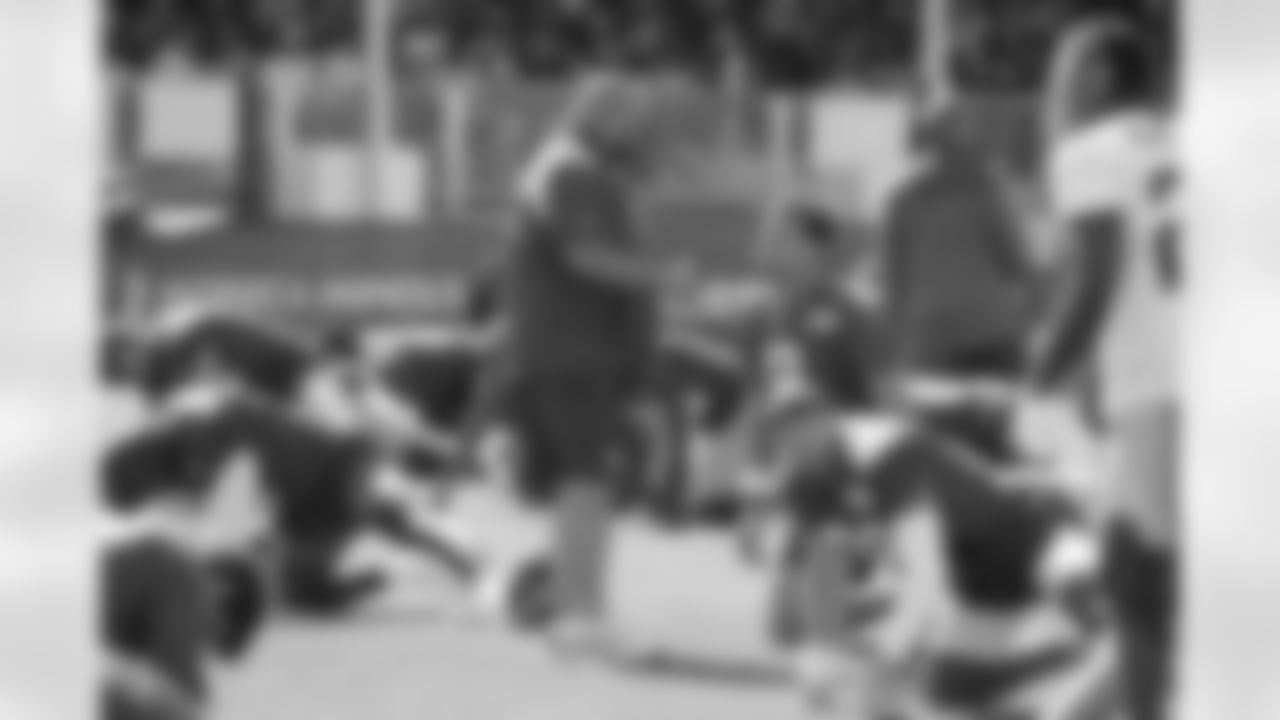
New York Giants head coach Brian Daboll talks with quarterback Daniel Jones during training camp practice at Quest Diagnostics Training Center on Saturday July 30, 2022 in East Rutherford, New Jersey

New York Giants head coach Brian Daboll during a preseason NFL football game against New England Patriots on Thursday August 11, 2022 in Foxborough, MA
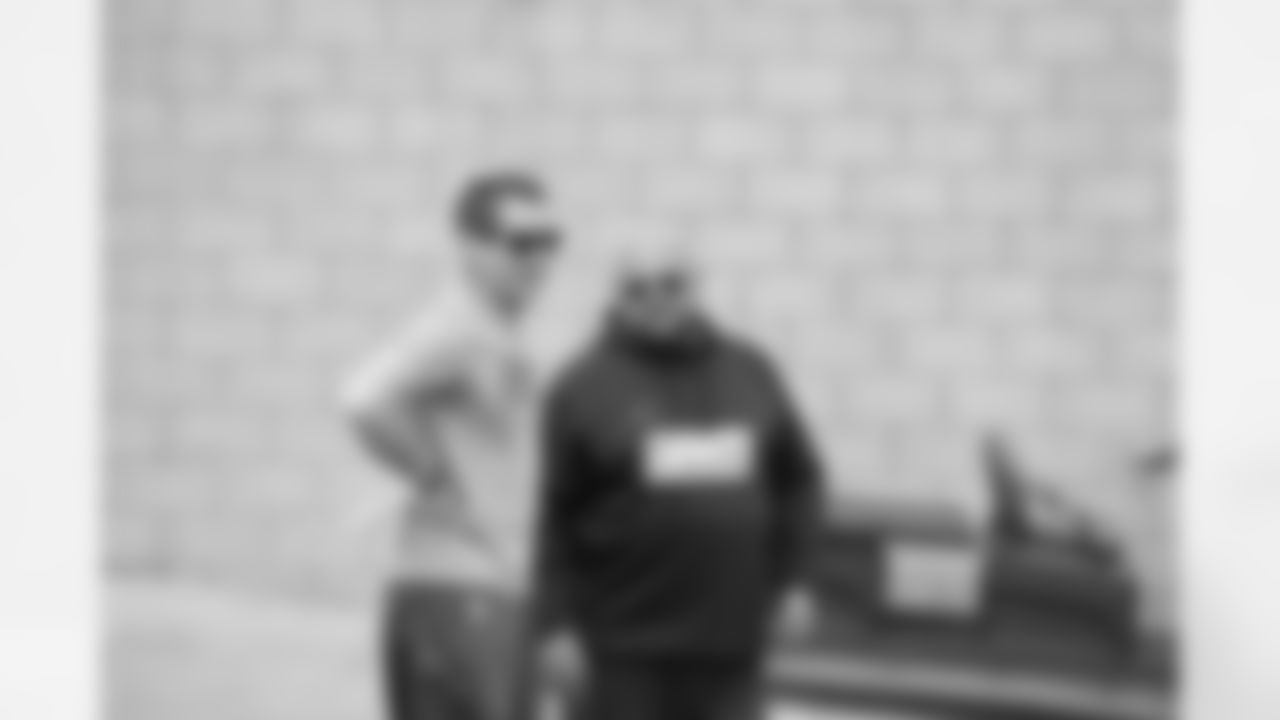
New York Giants head coach Brian Daboll talks with Joe Schoen during organized team activity at Quest Diagnostics Training Center on Friday June 3, 2022 in East Rutherford, New Jersey
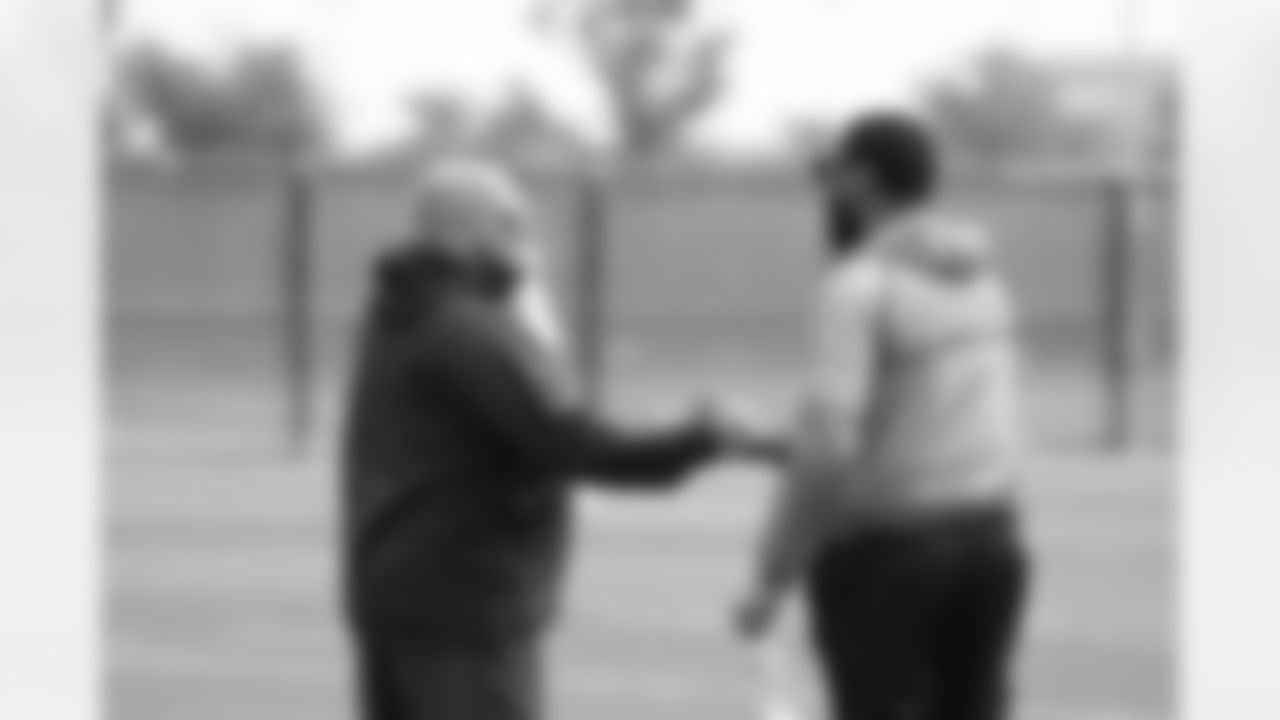
Brian Daboll and Mario Manningham shake during organized team activity at Quest Diagnostics Training Center on Friday June 3, 2022 in East Rutherford, New Jersey

Brian Daboll and Joe Schoen talk during organized team activity at Quest Diagnostics Training Center on Friday June 3, 2022 in East Rutherford, New Jersey
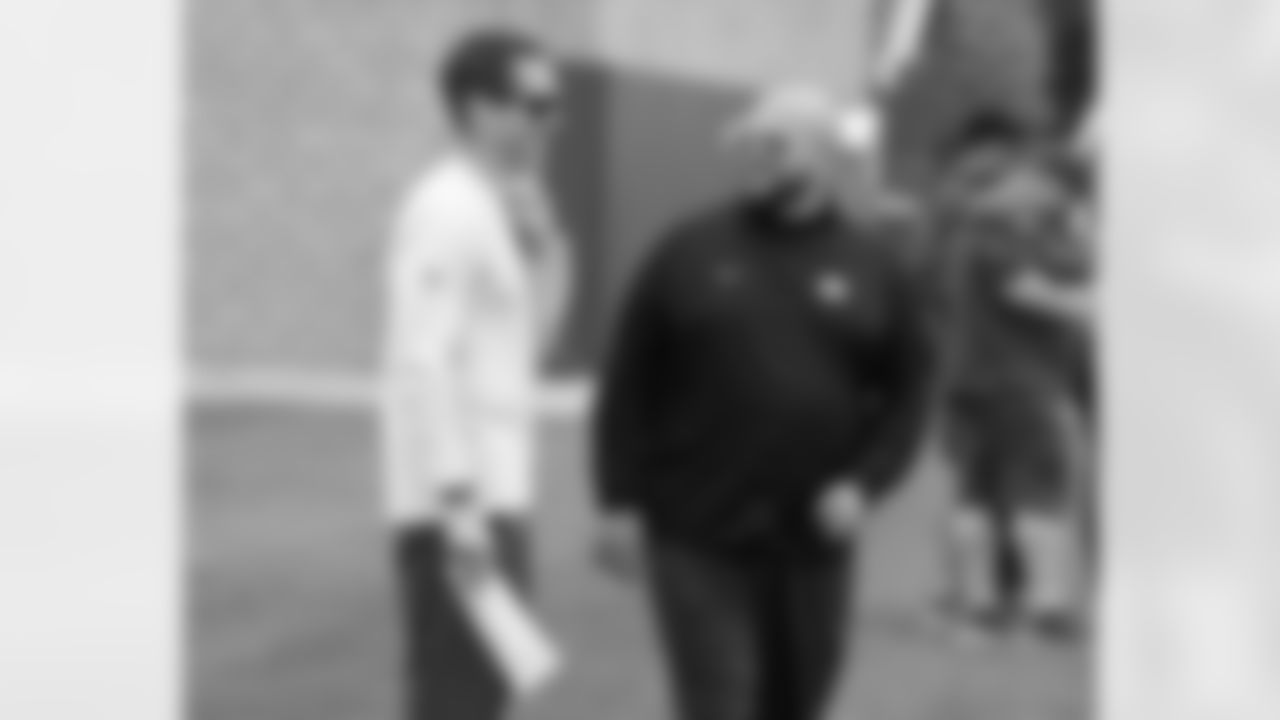
Joe Schoen talks with Brian Daboll during minicamp practice at Quest Diagnostics Training Center on Friday May 13, 2022 in East Rutherford, New Jersey

New York Giants' Kayvon Thibodeaux (50 talks with New York Giants head coach Brian Daboll during training camp practice at Quest Diagnostics Training Center on Thursday July 28, 2022 in East Rutherford, New Jersey
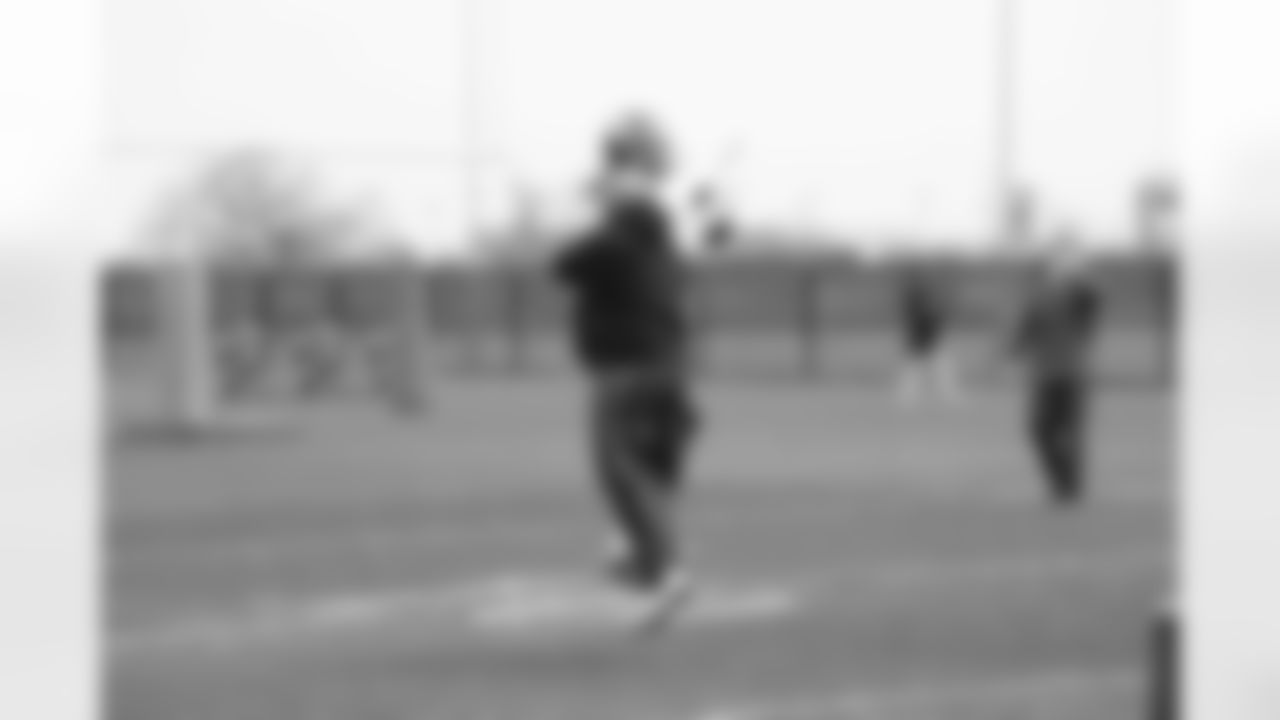
New York Giants head coach Brian Daboll celebrates an interception with safety Xavier McKinney during minicamp practice at Quest Diagnostics Training Center on Tuesday April 21, 2022 in East Rutherford, New Jersey

New York Giants head coach Brian Daboll during a preseason NFL football game against New England Patriots on Thursday August 11, 2022 in Foxborough, MA

New York Giants head coach Brian Daboll during a preseason NFL football game against New England Patriots on Thursday August 11, 2022 in Foxborough, MA

New York Giants head coach Brian Daboll shakes with Jalyn Holmes (91) during training camp practice at Quest Diagnostics Training Center on Thursday July 28, 2022 in East Rutherford, New Jersey
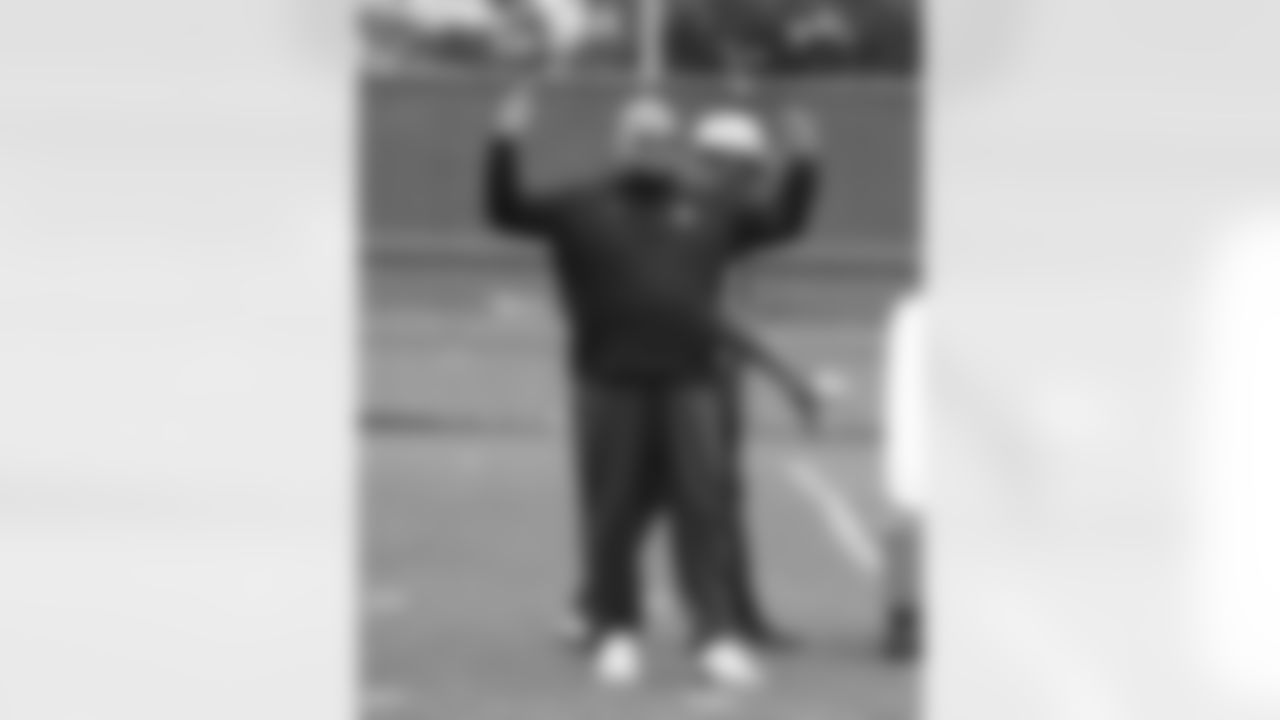
New York Giants head coach Brian Daboll during organized team activity at Quest Diagnostics Training Center on Thursday June 2, 2022 in East Rutherford, New Jersey
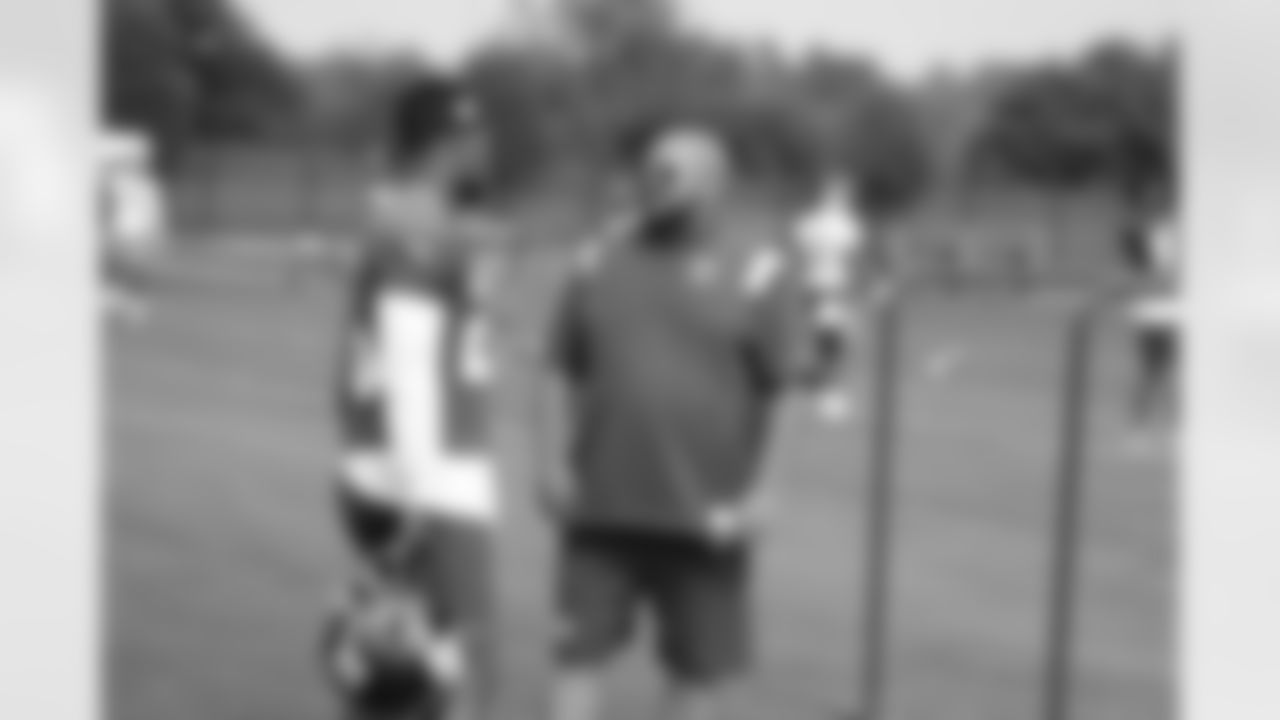
New York Giants head coach Brian Daboll talks with running back Saquon Barkley (26) during training camp practice at Quest Diagnostics Training Center on Thursday July 28, 2022 in East Rutherford, New Jersey
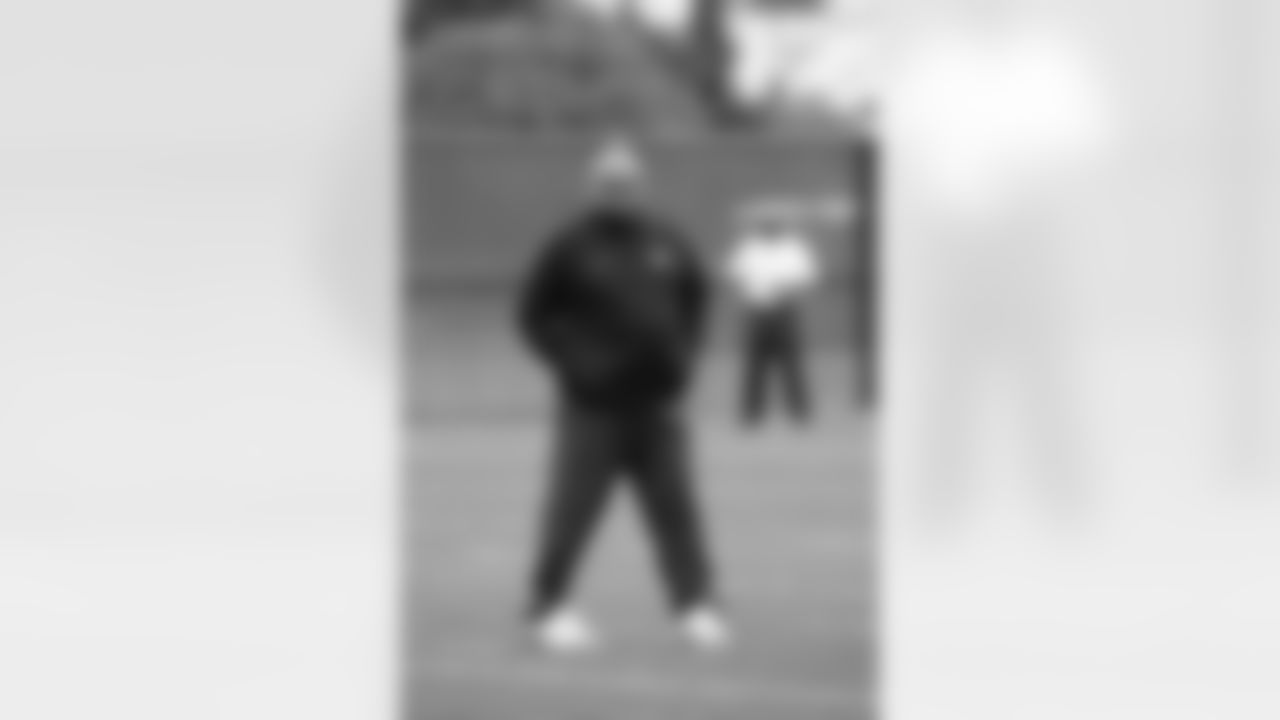
New York Giants head coach Brian Daboll during organized team activity at Quest Diagnostics Training Center on Thursday June 2, 2022 in East Rutherford, New Jersey

New York Giants head coach Brian Daboll during training camp practice at Quest Diagnostics Training Center on Wednesday July 27, 2022 in East Rutherford, New Jersey

New York Giants head coach Brian Daboll talks to his team during organized team activity at Quest Diagnostics Training Center on Thursday June 2, 2022 in East Rutherford, New Jersey

New York Giants quarterback Daniel Jones (8) talks with head coach Brian Daboll before a preseason NFL football game against New England Patriots on Thursday August 11, 2022 in Foxborough, MA

New York Giants head coach Brian Daboll talks quaterback Daniel Jones during training camp practice at Quest Diagnostics Training Center on Friday July 29, 2022 in East Rutherford, New Jersey
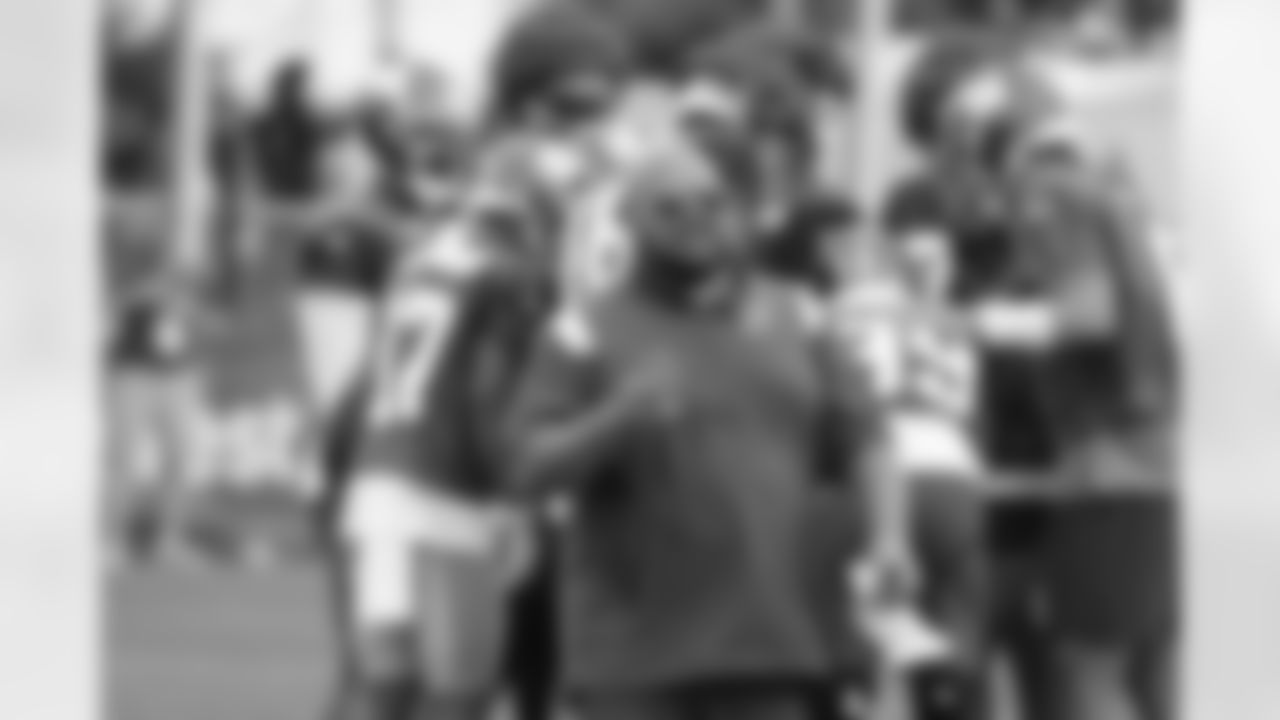
New York Giants head coach Brian Daboll during training camp practice at Quest Diagnostics Training Center on Friday July 29, 2022 in East Rutherford, New Jersey
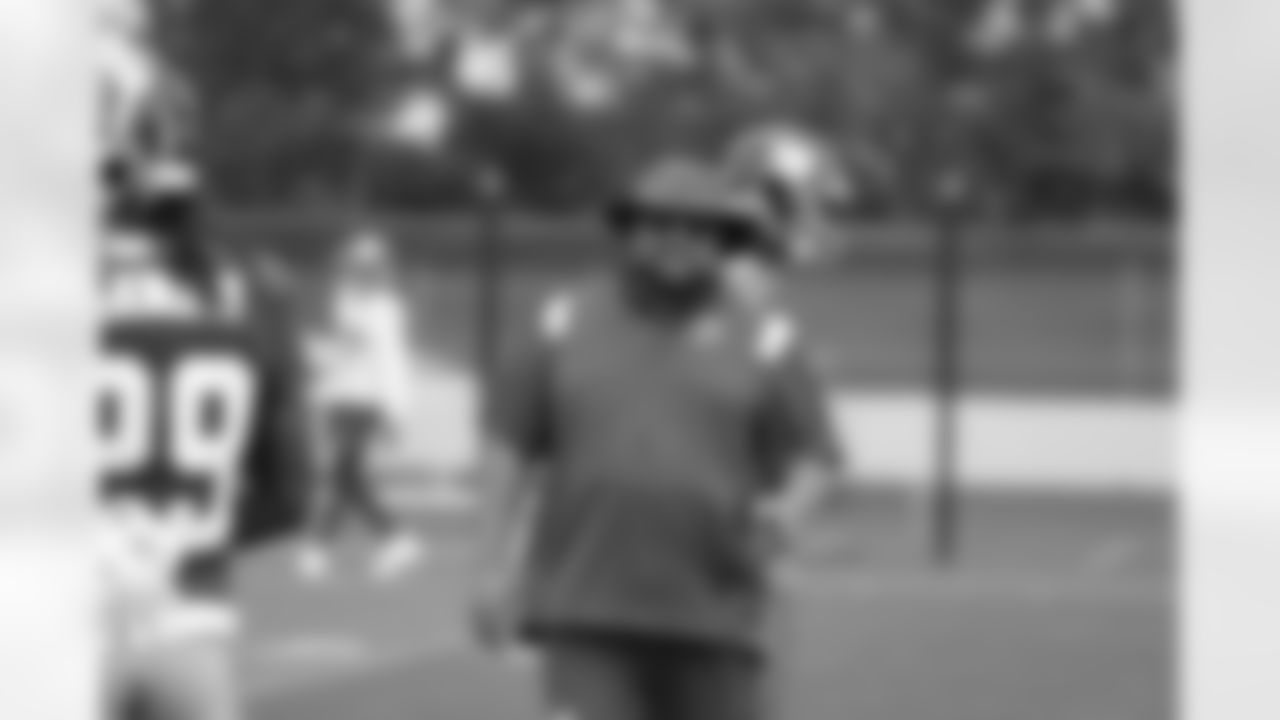
New York Giants head coach Brian Daboll during training camp practice at Quest Diagnostics Training Center on Friday August 26, 2022 in East Rutherford, New Jersey

Head coach Brian Daboll during minicamp practice at Quest Diagnostics Training Center on Tuesday April 20, 2022 in East Rutherford, New Jersey
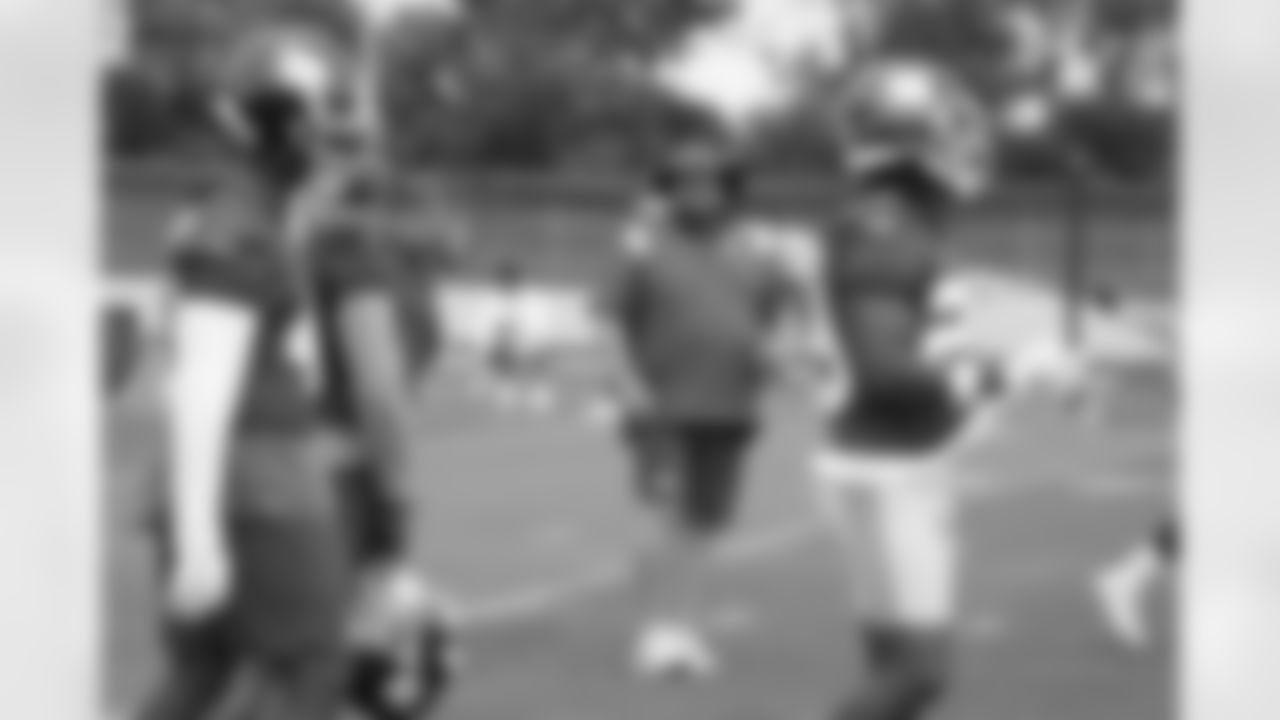
New York Giants head coach Brian Daboll during training camp practice at Quest Diagnostics Training Center on Friday August 26, 2022 in East Rutherford, New Jersey

New York Giants head coach Brian Daboll during a pre-season football game against the New York Jets on Sunday August 28, 2022 in East Rutherford, New Jersey (Evan Pinkus/NY Giants)
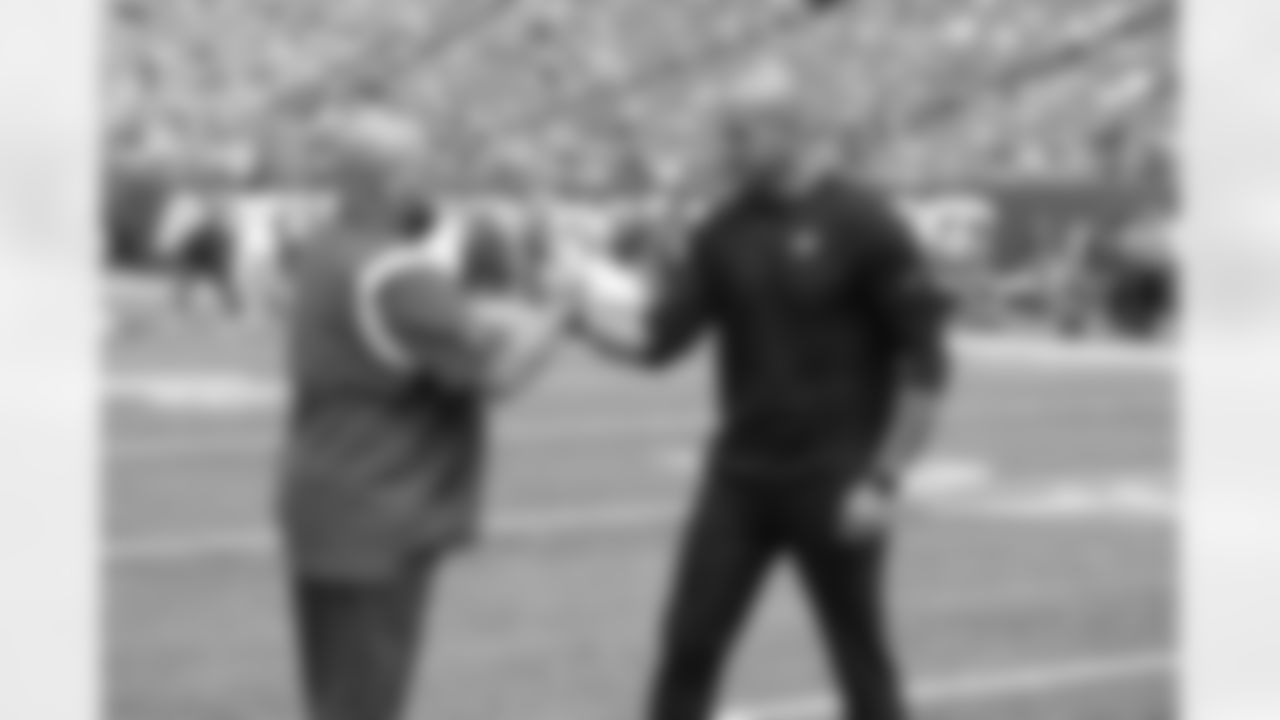
New York Giants head coach Brian Daboll talks with New York Jets head coach Robert Saleh before a pre-season football game against the New York Jets on Sunday August 28, 2022 in East Rutherford, New Jersey (Evan Pinkus/NY Giants)

New York Giants head coach Brian Daboll talks with defensive coordinator Don Martindale during training camp practice at Quest Diagnostics Training Center on Tuesday August 9, 2022 in East Rutherford, New Jersey

New York Giants General Manager Joe Schoen and head coach Brian Daboll pose for a photo with first round draft pick Evan Neal during a press conference at Quest Diagnostics Training Center on Saturday April 30, 2022 in East Rutherford, New Jersey
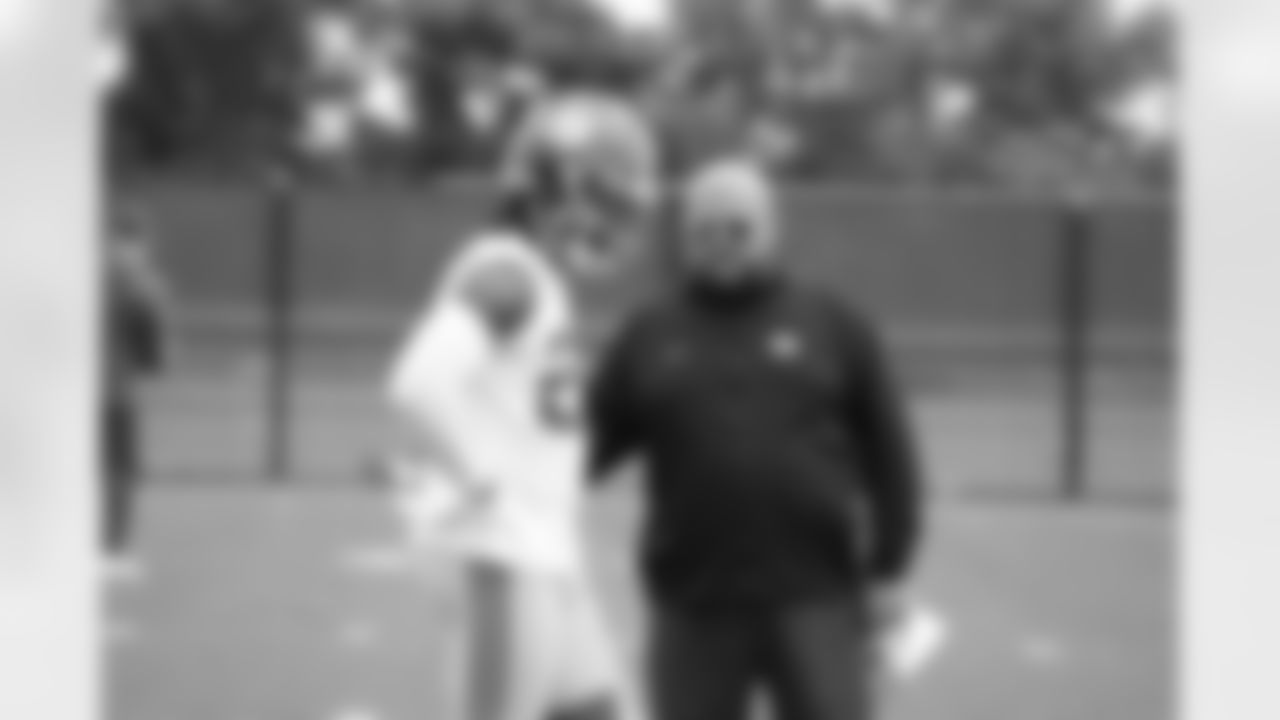
New York Giants head coach Brian Daboll talks with safety Xavier McKinney (29) during organized team activity at Quest Diagnostics Training Center on Thursday June 2, 2022 in East Rutherford, New Jersey

New York Giants head coach Brian Daboll during training camp practice at Quest Diagnostics Training Center on Tuesday August 9, 2022 in East Rutherford, New Jersey

New York Giants General Manager Joe Schoen and head coach Brian Daboll pose for a photo with first round draft pick Evan Neal during a press conference at Quest Diagnostics Training Center on Saturday April 30, 2022 in East Rutherford, New Jersey

New York Giants General Manager Joe Schoen and head coach Brian Daboll pose for a photo with first round draft pick Kavon Thibodeaux during a press conference at Quest Diagnostics Training Center on Saturday April 30, 2022 in East Rutherford, New Jersey

New York Giants head coach Brian Daboll signals touchdown during training camp practice at Quest Diagnostics Training Center on Friday August 26, 2022 in East Rutherford, New Jersey

New York Giants center Joe Feliciano (76) gets a hug from head coach Brian Daboll during minicamp practice at Quest Diagnostics Training Center on Wednesday April 20, 2022 in East Rutherford, New Jersey
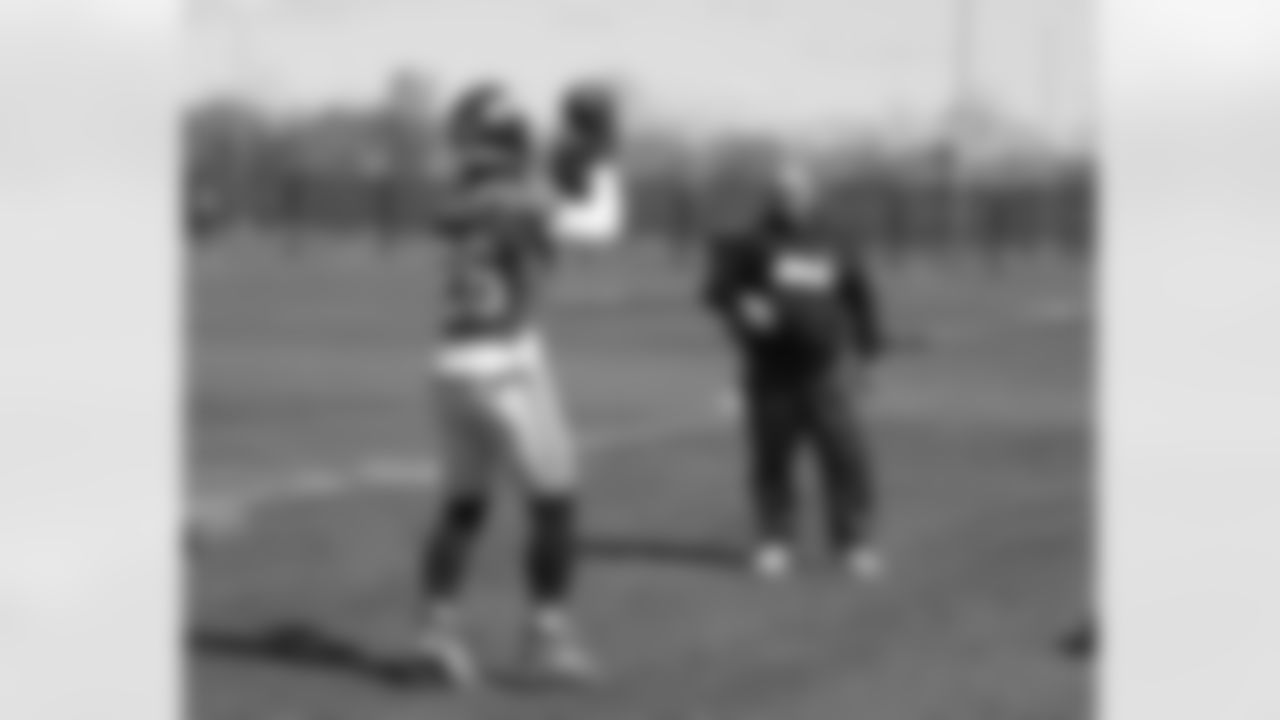
New York Giants head coach Brian Daboll works with running back Saquon Barkley (26) during minicamp practice at Quest Diagnostics Training Center on Wednesday April 20, 2022 in East Rutherford, New Jersey
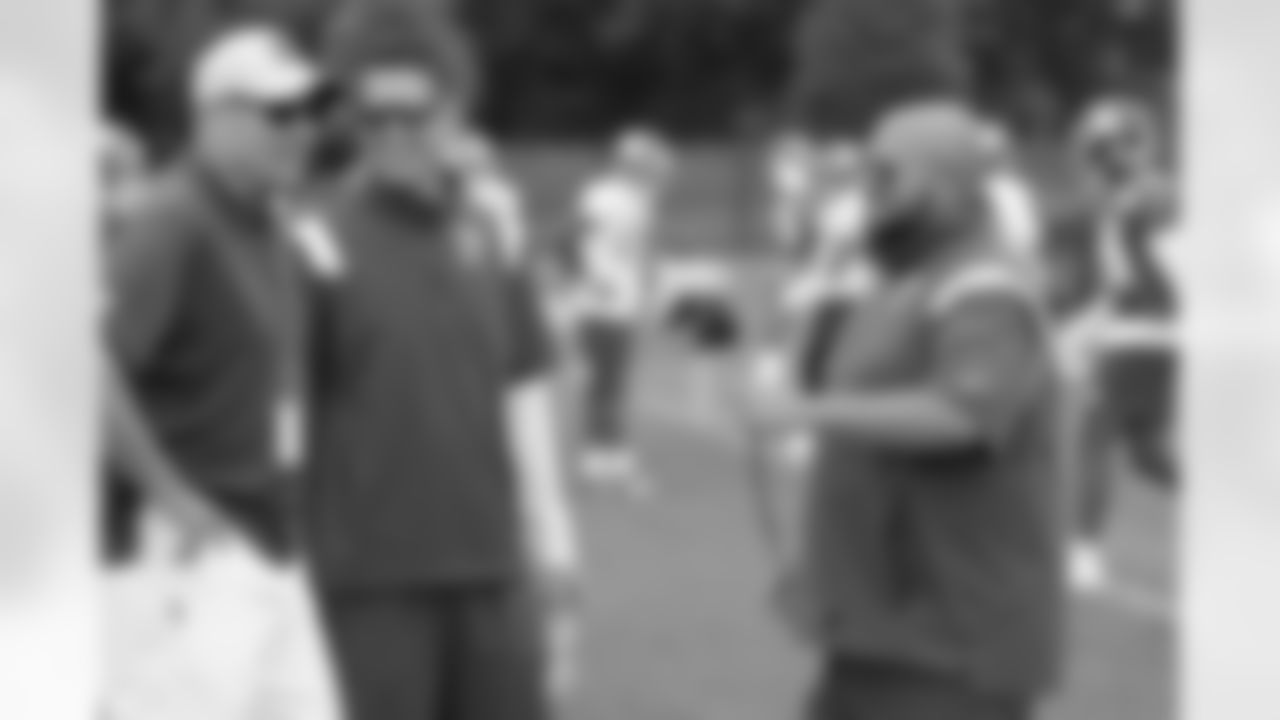
New York Giants head coach Brian Daboll talks with General manager Joe Schoen and former Giant Jeff Feagles during training camp practice at Quest Diagnostics Training Center on Friday July 29, 2022 in East Rutherford, New Jersey

New York Giants head coach Brian Daboll during organized team activity at Quest Diagnostics Training Center on Wednesday June 1, 2022 in East Rutherford, New Jersey

New York Giants head coach Brian Daboll walks with General manager Joe Schoen during training camp practice at Quest Diagnostics Training Center on Friday July 29, 2022 in East Rutherford, New Jersey
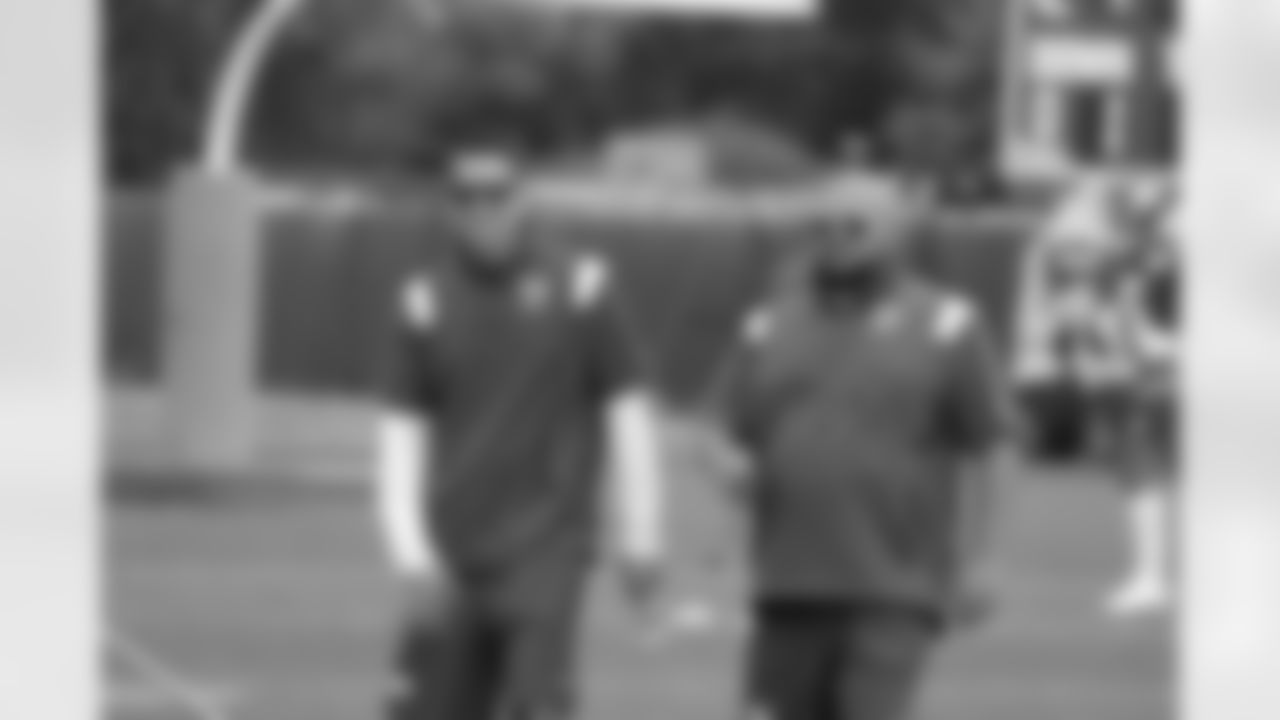
New York Giants head coach Brian Daboll walks with General manager Joe Schoen during training camp practice at Quest Diagnostics Training Center on Friday July 29, 2022 in East Rutherford, New Jersey
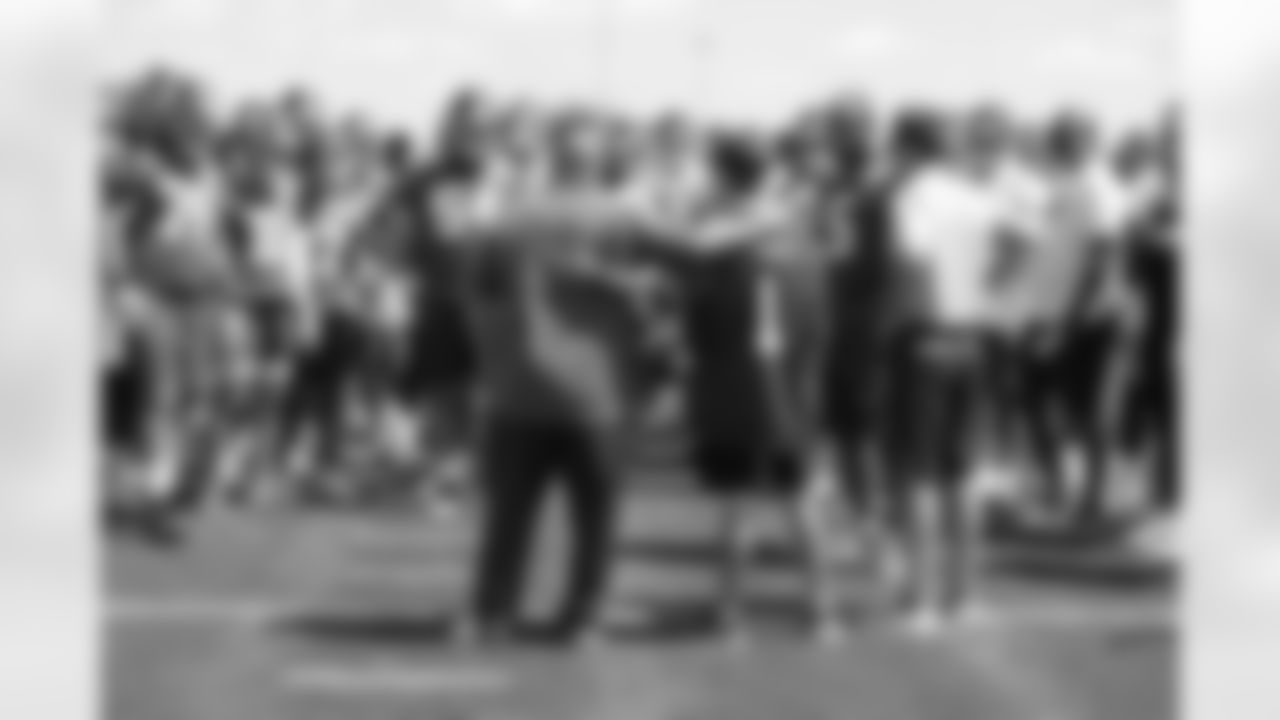
New York Giants head coach Brain Daboll introduces Sam Prince to the team during Minicamp at Quest Diagnostics Training Center on Wednesday June 8, 2022 in East Rutherford, New Jersey
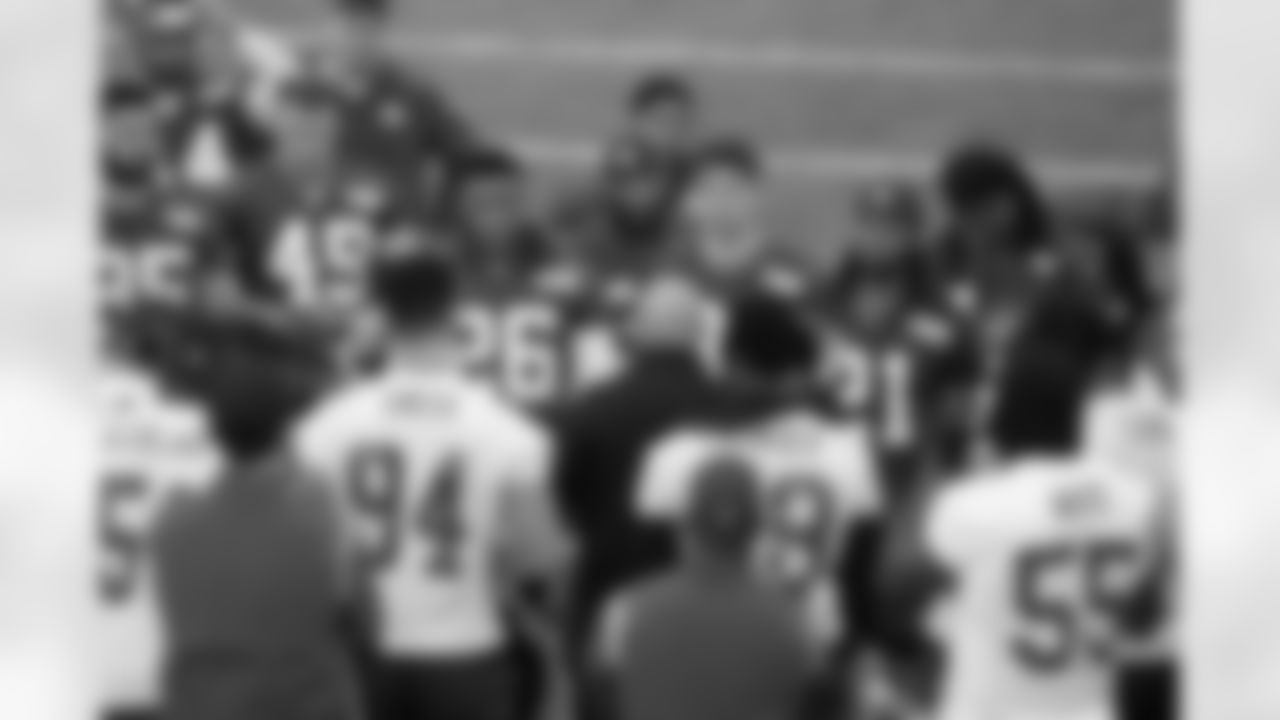
New York Giants head coach Brian Daboll talks to his team following minicamp practice at Quest Diagnostics Training Center on Tuesday April 19, 2022 in East Rutherford, New Jersey
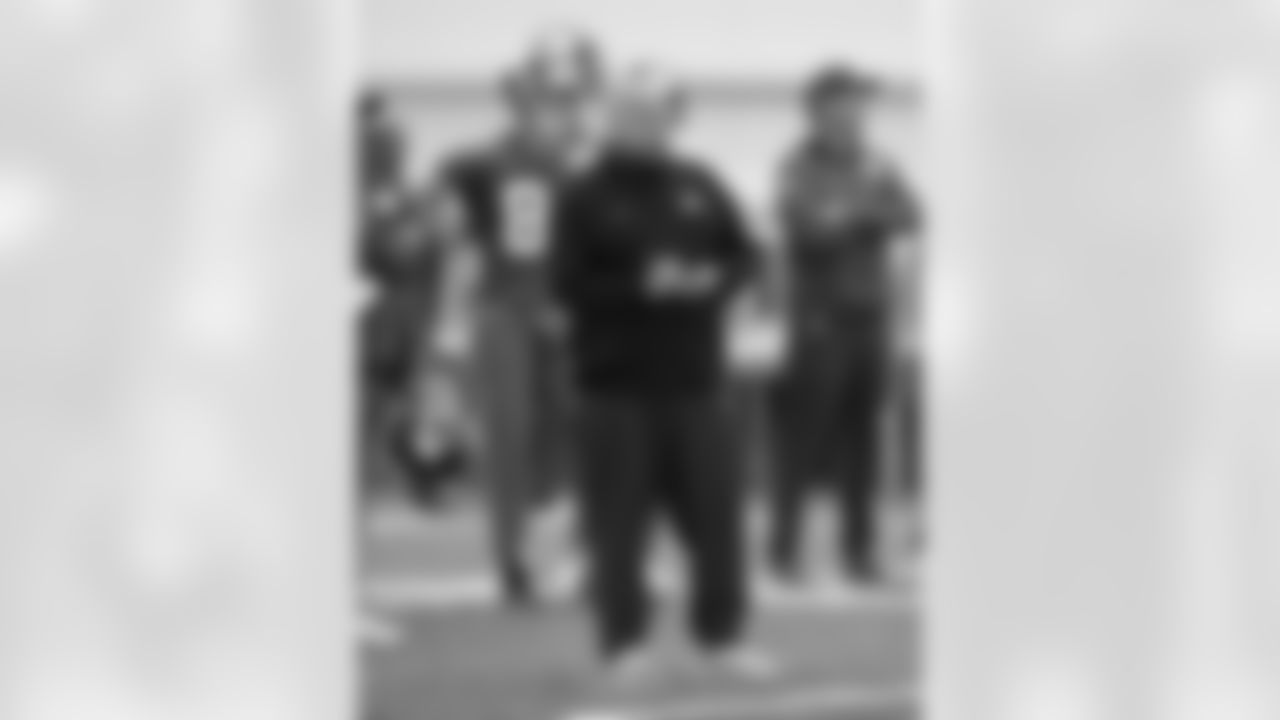
New York Giants head coach Brian Daboll during minicamp practice at Quest Diagnostics Training Center on Tuesday April 19, 2022 in East Rutherford, New Jersey

New York Giants head coach Brian Daboll during training camp practice at Quest Diagnostics Training Center on Wednesday August 24, 2022 in East Rutherford, New Jersey

New York Giants head coach Brian Daboll during training camp practice at Quest Diagnostics Training Center on Thursday July 28, 2022 in East Rutherford, New Jersey

New York Giants head coach Brian Daboll talks with quaterback Daniel Jones (8) during training camp practice at Quest Diagnostics Training Center on Thursday July 28, 2022 in East Rutherford, New Jersey
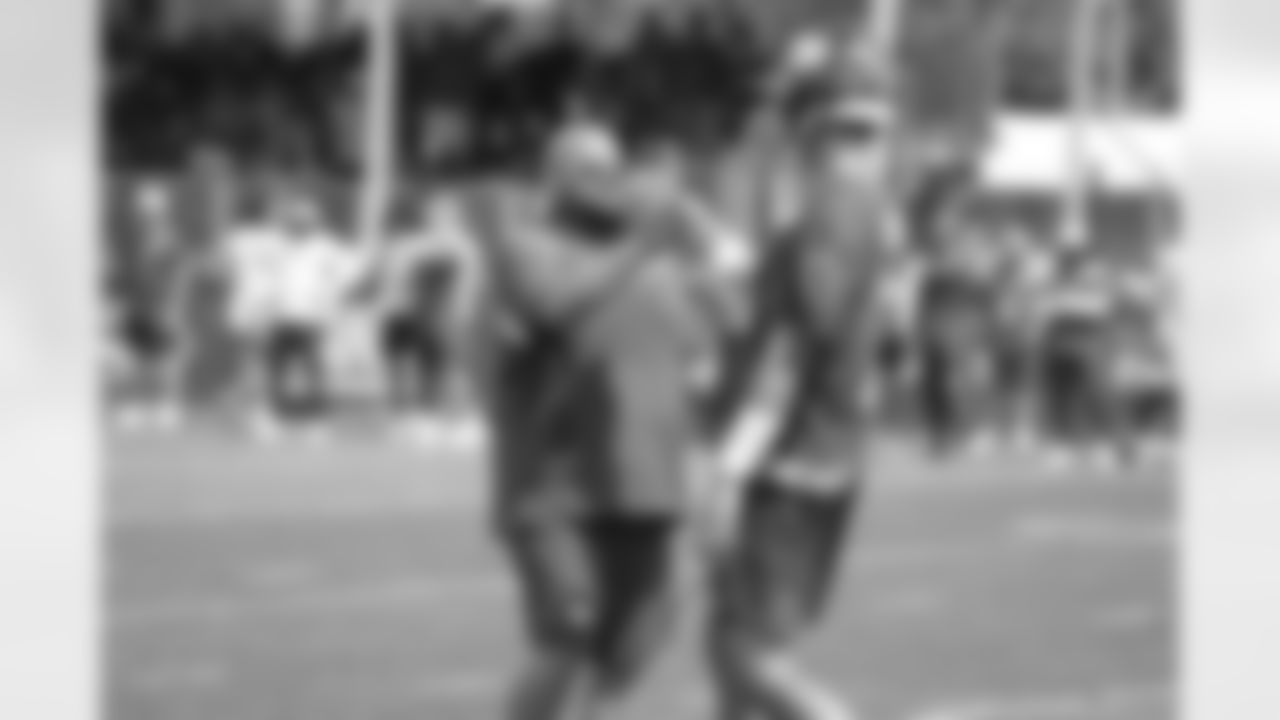
New York Giants head coach Brian Daboll fist bumps quaterback Daniel Jones (8) during training camp practice at Quest Diagnostics Training Center on Thursday July 28, 2022 in East Rutherford, New Jersey
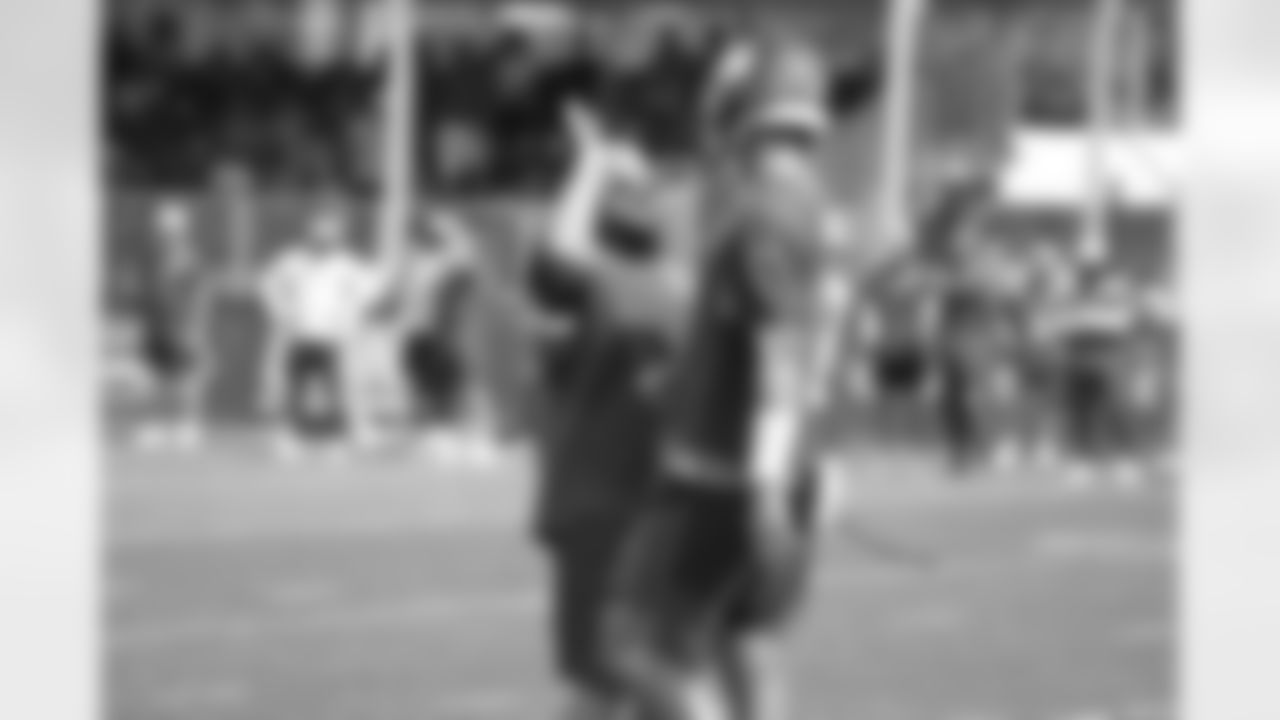
New York Giants head coach Brian Daboll fist bumps quaterback Daniel Jones (8) during training camp practice at Quest Diagnostics Training Center on Thursday July 28, 2022 in East Rutherford, New Jersey

New York Giants head coach Brian Daboll during minicamp practice at Quest Diagnostics Training Center on Tuesday April 19, 2022 in East Rutherford, New Jersey

New York Giants head coach Brian Daboll during training camp practice at Quest Diagnostics Training Center on Thursday July 28, 2022 in East Rutherford, New Jersey

New York Giants head coach Brian Daboll during training camp practice at Quest Diagnostics Training Center on Thursday July 28, 2022 in East Rutherford, New Jersey

New York Giants head coach Brian Daboll during organized team activity at Quest Diagnostics Training Center on Thursday May 26, 2022 in East Rutherford, New Jersey

New York Giants head coach Brian Daboll during organized team activity at Quest Diagnostics Training Center on Thursday May 26, 2022 in East Rutherford, New Jersey
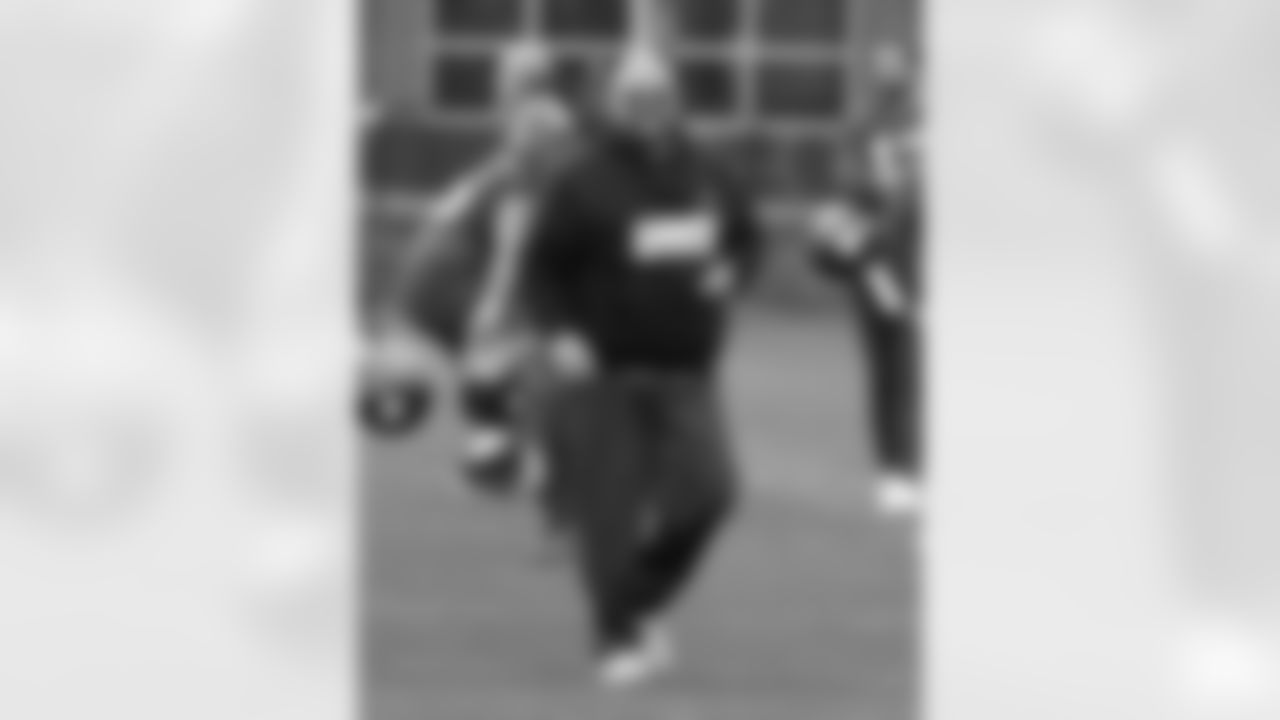
Head Coach Brian Daboll during minicamp practice at Quest Diagnostics Training Center on Tuesday April 21, 2022 in East Rutherford, New Jersey
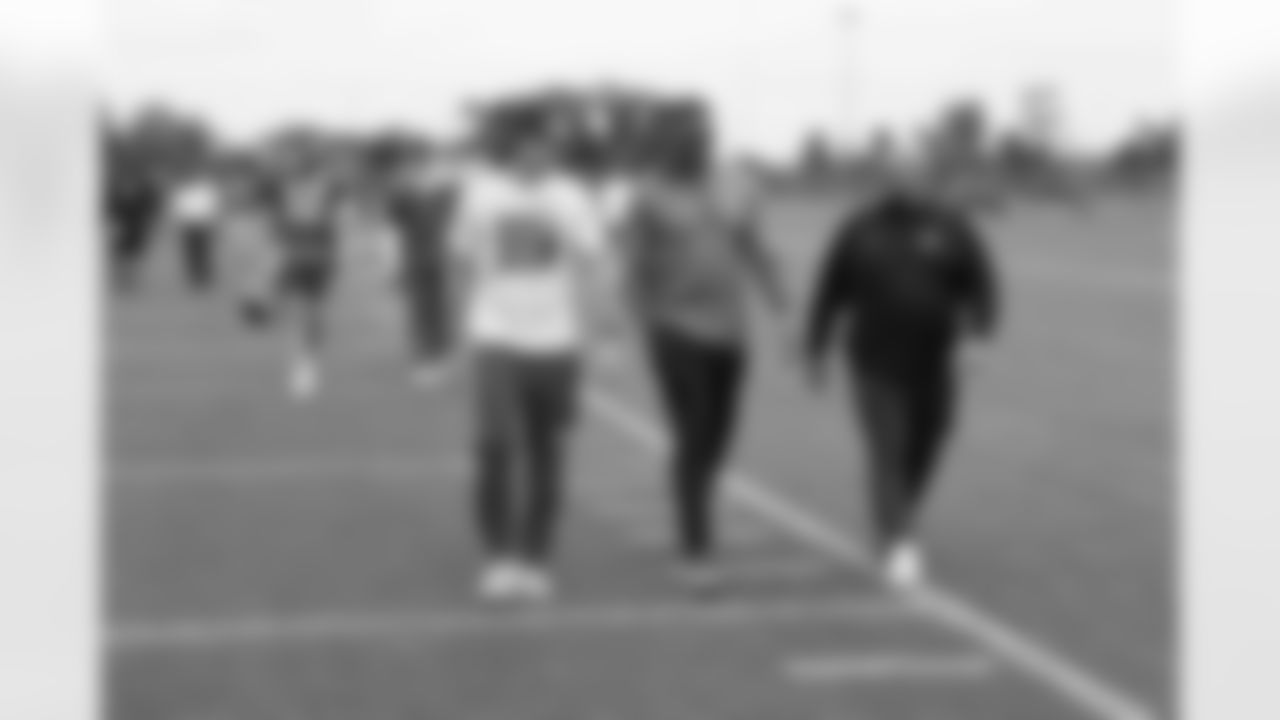
Joe Schoen, Michael Strahan and Brian Daboll talk after organized team activity at Quest Diagnostics Training Center on Thursday June 2, 2022 in East Rutherford, New Jersey
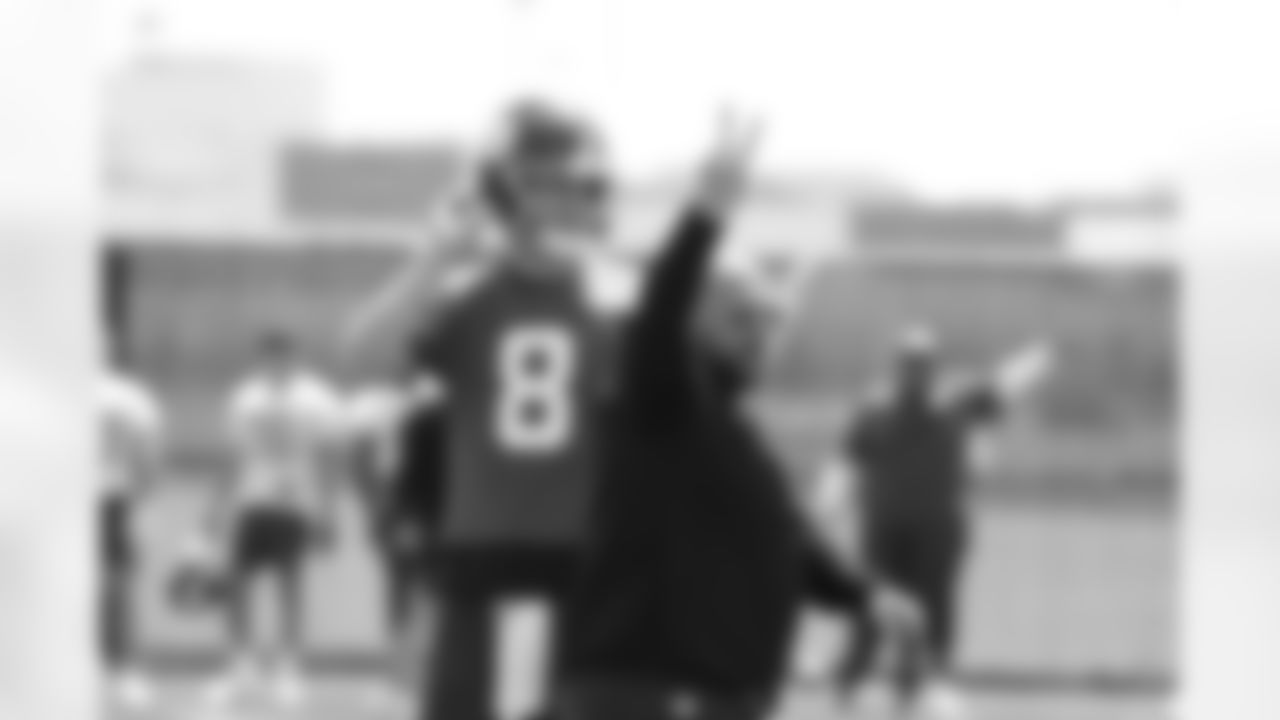
New York Giants head coach Brian Daboll during organized team activity at Quest Diagnostics Training Center on Thursday May 26, 2022 in East Rutherford, New Jersey
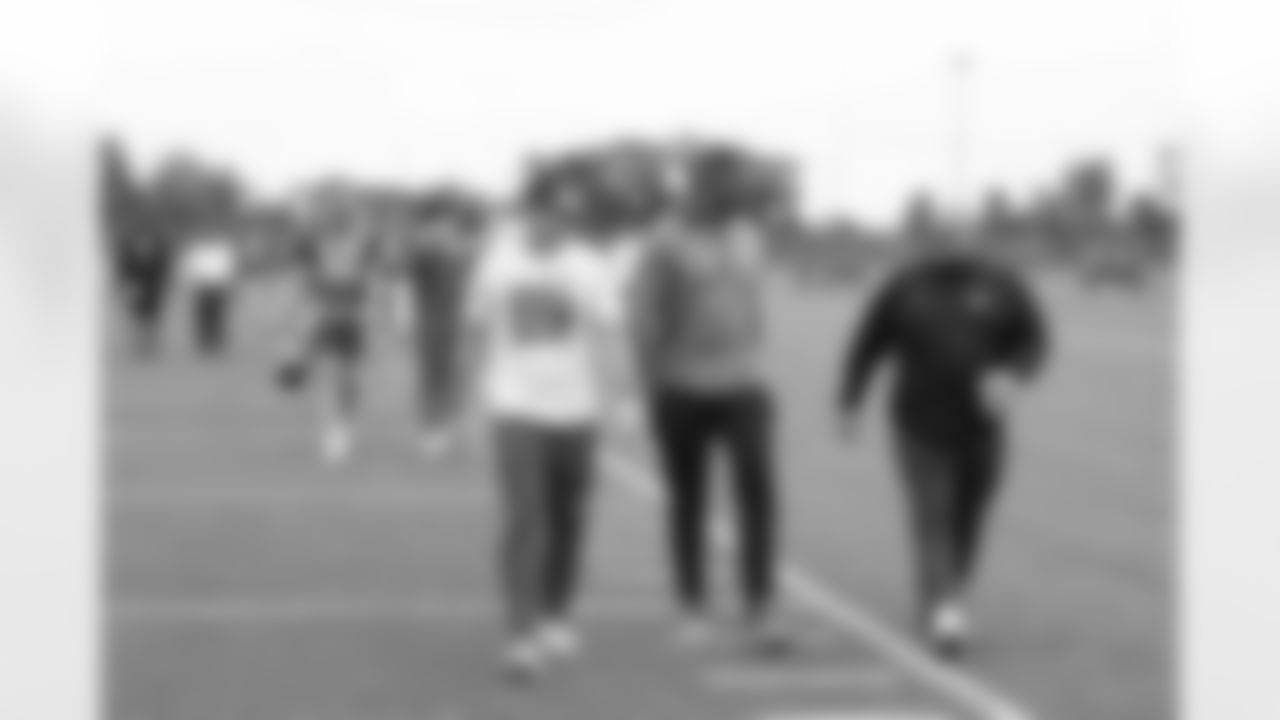
Joe Schoen, Michael Strahan and Brian Daboll talk after organized team activity at Quest Diagnostics Training Center on Thursday June 2, 2022 in East Rutherford, New Jersey
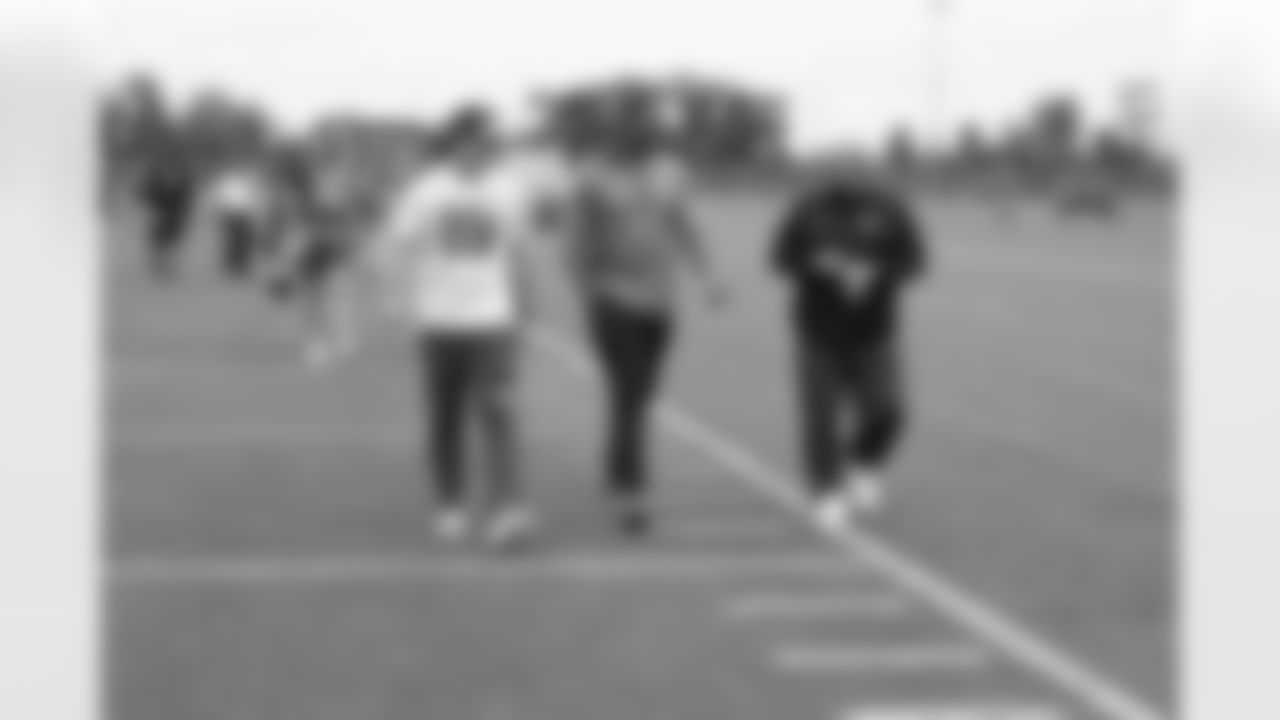
Joe Schoen, Michael Strahan and Brian Daboll talk after organized team activity at Quest Diagnostics Training Center on Thursday June 2, 2022 in East Rutherford, New Jersey

New York Giants head coach Brian Daboll talks to his players during minicamp practice at Quest Diagnostics Training Center on Tuesday April 21, 2022 in East Rutherford, New Jersey

New York Giants Foundation Charity Golf Classic at Canoe Brook Country Club on Monday May 31, 2022 in Summit, New Jersey

New York Giants head coach Brian Daboll during minicamp practice at Quest Diagnostics Training Center on Tuesday April 19, 2022 in East Rutherford, New Jersey
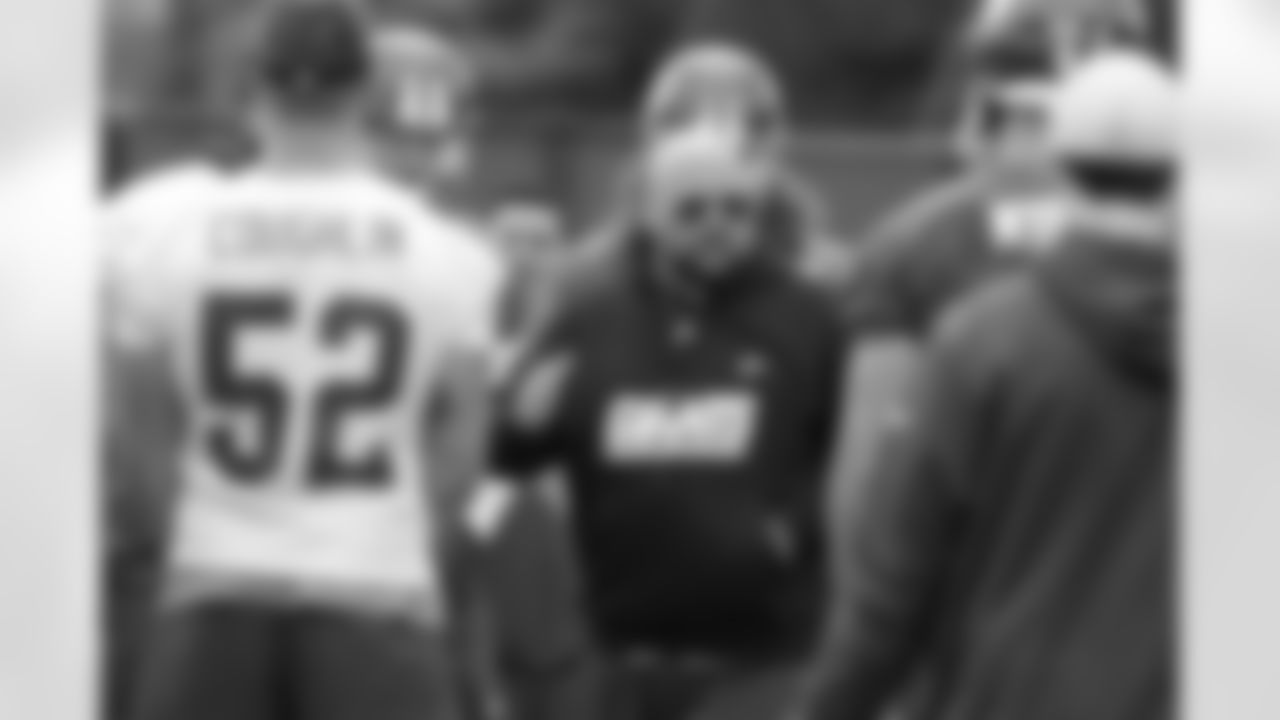
New York Giants head coach Brian Daboll talks to his players during minicamp practice at Quest Diagnostics Training Center on Tuesday April 21, 2022 in East Rutherford, New Jersey
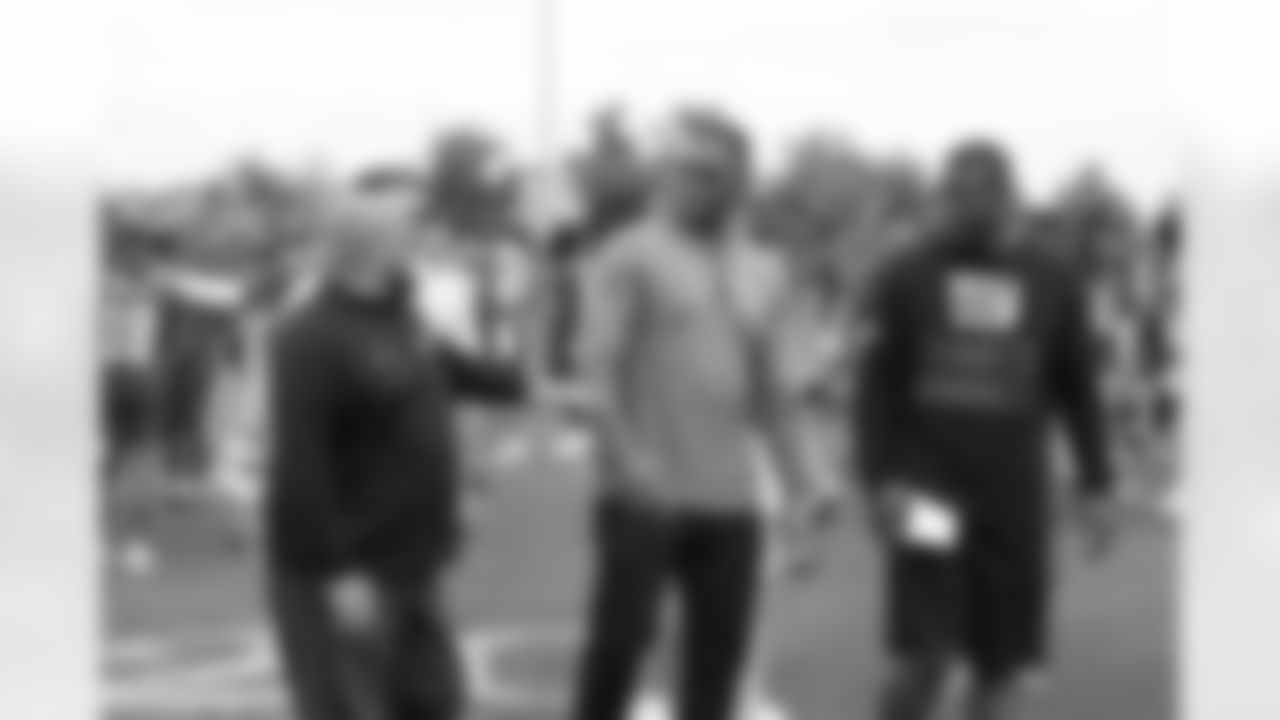
New York Giants head coach Brian Daboll talks with Michael Strahan during organized team activity at Quest Diagnostics Training Center on Thursday June 2, 2022 in East Rutherford, New Jersey

New York Giants head coach Brian Daboll during a pre-season football game against the Cincinnati Bengals on Sunday August 21, 2022 in East Rutherford, New Jersey (Evan Pinkus/NY Giants)
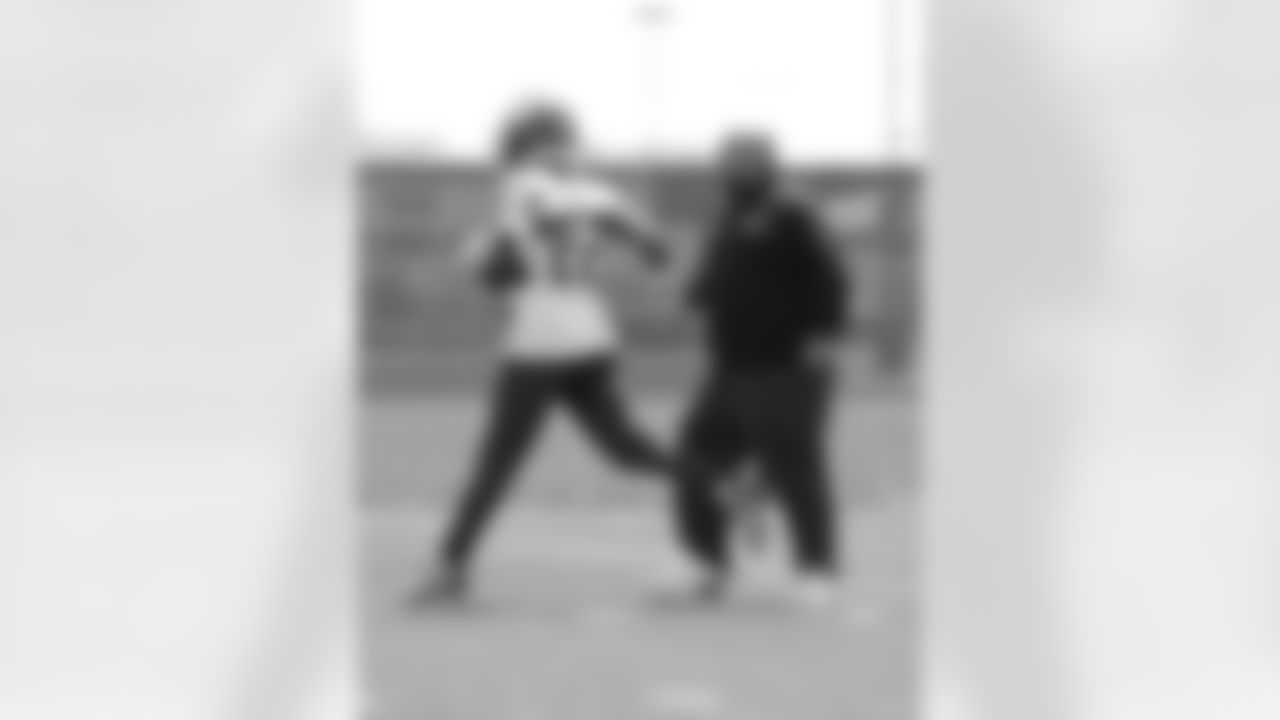
New York Giants cornerback Adoree' Jackson (22) shakes hands with Brian Daboll after returning an interception during organized team activity at Quest Diagnostics Training Center on Thursday May 26, 2022 in East Rutherford, New Jersey
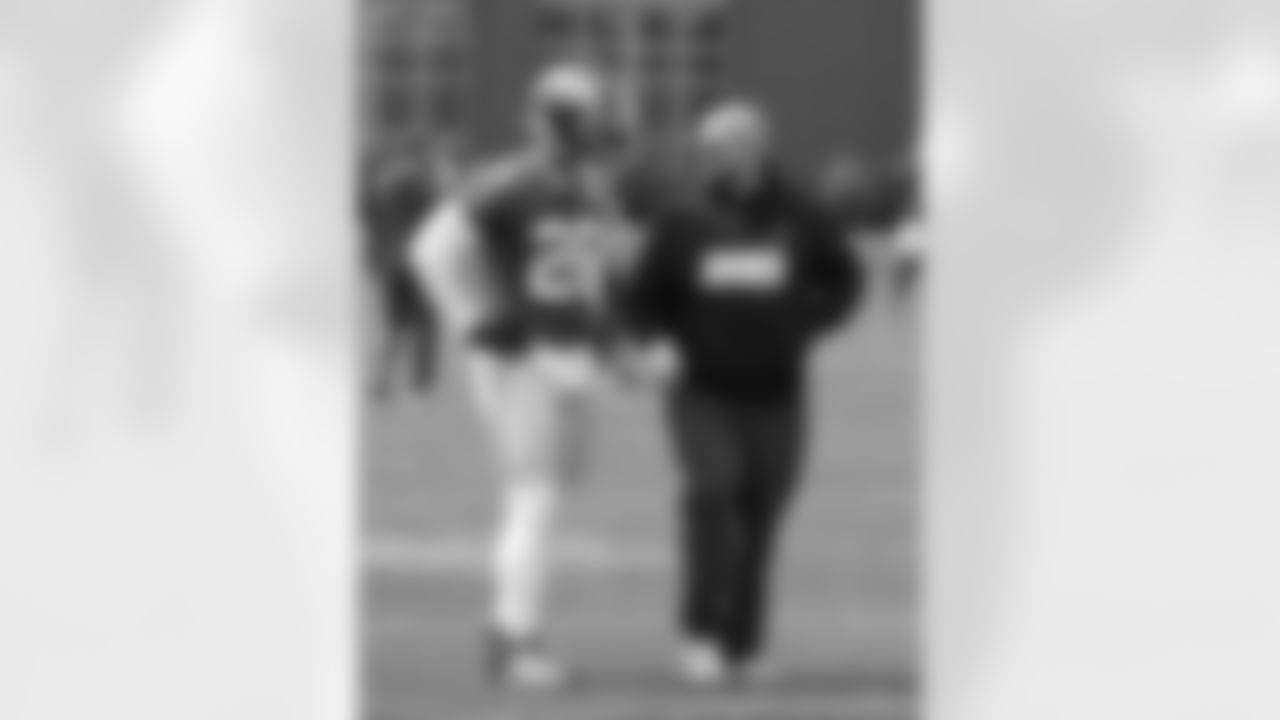
New York Giants head coach Brian Daboll talks with running back Saquon Barkley (26) during minicamp practice at Quest Diagnostics Training Center on Tuesday April 21, 2022 in East Rutherford, New Jersey
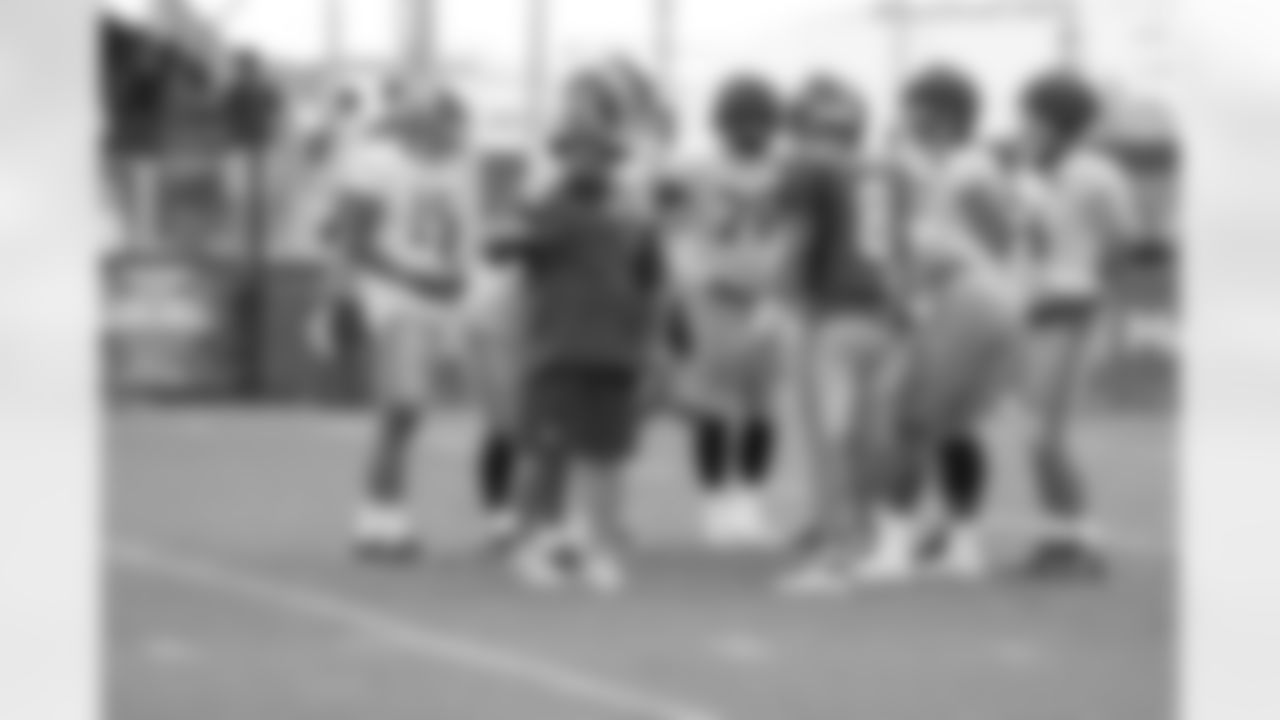
New York Giants head coach Brian Daboll during training camp practice at Quest Diagnostics Training Center on Sunday August 7, 2022 in East Rutherford, New Jersey

New York Giants Evan Neal (70) talks with head coach Brian Daboll during training camp practice at Quest Diagnostics Training Center on Thursday July 28, 2022 in East Rutherford, New Jersey

New York Giants head coach Brian Daboll during a pre-season football game against the Cincinnati Bengals on Sunday August 21, 2022 in East Rutherford, New Jersey (Evan Pinkus/NY Giants)

New York Giants head coach Brian Daboll during a pre-season football game against the Cincinnati Bengals on Sunday August 21, 2022 in East Rutherford, New Jersey (Evan Pinkus/NY Giants)

New York Giants head coach Brian Daboll and Darnay Holmes (30) during training camp practice at Quest Diagnostics Training Center on Wednesday July 27, 2022 in East Rutherford, New Jersey

New York Giants Foundation Charity Golf Classic at Canoe Brook Country Club on Monday May 31, 2022 in Summit, New Jersey

New York Giants Foundation Charity Golf Classic at Canoe Brook Country Club on Monday May 31, 2022 in Summit, New Jersey

New York Giants Foundation Charity Golf Classic at Canoe Brook Country Club on Monday May 31, 2022 in Summit, New Jersey

Brian Daboll

New York Giants head coach Brian Daboll watches from the sideline during a pre-season football game against the Cincinnati Bengals on Sunday August 21, 2022 in East Rutherford, New Jersey (Evan Pinkus/NY Giants)

Brian Daboll

Brian Daboll

Brian Daboll

Cleveland Browns offensive coordinator Brian Daboll congratulates Cleveland Browns wide receiver Josh Cribbs (16) as he comes off the field against the Jacksonville Jaguars in their NFL football game Sunday, Jan. 3, 2010, in Cleveland. (AP Photo/Amy Sancetta)
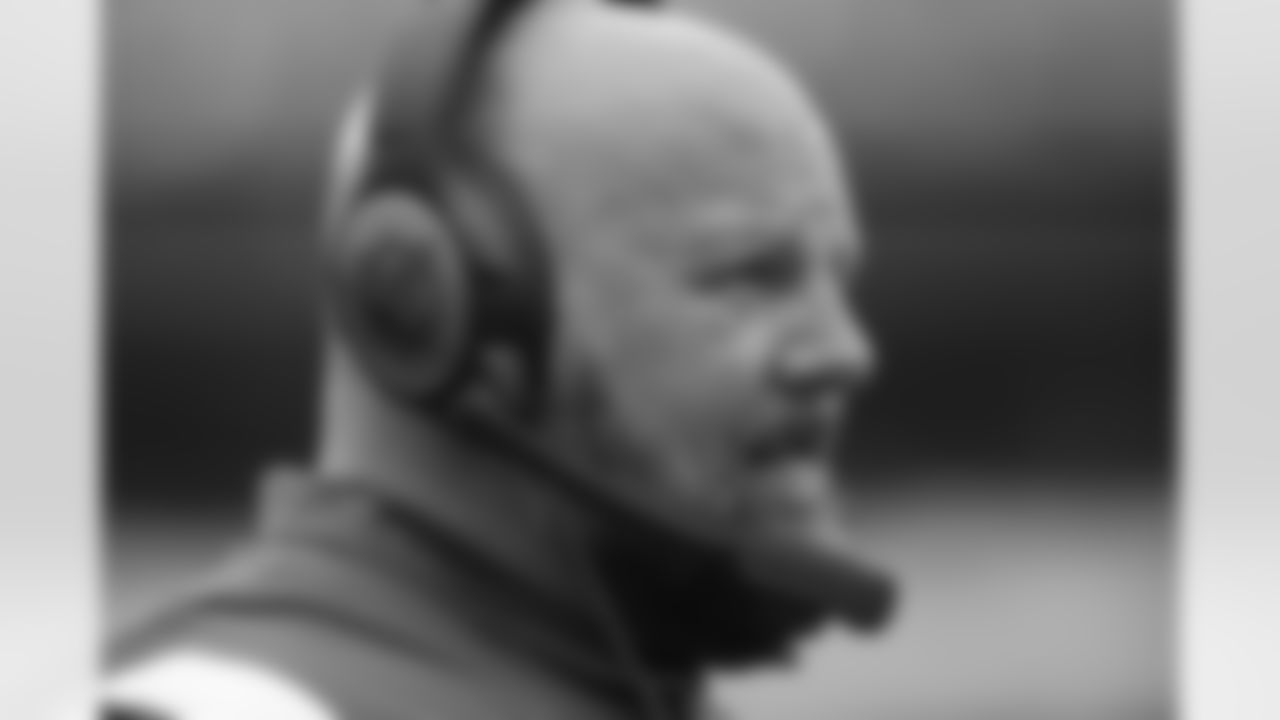
New York Giants head coach Brian Daboll works the sidelines in the first half of a preseason NFL football game against the New York Jets, Sunday, Aug. 28, 2022, in East Rutherford, N.J. (AP Photo/John Munson)
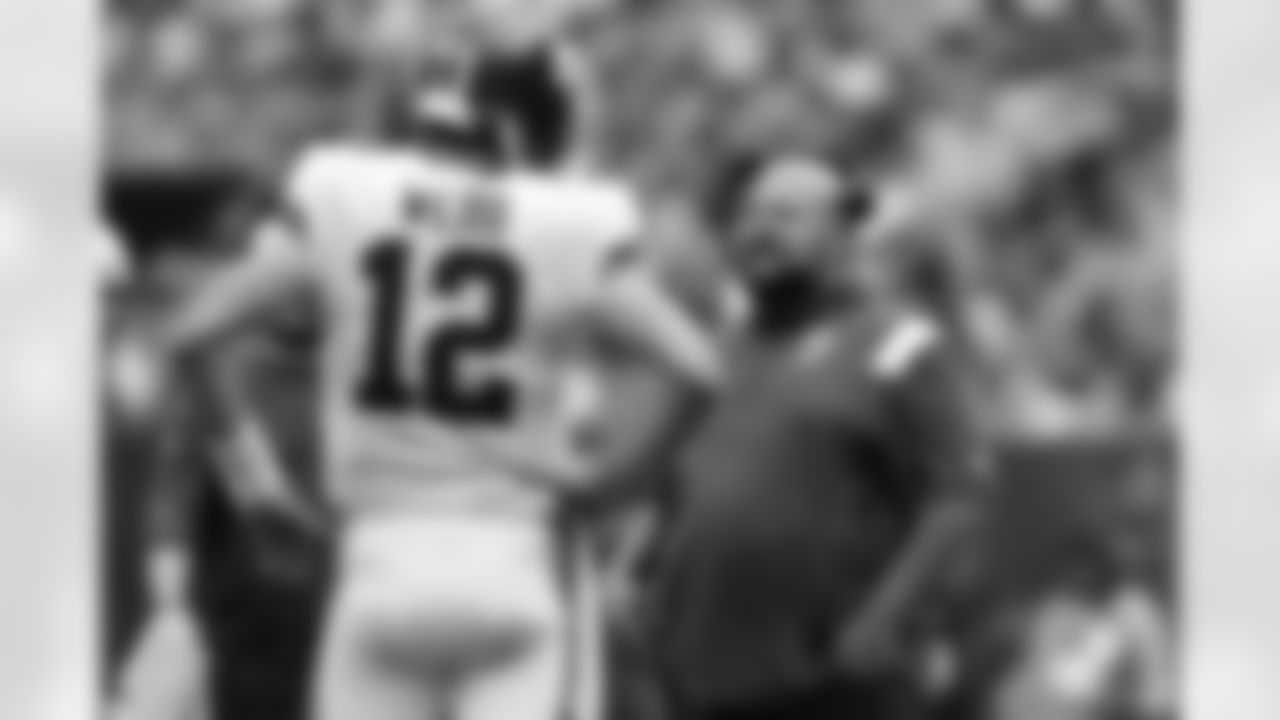
New York Giants head coach Brian Daboll talks with quarterback Davis Webb (12) during an NFL pre-season football game, Sunday, Aug. 27, 2022, in East Rutherford, N.J.. (AP Photo/Rich Schultz)

New York Giants head coach Brian Daboll walks off the field after their 31-27 loss to the New York Jets in an NFL pre-season football game, Sunday, Aug. 27, 2022, in East Rutherford, N.J.. (AP Photo/Rich Schultz)

New York Giants head coach Brian Daboll works the sidelines in the first half of a preseason NFL football game against the New York Jets, Sunday, Aug. 28, 2022, in East Rutherford, N.J. (AP Photo/John Munson)
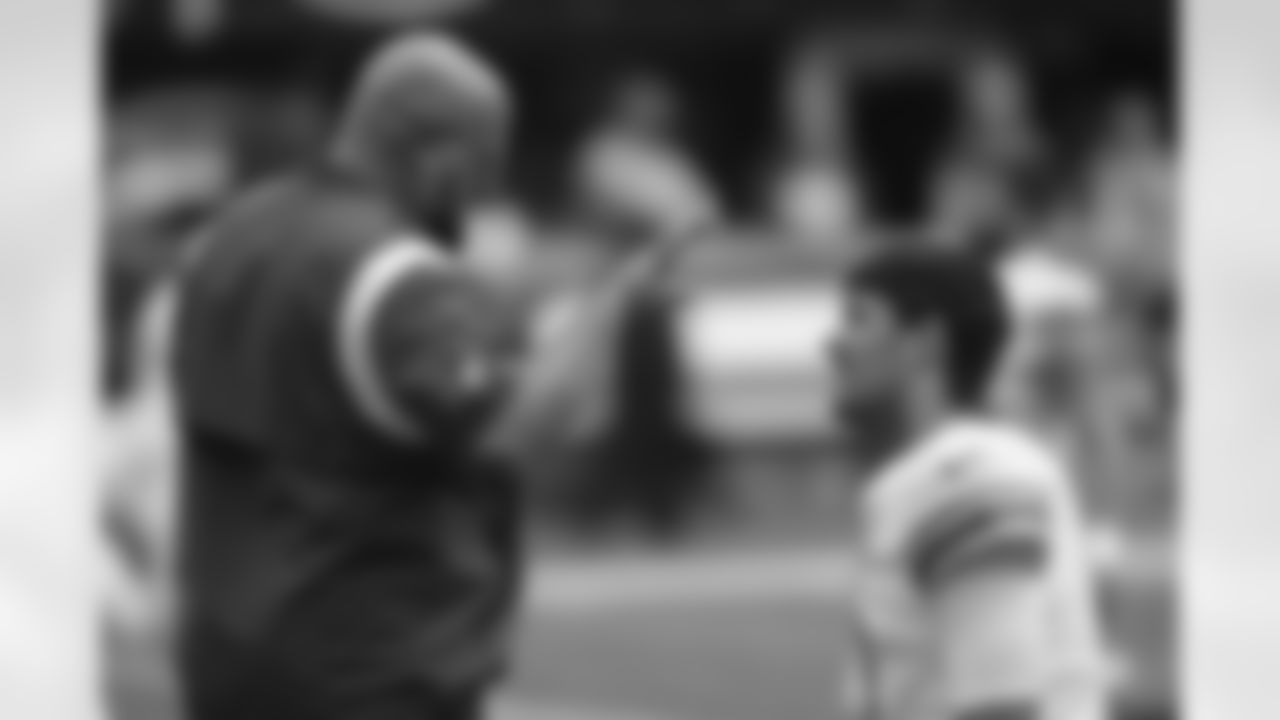
New York Giants head coach Brian Daboll, left, meets with quarterback Daniel Jones, right, during practice before a preseason NFL football game against the New York Jets, Sunday, Aug. 28, 2022, in East Rutherford, N.J. (AP Photo/John Munson)
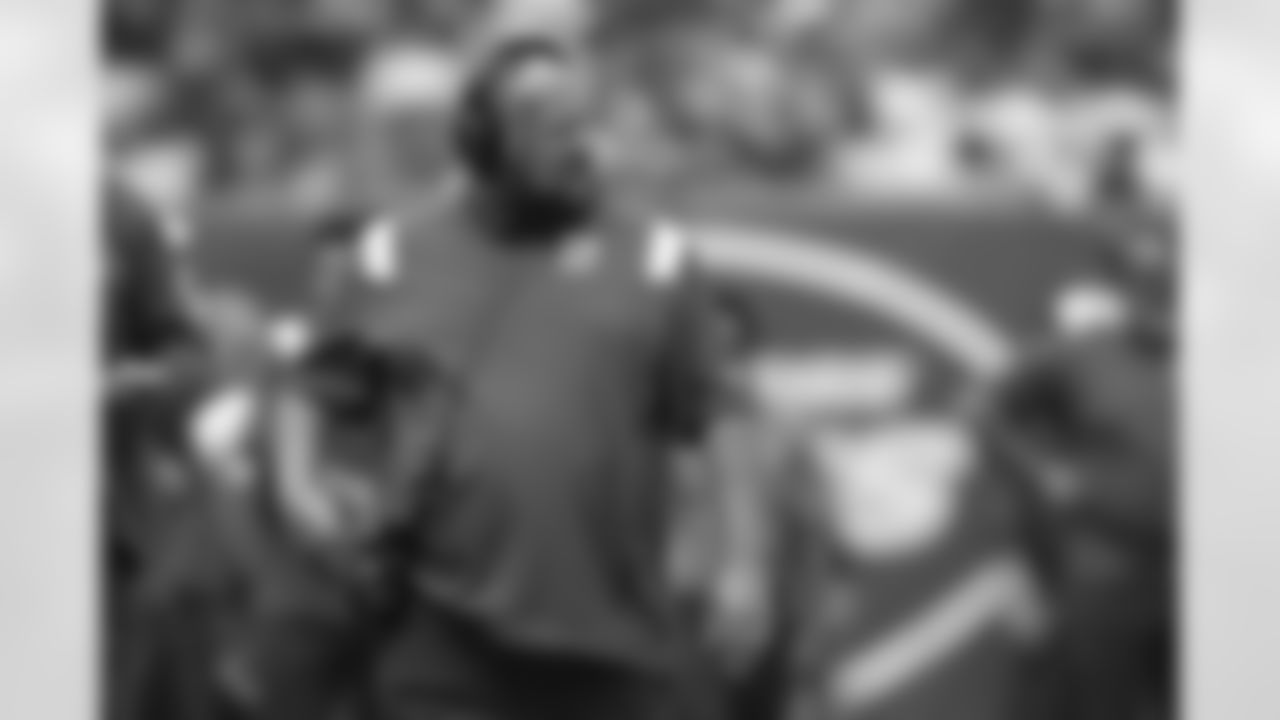
New York Giants head coach Brian Daboll works the sidelines in the first half of a preseason NFL football game against the New York Jets, Sunday, Aug. 28, 2022, in East Rutherford, N.J. (AP Photo/John Munson)

New York Giants quarterback Tyrod Taylor (2) runs off the field alongside head coach Brian Daboll, center right, after taking a hard hit from New York Jets defensive end Micheal Clemons (72) in the first half of a preseason NFL football game, Sunday, Aug. 28, 2022, in East Rutherford, N.J. (AP Photo/Julia Nikhinson)

Cincinnati Bengals head coach Zac Taylor, right, shakes hands with New York Giants head coach Brian Daboll after an NFL football game Sunday, Aug. 21, 2022, in East Rutherford, N.J. The Giants won 25-22. (AP Photo/John Munson)

New York Giants head coach Brian Daboll works the sidelines during practice before a preseason NFL football game against the New York Jets, Sunday, Aug. 28, 2022, in East Rutherford, N.J. (AP Photo/John Munson)
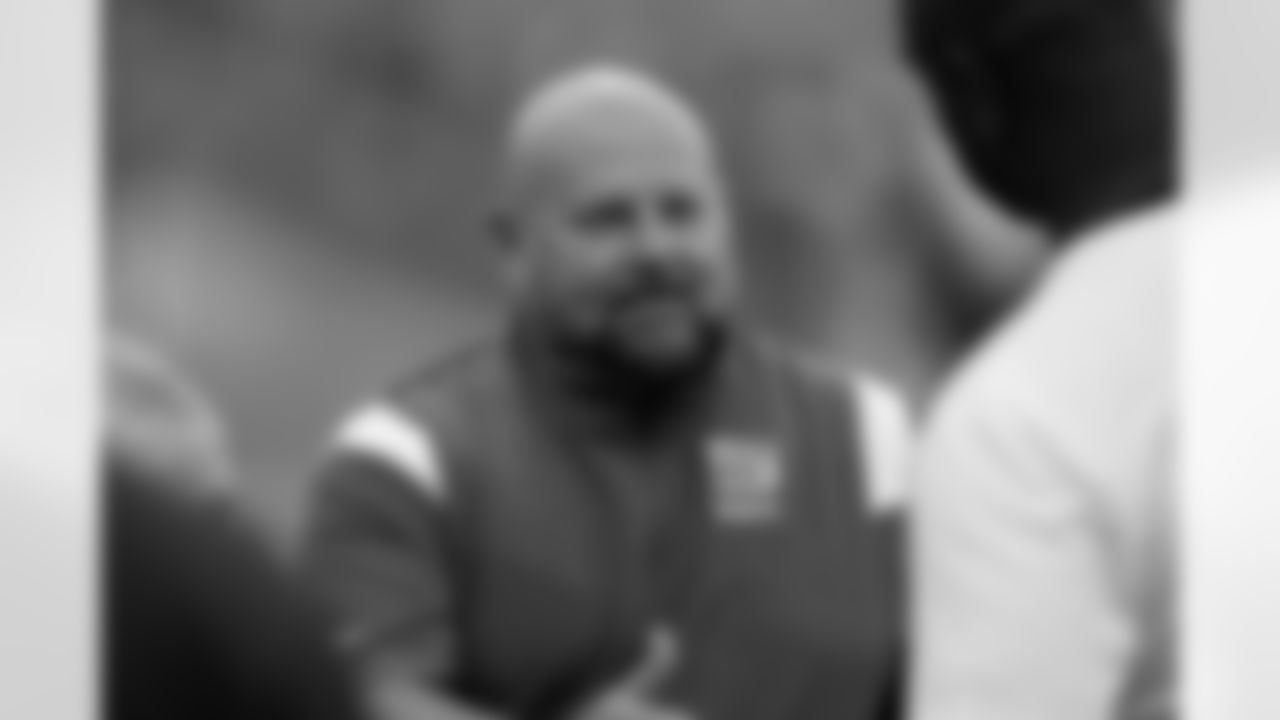
New York Giants head coach Brian Daboll greets people on the field prior to an NFL football game between against the New England Patriots, Thursday, Aug. 11, 2022, in Foxborough, Mass. (AP Photo/Charles Krupa)
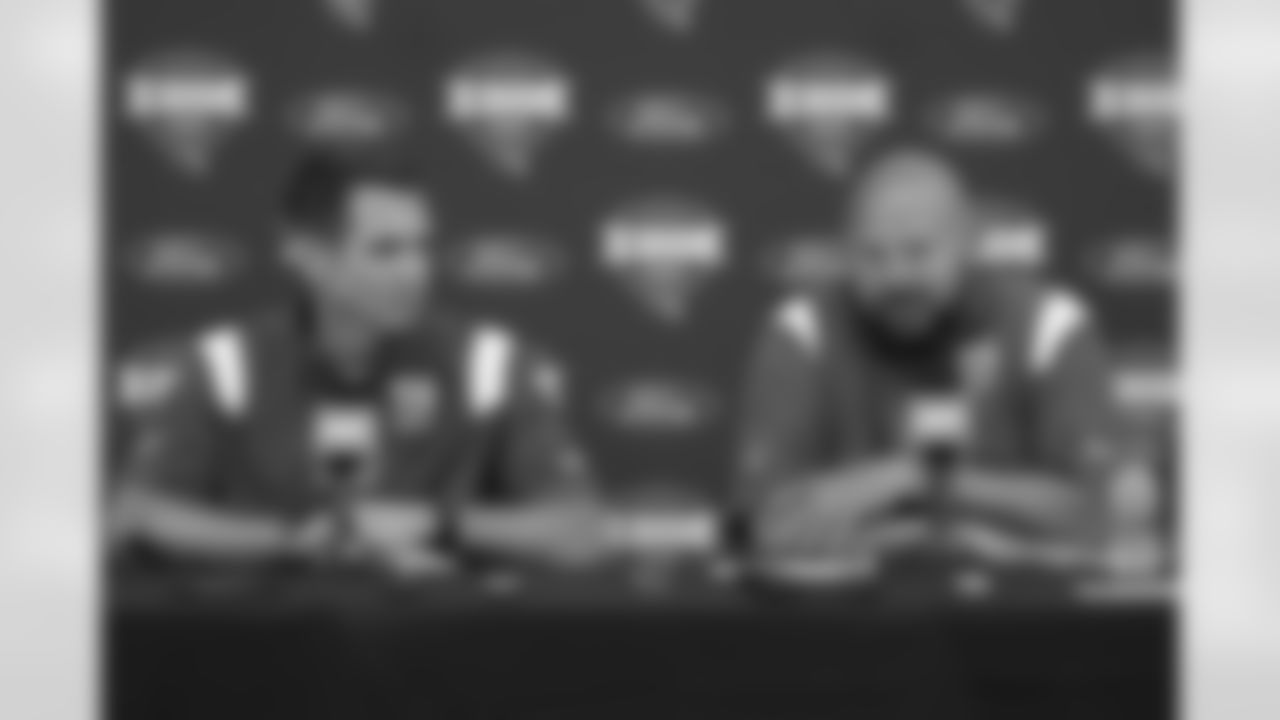
FILE - New York Giants general manager Joe Schoen, left, and head coach Brian Daboll, right, attend a news conference before training camp at the NFL football team's practice facility July 27, 2022, in East Rutherford, N.J. For the third time since 2018, the Giants are rebuilding again. Schoen has replaced Dave Gettleman as general manager and Daboll was selected to replace Joe Judge as coach. (AP Photo/John Minchillo, File)
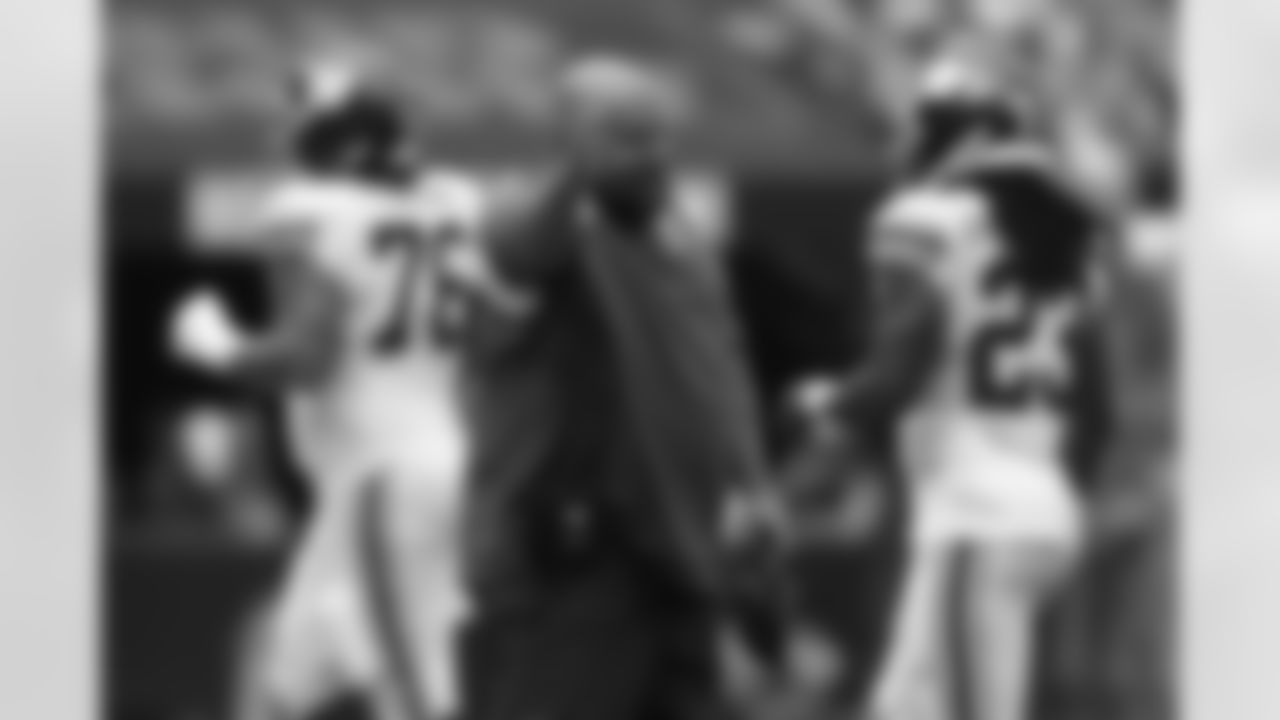
New York Giants head coach Brian Daboll works the sidelines in the first half of a preseason NFL football game against the New York Jets, Sunday, Aug. 28, 2022, in East Rutherford, N.J. (AP Photo/John Munson)
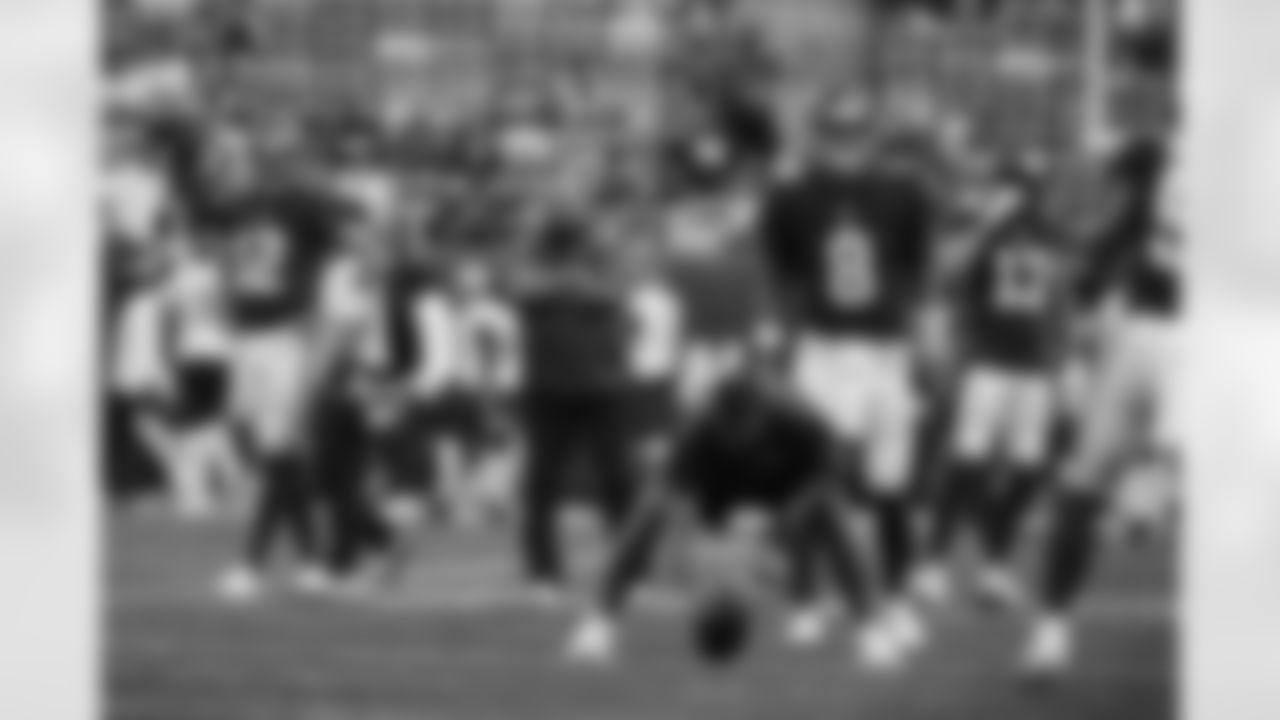
New York Giants head coach Brian Daboll watches his team warm up before a preseason NFL football game against the Cincinnati Bengals Sunday, Aug. 21, 2022, in East Rutherford, N.J. (AP Photo/John Munson)

New York Giants head coach Brian Daboll talks to reporters before a practice at the NFL football team's training facility in East Rutherford, N.J., Thursday, May 26, 2022. (AP Photo/Seth Wenig)

New York Giants head coach Brian Daboll on the sideline during the second half of an NFL football game against the New England Patriots, Thursday, Aug. 11, 2022, in Foxborough, Mass. (AP Photo/Greg M. Cooper)

New York Giants quarterback Tyrod Taylor (2) talk with head coach Brian Daboll during the first half of an NFL football game against the New England Patriots, Thursday, Aug. 11, 2022, in Foxborough, Mass. (AP Photo/Greg M. Cooper)
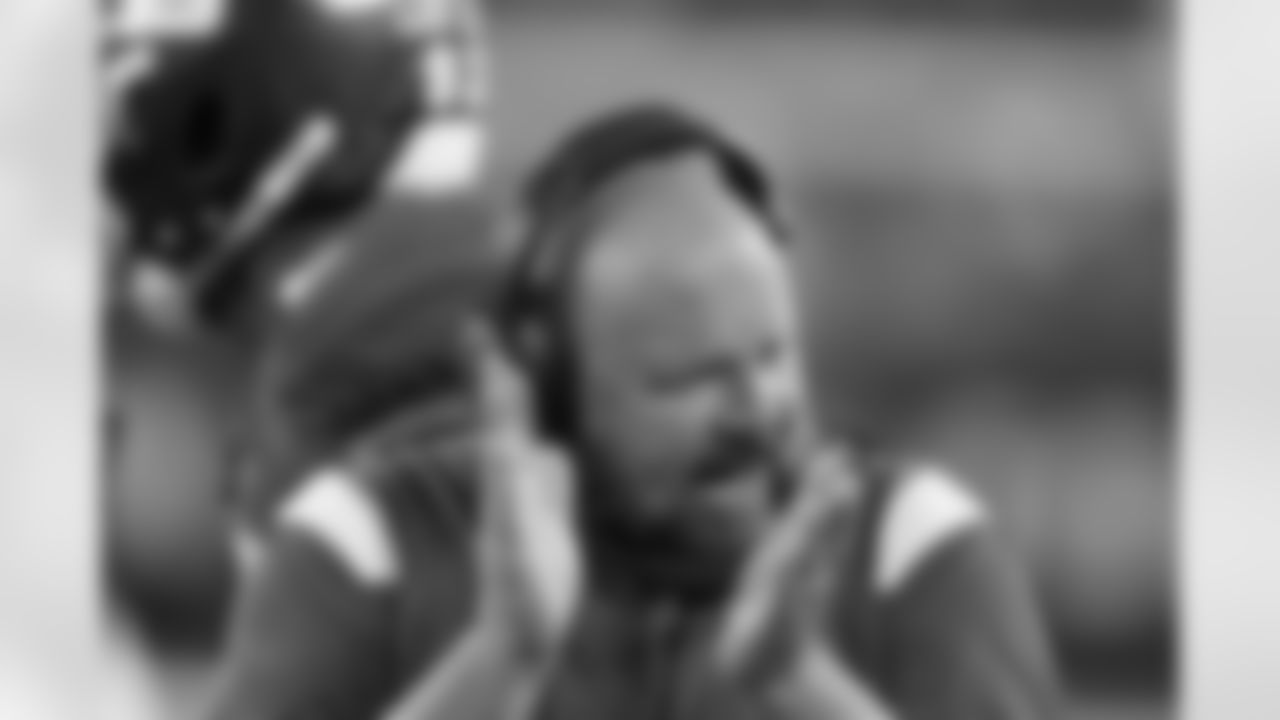
New York Giants head coach Brian Daboll calls out to his players during the first half of a preseason NFL football game against the Cincinnati Bengals Sunday, Aug. 21, 2022, in East Rutherford, N.J. (AP Photo/John Minchillo)

New York Giants head coach Brian Daboll talks to tight end Daniel Bellinger during drills at the NFL football team's rookie minicamp in East Rutherford, N.J., Friday, May 13, 2022. (AP Photo/Noah K. Murray)

New York Giants head coach Brian Daboll, center, speaks with his first string defensive lineman during training camp at the NFL football team's practice facility, Saturday, July 30, 2022, in East Rutherford, N.J. (AP Photo/John Minchillo)
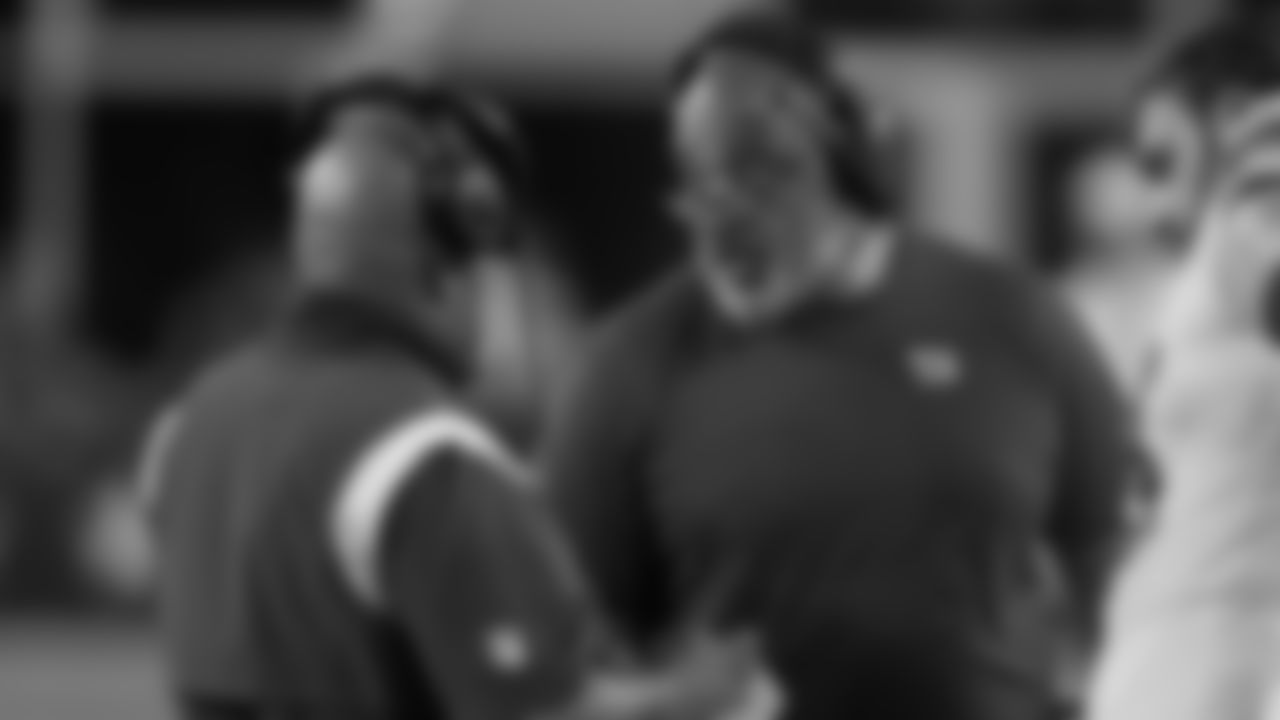
Giants offensive line coach Bobby Johnson talks with head coach Brian Daboll, left, during a preseason NFL football game, Thursday, Aug. 11, 2022, in Foxborough, Mass. (AP Photo/Charles Krupa)

New York Giants head coach Brian Daboll speaks with reporters during a coaches press availability at the NFL owner's meeting, Tuesday, March 29, 2022, at The Breakers resort in Palm Beach, Fla. (AP Photo/Rebecca Blackwell)
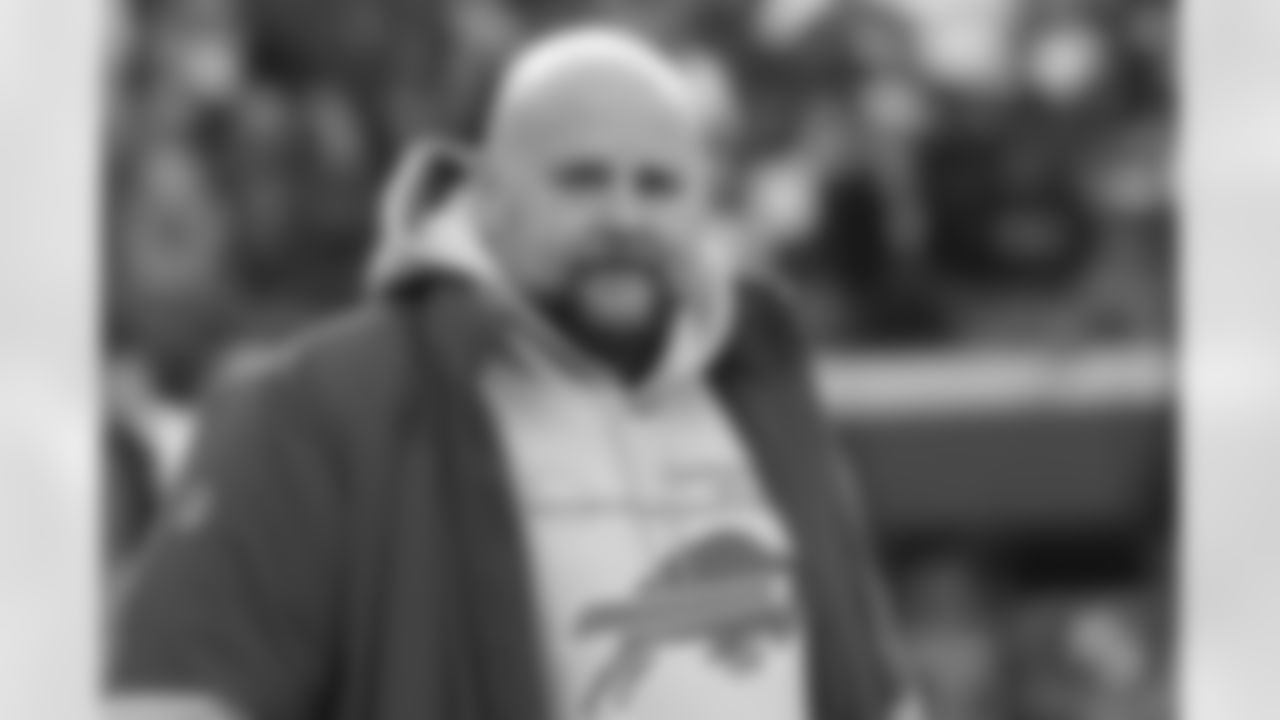
FILE - Buffalo Bills offensive coordinator Brian Daboll attends warmups before an NFL divisional playoff football game against the Kansas City Chiefs, Jan. 23, 2022, in Kansas City, Mo. The New York Giants hired Daboll as their head coach Friday, Jan. 28, 2022. (AP Photo/Reed Hoffmann, File)

New York Giants head coach Brian Daboll answers questions from media at the NFL football team's rookie minicamp in East Rutherford, N.J., Friday, May 13, 2022. (AP Photo/Noah K. Murray)

New York Giants head coach Brian Daboll waits to take the stage to speak at an introductory news conference at the NFL football team's training facility, Monday, Jan. 31, 2022, in East Rutherford, N.J. (AP Photo/John Minchillo)

New York Giants head coach Brian Daboll introduces Osi Umenyiora during training camp practice at Quest Diagnostics Training Center on Thursday August 18, 2022 in East Rutherford, New Jersey

New York Giants head coach Brian Daboll during a pre-season football game against the Cincinnati Bengals on Sunday August 21, 2022 in East Rutherford, New Jersey (Evan Pinkus/NY Giants)

New York Giants head coach Brian Daboll during a football game against the Baltimore Ravens on Sunday October 16, 2022 in East Rutherford, New Jersey (Evan Pinkus/NY Giants)

New York Giants head coach Brian Daboll at practice in Ware, England before a game against the Green Bay Packers. Credit: Evan Pinkus/New York Giants

New York Giants head coach Brian Daboll talks with quarterback Daniel Jones (8) during a pre-season football game against the Cincinnati Bengals on Sunday August 21, 2022 in East Rutherford, New Jersey (Evan Pinkus/NY Giants)


New York Giants head coach Brian Daboll during a football game against the Chicago Bears on Sunday October 2, 2022 in East Rutherford, New Jersey (Evan Pinkus/NY Giants)
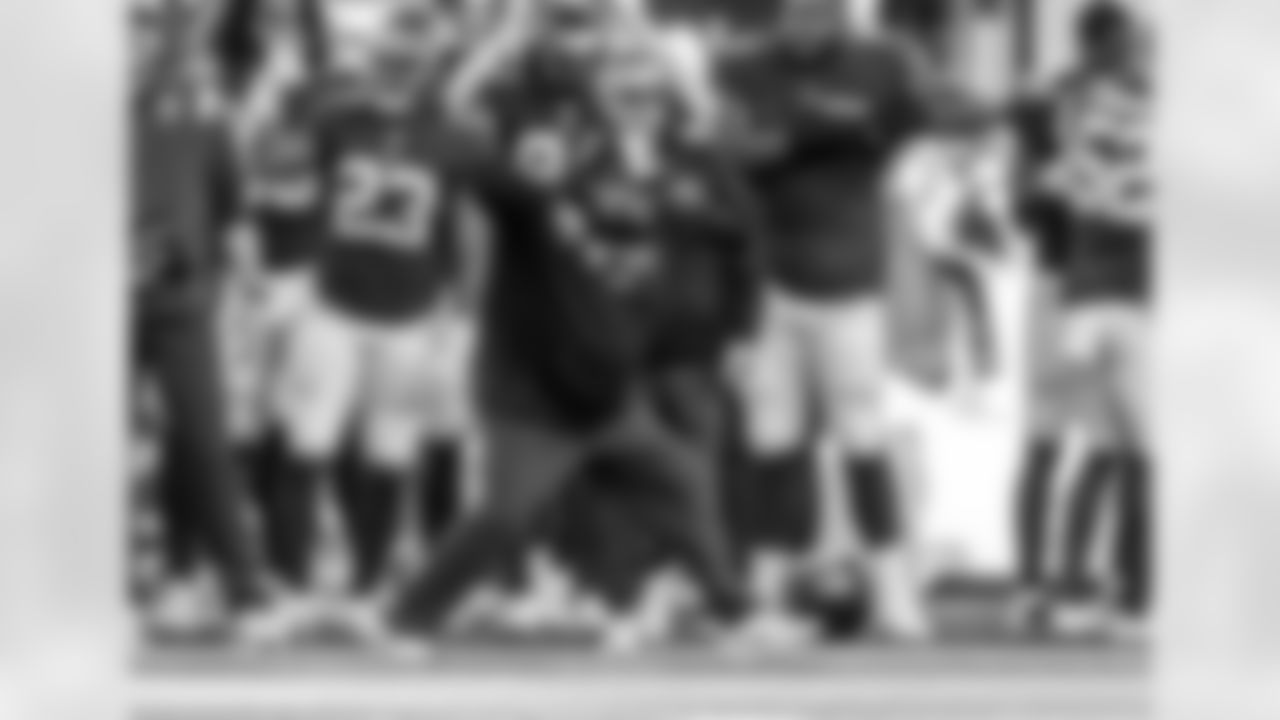
The New York Giants take on the Baltimore Ravens at Metlife Stadium in East Rutherford, NJ on Sunday October 16, 2022. (Ben Solomon/New York Giants)

New York Giants head coach Brian Daboll talks with Osi Umenyiora during training camp practice at Quest Diagnostics Training Center on Thursday August 18, 2022 in East Rutherford, New Jersey

New York Giants head coach Brian Daboll at practice in Ware, England before a game against the Green Bay Packers. Credit: Evan Pinkus/New York Giants
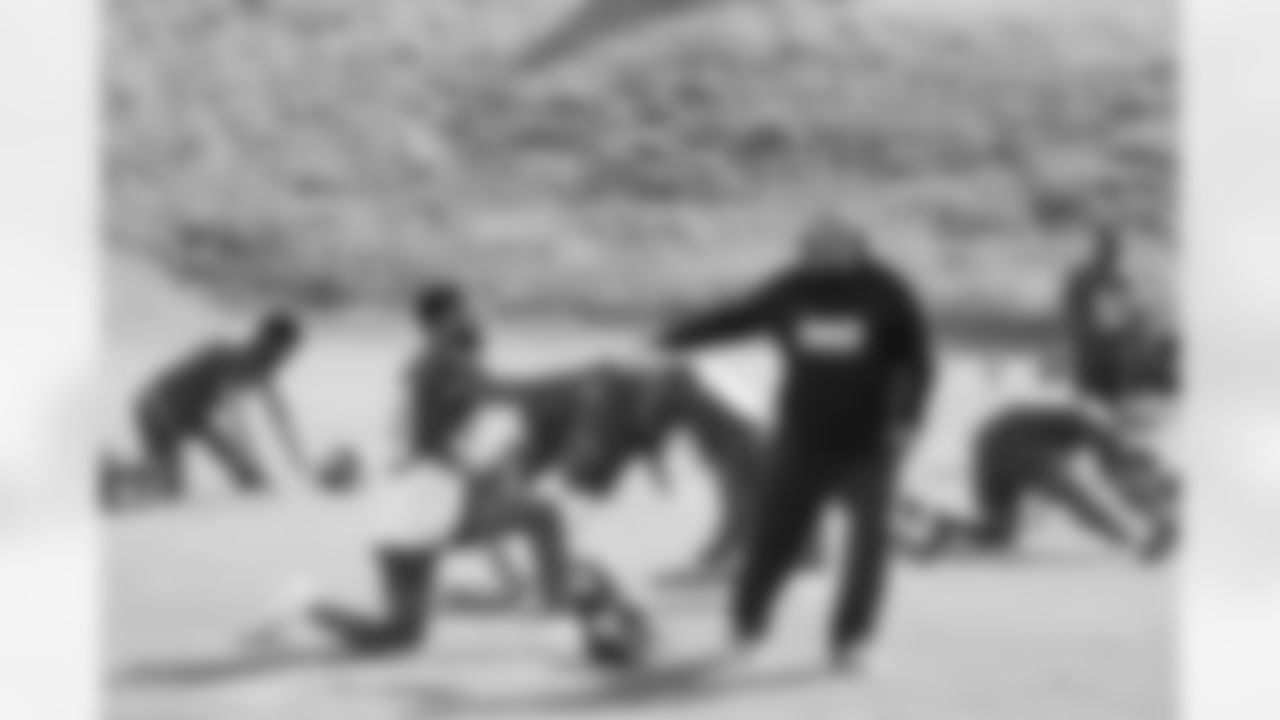
New York Giants head coach Brian Daboll shakes hands with New York Giants safety Julian Love (20) at practice in Ware, England before a game against the Green Bay Packers. Credit: Evan Pinkus/New York Giants
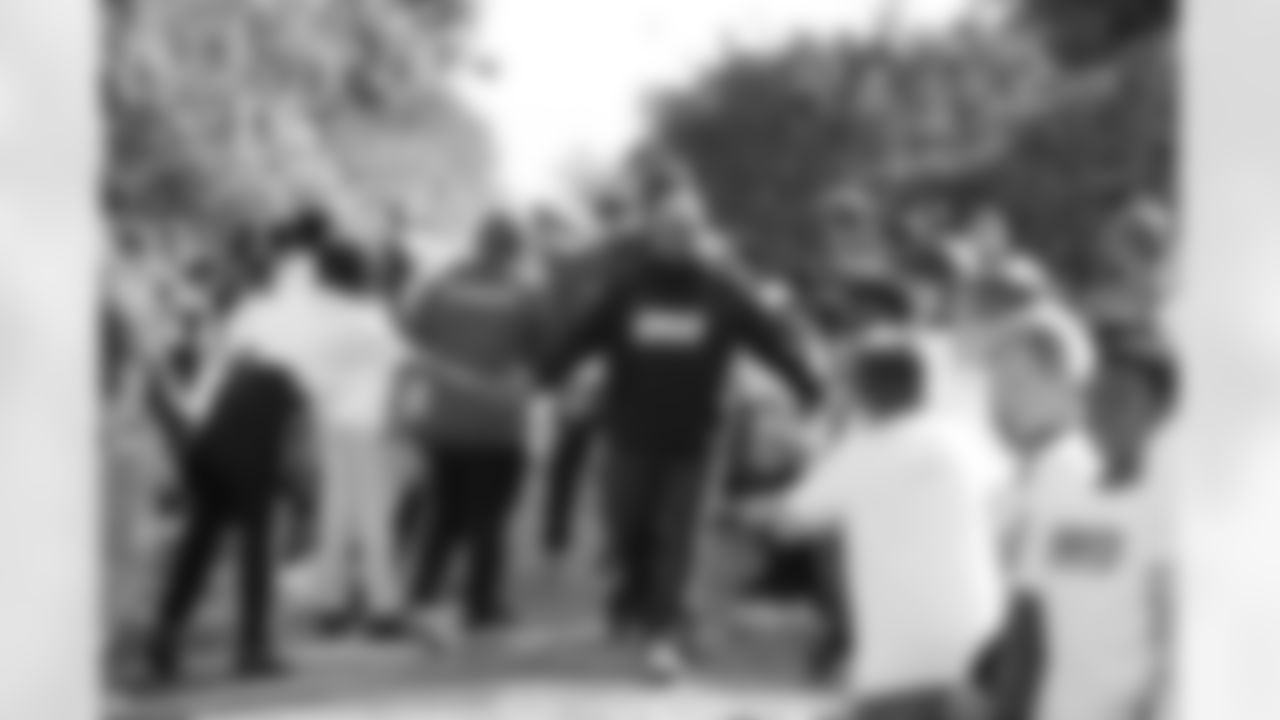
New York Giants head coach Brian Daboll walks to practice in England before a game against the Green Bay Packers Credit: Evan Pinkus/ New York Giants

New York Giants head coach Brian Daboll fist bumps Shea Tierney before a week 1 football game against the Tennessee Titans on Sunday September 11, 2022 in Nashville, Tennesse (Evan Pinkus/NY Giants)

New York Giants head coach Brian Daboll during training camp practice at Quest Diagnostics Training Center on Wednesday August 24, 2022 in East Rutherford, New Jersey
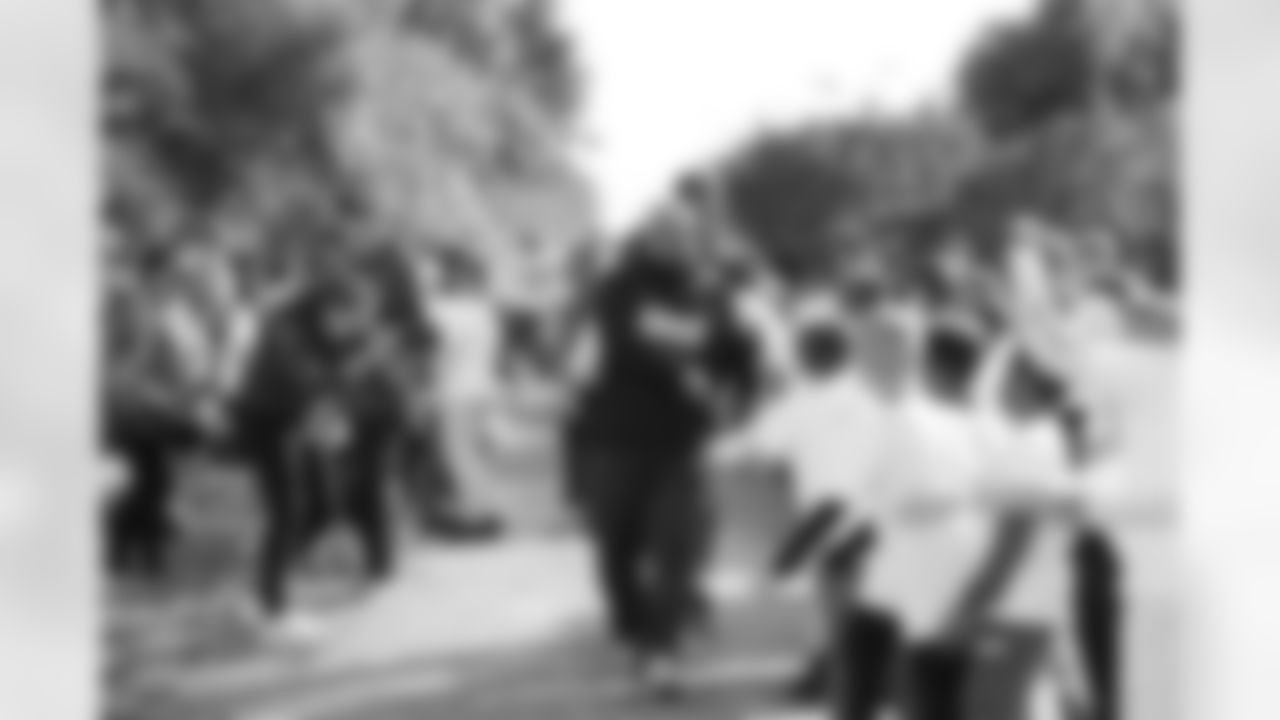
New York Giants head coach Brian Daboll walks to practice in England before a game against the Green Bay Packers Credit: Evan Pinkus/ New York Giants

New York Giants head coach Brian Daboll during a pre-season football game against the Cincinnati Bengals on Sunday August 21, 2022 in East Rutherford, New Jersey (Evan Pinkus/NY Giants)

The New York Giants take on the Baltimore Ravens at Metlife Stadium in East Rutherford, NJ on Sunday October 16, 2022. (Ben Solomon/New York Giants)

New York Giants linebacker Jihad Ward (55) and safety Julian Love (20) dump Gatorade on New York Giants head coach Brian Daboll during a NFL football game against the against the Indianapolis Colts, Sunday January 1, 2023 in East Rutherford, NJ (Evan Pinkus\New York Giants )

Brian Daboll Head Coach, Leonard Williams (99)

Brian Daboll Head Coach

Head Coach Brian Daboll Head Coach

Brian Daboll Head Coach

Brian Daboll Head Coach

HC Brian Daboll

Brian Daboll Head Coach, Daniel Jones (8)

Brian Daboll Head Coach, Daniel Jones (8)
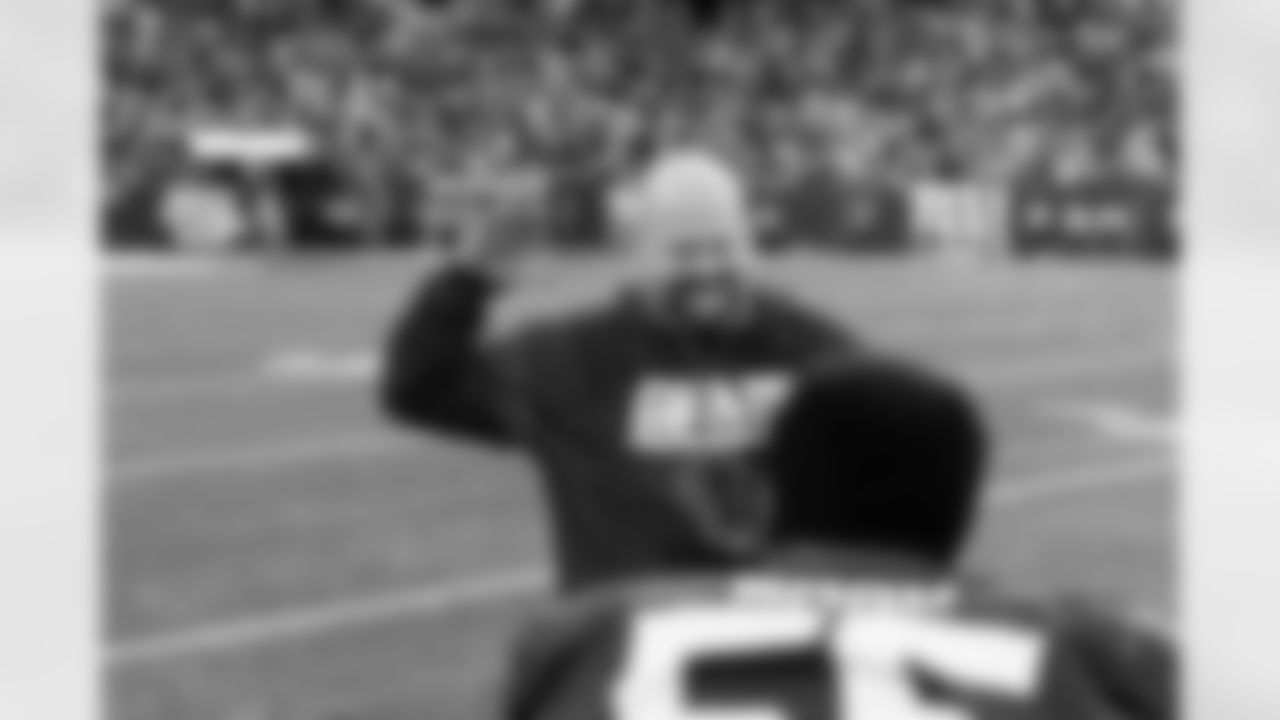
Brian Daboll Head Coach
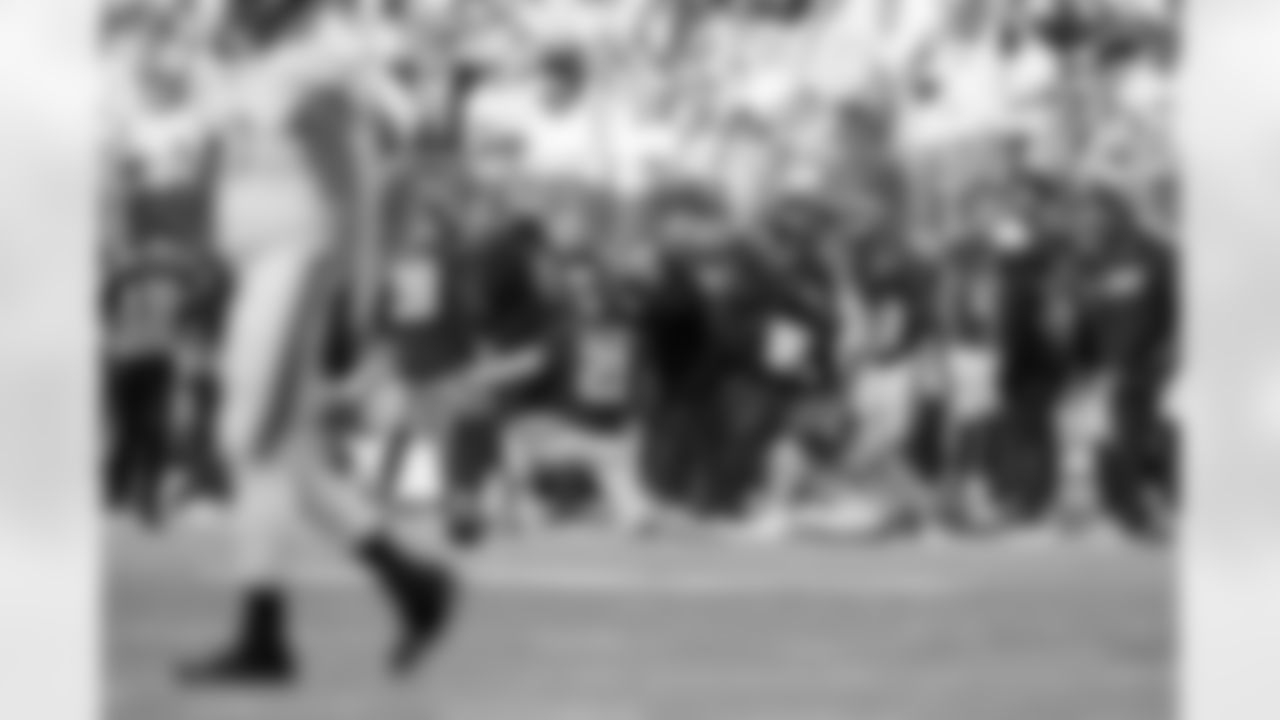
Landon Collins (21), Brian Daboll Head Coach

Brian Daboll Head Coach

New York Giants head coach Brian Daboll after a NFL football game against the Indianapolis Colts, Sunday January 1, 2023 in East Rutherford, NJ (Evan Pinkus\New York Giants )

Don Martindale Defensive Coordinator, Brian Daboll Head Coach

New York Giants head coach Brian Daboll talks to his team following a NFL football game against the Indianapolis Colts, Sunday January 1, 2023 in East Rutherford, NJ (Evan Pinkus\New York Giants )

New York Giants head coach Brian Daboll hugs General Manager Joe Schoen following a NFL football game against the against the Indianapolis Colts, Sunday January 1, 2023 in East Rutherford, NJ (Evan Pinkus\New York Giants )

New York Giants head coach Brian Daboll during a NFL football game against the Philadelphia Eagles, Sunday January 8, 2023 in Philadelphia, Pennsylvania (Evan Pinkus\New York Giants )

New York Giants head coach Brian Daboll after a NFL football game against the Indianapolis Colts, Sunday January 1, 2023 in East Rutherford, NJ (Evan Pinkus\New York Giants )

New York Giants head coach Brian Daboll after beating the Indianapolis Colts, Sunday January 1, 2023 in East Rutherford, NJ (Evan Pinkus\New York Giants )
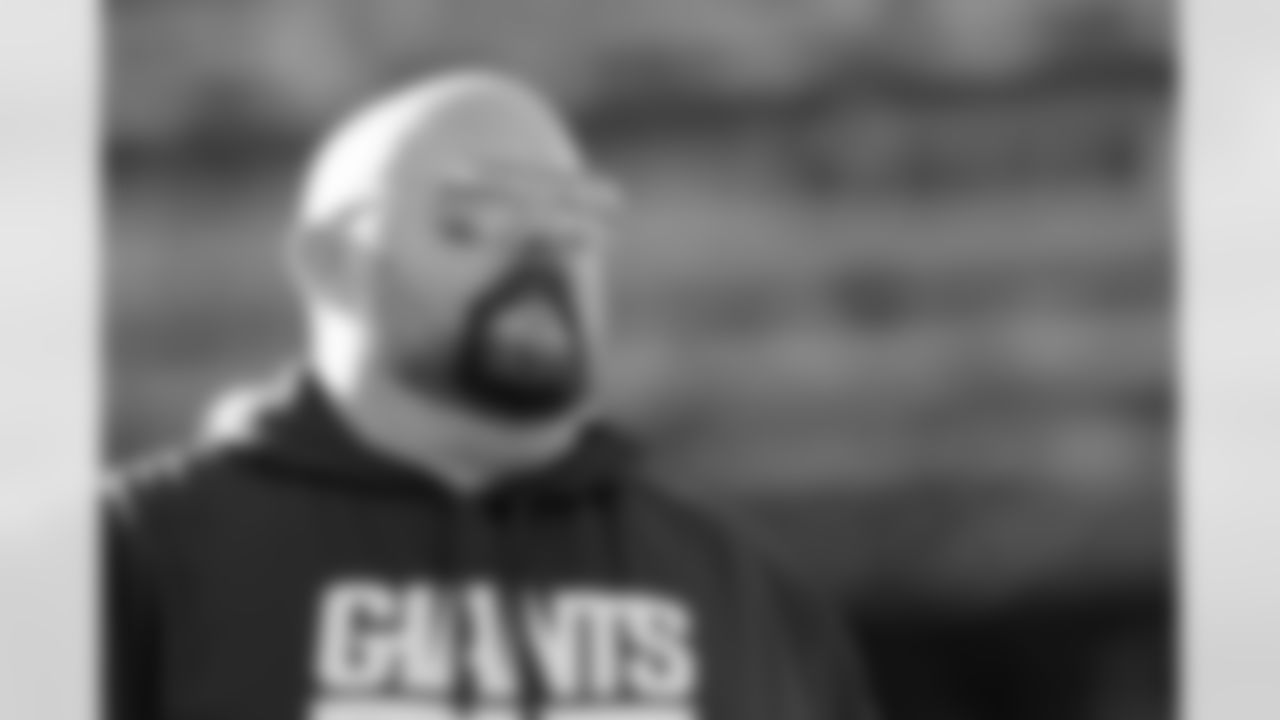
Brian Daboll Head Coach

New York Giants head coach Brian Daboll hugs New York Giants linebacker Jihad Ward (55) during a NFL football game against the against the Indianapolis Colts, Sunday January 1, 2023 in East Rutherford, NJ (Evan Pinkus\New York Giants )

New York Giants head coach Brian Daboll hugs New York Giants safety Julian Love (20) during a NFL football game against the against the Indianapolis Colts, Sunday January 1, 2023 in East Rutherford, NJ (Evan Pinkus\New York Giants )

Brian Daboll Head Coach, Jeff Saturday

New York Giants head coach Brian Daboll before a NFL football game against the Philadelphia Eagles, Sunday January 8, 2023 in Philadelphia, Pennsylvania (Evan Pinkus\New York Giants )

New York Giants linebacker Jihad Ward (55) and safety Julian Love (20) dump Gatorade on New York Giants head coach Brian Daboll during a NFL football game against the against the Indianapolis Colts, Sunday January 1, 2023 in East Rutherford, NJ (Evan Pinkus\New York Giants )

New York Giants head coach Brian Daboll talks to his team in the locker room following a NFL football game against the Indianapolis Colts, Sunday January 1, 2023 in East Rutherford, NJ (Evan Pinkus\New York Giants )

New York Giants head coach Brian Daboll during a NFL wild card playoff game against the Minnesota Vikings, Sunday January 15, 2023 in Minneapolis, Minnesota (Evan Pinkus\New York Giants )

Brian Daboll Head Coach
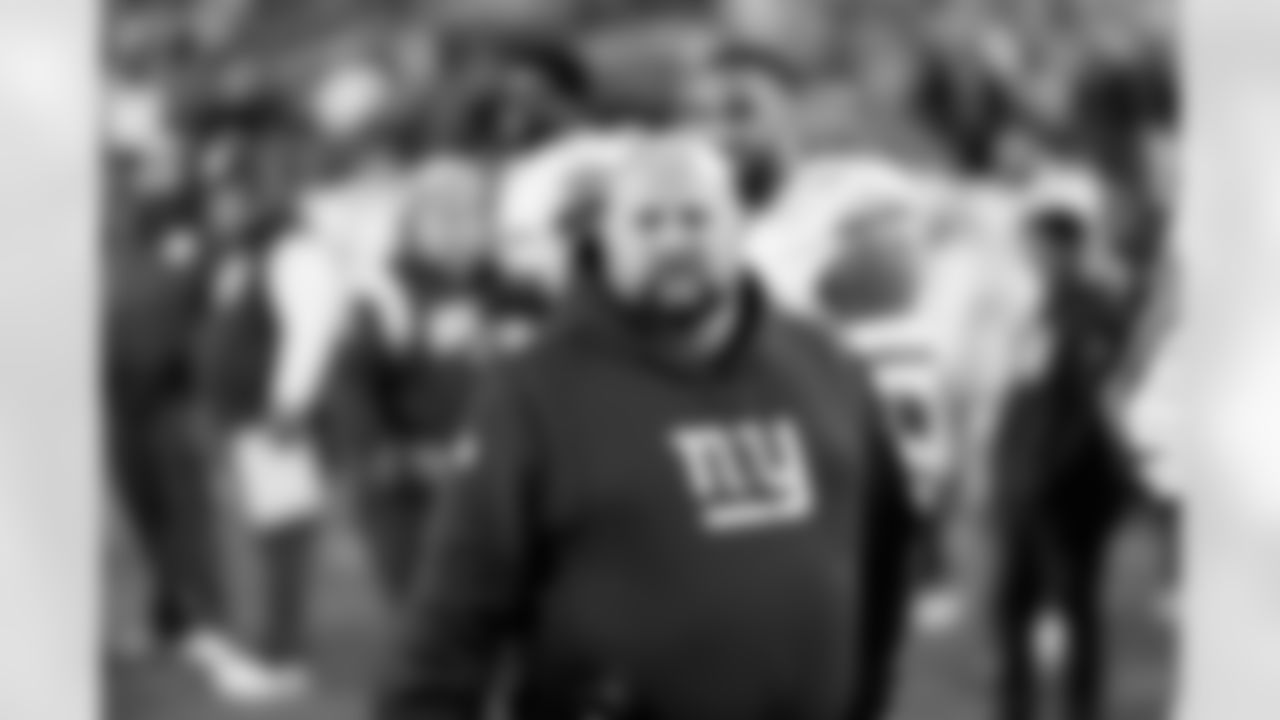
Brian Daboll Head Coach
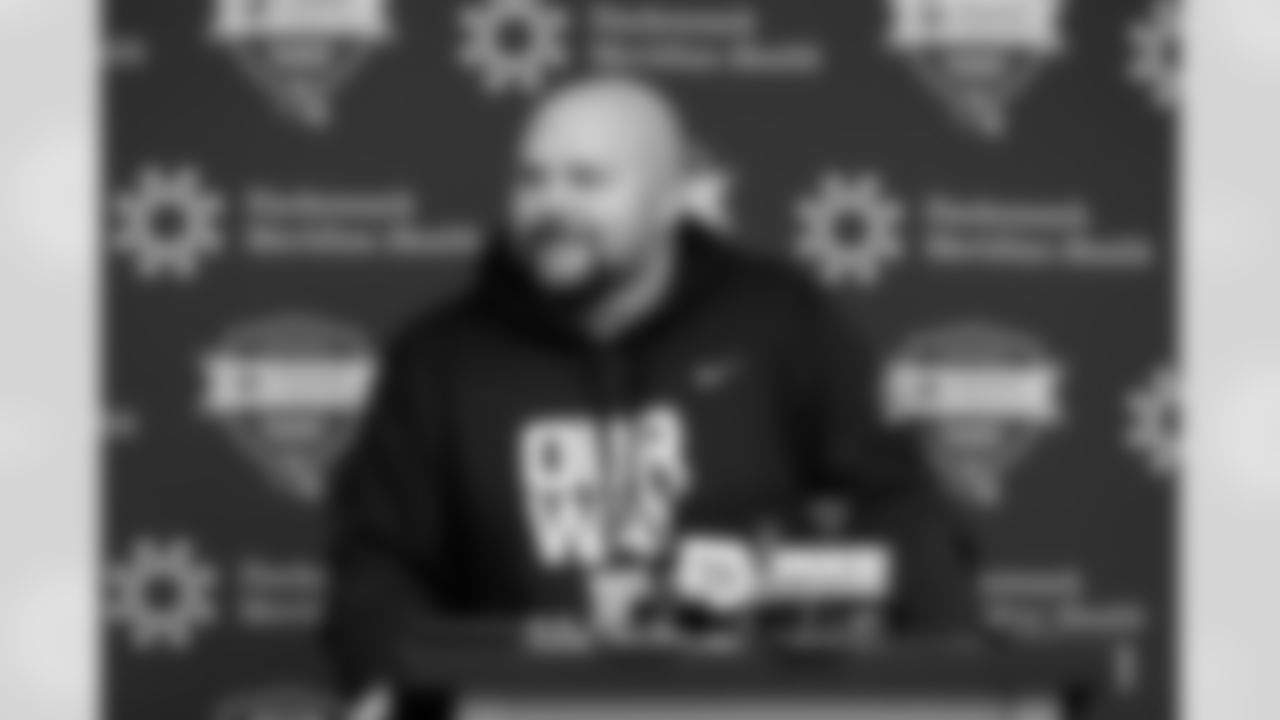

New York Giants head coach Brian Daboll before a NFL Divisional Playoff game against the Philadelphia Eagles, Saturday January 21, 2023 in Philadelphia, Pennsylvania (Evan Pinkus\New York Giants )

Brian Daboll Head Coach
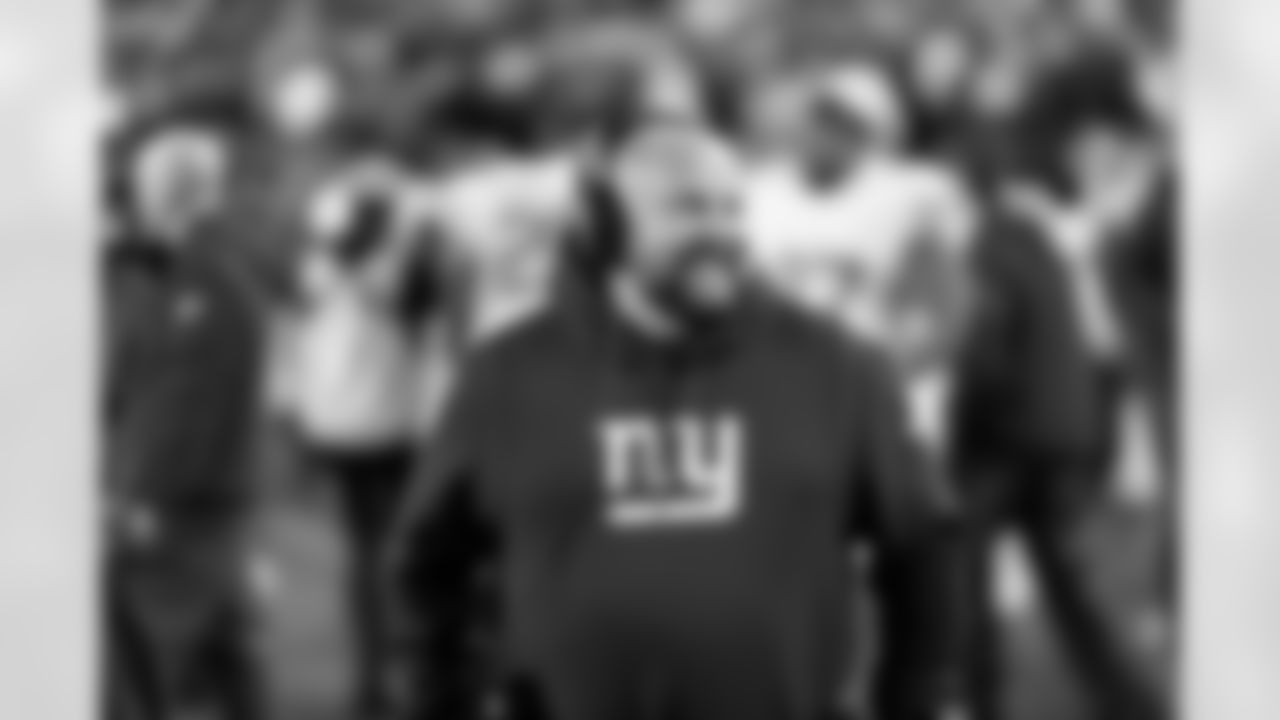
Brian Daboll Head Coach
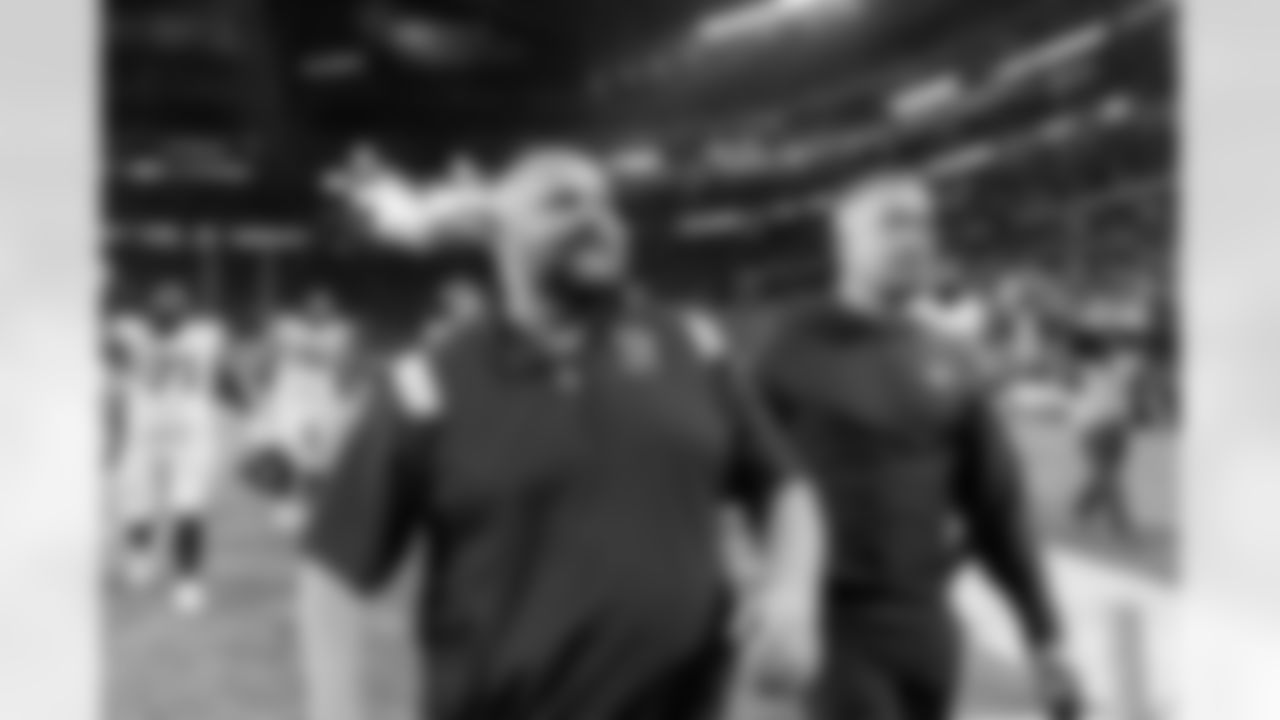
Brian Daboll Head Coach, Jerry Meade Vice President of Security

Brian Daboll Head Coach

Brian Daboll Head Coach

New York Giants head coach Brian Daboll and Daniel Jones hug following a NFL wild card playoff game against the Minnesota Vikings, Sunday January 15, 2023 in Minneapolis, Minnesota (Evan Pinkus\New York Giants )


New York Giants head coach Brian Daboll talks with general manager Joe Schoen before a NFL Divisional Playoff game against the Philadelphia Eagles, Saturday January 21, 2023 in Philadelphia, Pennsylvania (Evan Pinkus\New York Giants )

Don Martindale Defensive Coordinator, Brian Daboll Head Coach
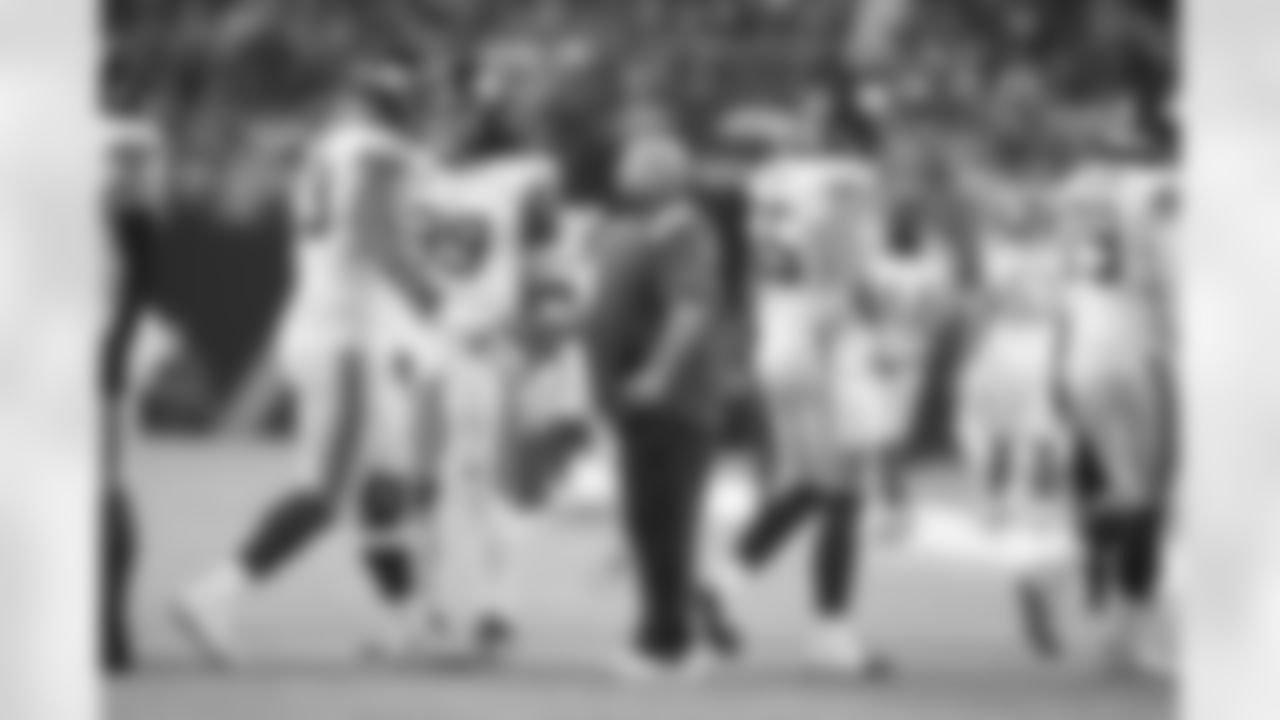
New York Giants head coach Brian Daboll during a NFL wild card playoff game against the Minnesota Vikings, Sunday January 15, 2023 in Minneapolis, Minnesota (Evan Pinkus\New York Giants )

New York Giants head coach Brian Daboll during a NFL wild card playoff game against the Minnesota Vikings, Sunday January 15, 2023 in Minneapolis, Minnesota (Evan Pinkus\New York Giants )
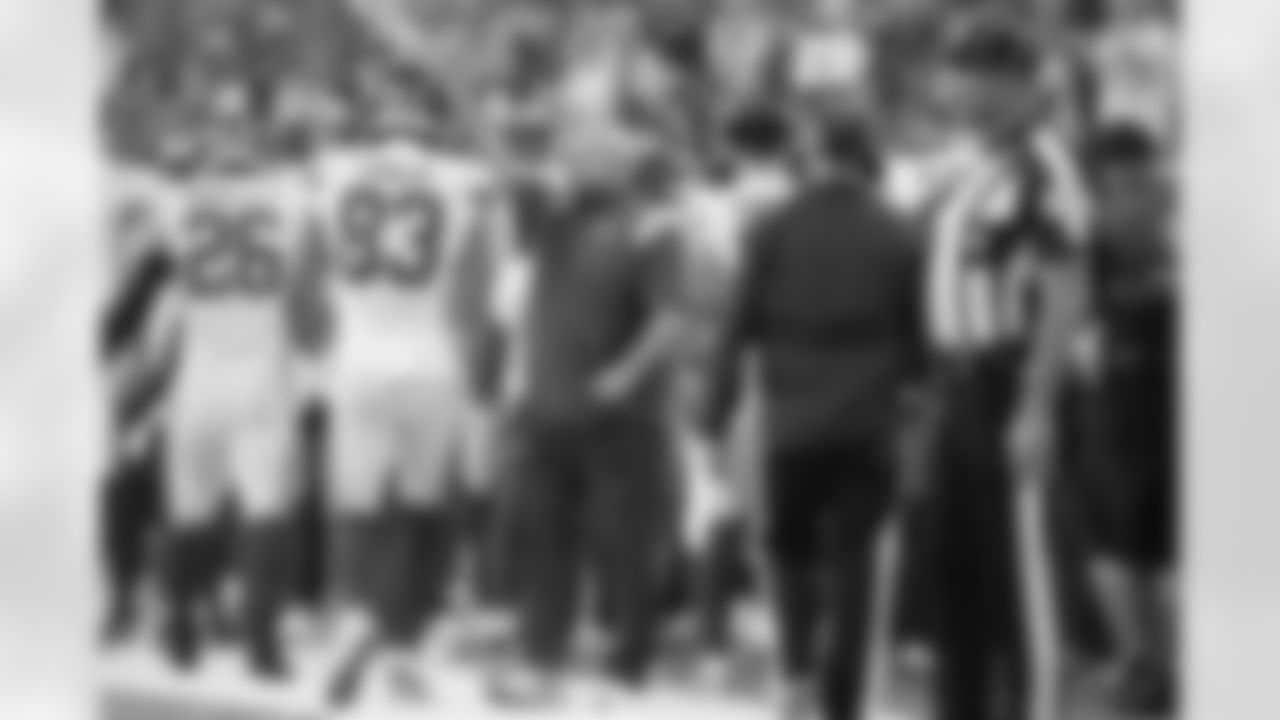
New York Giants head coach Brian Daboll during a NFL wild card playoff game against the Minnesota Vikings, Sunday January 15, 2023 in Minneapolis, Minnesota (Evan Pinkus\New York Giants )
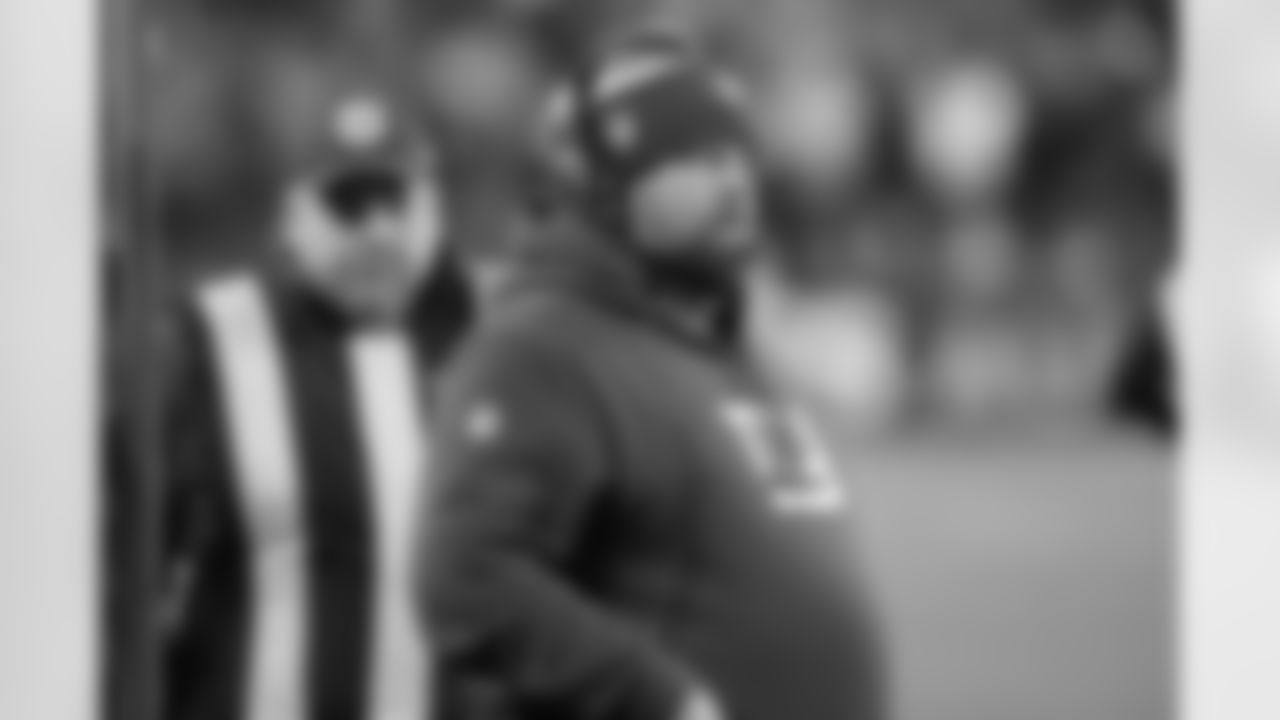
New York Giants head coach Brian Daboll during a NFL Divisional Playoff game against the Philadelphia Eagles, Saturday January 21, 2023 in Philadelphia, Pennsylvania (Evan Pinkus\New York Giants )

New York Giants head coach Brian Daboll during a NFL Divisional Playoff game against the Philadelphia Eagles, Saturday January 21, 2023 in Philadelphia, Pennsylvania (Evan Pinkus\New York Giants )
Q: The win against Baltimore last week was the first in which you had significantly fewer penalties than your opponent (3-10). Is that an important advantage? Is it something you preach?
Daboll: "We just preach on being smart. To me, there's two different types of penalties. There's pre-snap penalties, which are really concentration and focus penalties, which we want to avoid. And then there's in-play penalties, and that's usually a result of techniques and fundamentals. So those are the things that we teach as a coaching staff; they're going to happen sometimes. We want to play aggressive. We want to play physical. And you've just got to do your best to play with good technique and good fundamentals. The pre-snap and the post-snap penalties – the penalties that you get after you shove somebody and you get an unnecessary roughness penalty, or you do something that's going to hurt the team based off of emotion – those are the ones that we really harp on."
Q: Before you arrived, turnovers were an issue with Daniel Jones. This season, his turnovers are down significantly, and he has the highest completion percentage of his career. I assume reducing his turnovers was a priority. Was improving his completion percentage another?
Daboll: "I think we just coach him the way we think we need to coach him in terms of fundamentals and techniques, decision-making process, being aggressive, not reckless. And I think he's a very coachable player. I think experience helps, but we've tried to do everything we can do to put a system around him that he feels comfortable with."
Q: You've had pretty good success in third-and-longer situations, which at times can be difficult.
Daboll: "Absolutely."
Q: Last week on the Wan'Dale Robinson touchdown drive, you had the 18-yarder to Darius Slayton and the 15-yarder to Wan'Dale. Daniel seems to be good in those situations. Is there a specific reason why?
Daboll: "I think he's executing well. In those situations when the entire stadium pretty much knows it's going to be a pass, for the most part, it takes all 11 guys being in the right spot. Whether you have pressure or not, you're going to get a full-charge, full-head of steam rush. So the line has got to do a good job of letting receivers get down the field if you're choosing to try to convert on really long situations. Daniel's doing a good job. But the 10 other guys around him, they've got to do their job, too."
Q: Your third-down defense is one of the best in the league. I've always been told that a good third-down defense is a corollary of a strong first-down defense. But your first down defense is actually last in the league in yardage allowed per play. Is that incongruous to you? Or do you step it up on third down when it's crucial?
Daboll: "I just think you look at the third downs. They're their own entity. When you get them in third-and-long, usually third down in the NFL is advantage defense. If you look at numbers throughout the years and see the percentage of converting and go from two all the way on, it obviously gets less and less. So, the times we're in third down, I think we're playing good team defense. Our goal is to get them into more third downs."
Q: When you are asked about your assistants, it's usually about the coordinators. Daniel Bellinger is a player who's getting a lot of attention for his good play. And tight end is one of the positions that you coached. Your tight end/fullback group is a bunch of 'who are these guys?' Can you talk about the job that Andy (Bischoff) is doing with this group?
Daboll: "He's done a really good job. I think he's got a good understanding of our scheme and doing the things that we want to do. I think he's had some good experience He's a good fundamental coach. He brings up good ideas to (offensive coordinator) Mike (Kafka) and to the offensive staff. I think he's got a good relationship with his players. I think they respect him, and there's good give-and-take in that room. These guys are younger players or more inexperienced players. I think Andy has done a really good job of developing their skillset. I would include (offensive quality control coach) Angela Baker, too, who helps out with the tight ends. I think both of those coaches do a great job of telling the players what to do, teaching them how to do it and then demanding that they do it the right way and keep improving."
Q: When you have young players who show you they can perform at a certain level and handle a certain amount of work, do you then say, "Okay, they can do this. Let's try to give them a little more and a little more," as they prove what they can do?
Daboll: "I think anytime you're developing a young player, experiencing live-game situations helps them because the next time they see it is not the first time they see it. So, that helps a great deal for young players in general. From game one to game four, from year one to year two, you usually see a lot of young players make probably their biggest jump from year one to year two because of the experience they got. And as you get going throughout the season, I think you're identifying what you do well, too, offensively not just for young players offensively, and then as a coach, you're trying to put them in the best position they can be put in, and they're also improving throughout the year. You see certain things that come up and say, 'Boy, let's try this,' or 'Hey, you're really doing a good job of this. Let's focus on this.' Or maybe it's something that they're not doing well, and you take it out. But I think player development, particularly young player development, is very critical to success of teams."
Q: The situation last week where Saquon (Barkley) went down before the end zone to retain possession. You said it had been discussed previously. Are there situations that you go over every week? Are there others that you cover more infrequently? Are there some that are opponent specific?
Daboll: "Situational football, you're constantly coaching. I meet every week with (offensive assistant/game manager) Cade (Knox) and (director of football data & innovation) Ty (Siam). They are long meetings. We study a lot of different things from around the league. We talk about a lot of different situations on our Saturday walkthroughs with the team. We spend a great deal of time – on both sides – of situational football calls, as we do on Friday practices. You try to be prepared. That's your job as a coaching staff, to be as prepared as you can be when things come up. And they come up fast, so you have to have answers fast. The more you can talk about it, review it, study it, communicate with the coordinators, the more everybody's on the same page, the quicker those decisions can be made. But we practice a lot of situations."
Q: Some of the funky – for a lack of a better term – plays and formations like the inverted wishbone last week from which you passed to (running back Matt) Breida. Obviously the goal is to have – as you did the other day – a big play. But is there also an added benefit by giving the opponent and future opponents more to think about?
Daboll: "Yes. When you do unique things, so to speak, you want them to work. And when they work, it's great. And when they don't, you're not very smart. I want to encourage all our coaches each week to think outside the box. And if there's something that we think can help us or give us an advantage, let's bring it up and discuss it. I want each meeting room – relative to the special teams room with the coaches, the defensive coaches, the offensive coaches – to throw out as many ideas as it can, and communicate, 'This would be a good play because of this.' There's no bad idea. You just have to come to the conclusion as a staff to make the right choice in terms of what you want to do. Sometimes you have a few in a game; sometimes you have more than a few. Sometimes you don't have any. But I think that to cultivate rooms in which people can freely come up with cool ideas is important to the growth of our team."
Q: The last time you were in Jacksonville, you were part of one of the ugliest games probably in memory. The 9-6 game (that Buffalo lost to the Jaguars on Nov. 7, 2021).
Daboll: "Let's move on from that."
Q: Bad memory?
Daboll: "Yeah. It was brutal."
Q: Jacksonville has four losses but all by one score. Like the Ravens last week, they seem to have played better than their record indicates.
Daboll: "All you do is focus on the players and the schemes that you're getting ready to play each week. To me, records are meaningless until the season is over, and you figure out where you're at or not at. You don't get caught up in, 'Well, this team has this record, or this team has this record.' This is a good football team. They have a lot of young, talented players on their team on both sides of the ball. I think (Jacksonville) coach (Doug) Pederson is a fantastic coach. Look at when he was in Philadelphia. He's got a great offensive mind. I've never worked with him, but he just comes across as a really good leader. I think he's done a really good job at Jacksonville. When you put on the tape, and you watch them play, they're a tough opponent to play against. They have a lot of challenging schemes. Offensively, they're very creative. And defensively, they are, as well. They have really good players, a lot of high round picks that have a lot of talent. Again, usually these games come down to a few plays each week in our league. They put it on a couple of really good teams and had the opportunity in some other games, too. Relative to their scheme, their coaching and their players, this is a very talented group."
Q: They're the only team with two 300-yard rushers: James Robinson and Travis Etienne (Jr.). Are they similar in the way they run?
Daboll: "They're all good. They're all talented. They have their own strengths, and they can take it to the house. They can take it the distance. They have. They've had some really big runs. They all make yards, catch the ball. They'll play two of them at a time. They'll play one at wildcat; I'd say it's a unique running back group that can do a lot of different things. You need to know who's in the game, and you've got to really tackle well in space because these guys can eat up a lot of yards. And they can take it to the house."
Q: They ran for 243 yards last week.
Daboll: "Yeah, a couple of big plays."
Q: And you gave up 211 yards last week. I know run defense is always a priority…
Daboll: "It always is. Each week, it's a new week. You're playing a different team with a different set of challenges with different schemes with different players. The thing that we stress each week is just continue to improve our fundamentals. That's why we come in every Monday, because there's a lot of things you have to fix and correct, and when you're doing those things, you're not just doing them because you see it on tape as a coach. You know there's tape out to every team in this league, and your opponents are seeing a lot of the same things that you're seeing. In order to improve as a football team, those Monday meetings or if we have to come in on Wednesday to make sure we're fixing the things that we need to fix. We have a long way to go. There's plenty to fix. From one week to the next, if you don't get it fixed, you expect to see some of the same stuff you saw until you get it fixed."
Q: (Jaguars quarterback) Trevor Lawrence has eight turnovers, which is not unusual for a young quarterback. But as you watch him on film, do you see the sharp decision making, the arm strength, the accuracy?
Daboll: "I do. He was that pick (first overall in 2021) for a reason. I've seen him play in high school. I've seen him play in college. I've obviously seen him in the pros. (He's an) athletic quarterback, gifted, arm talent. He's got a very bright future. He's a good player."
Q: Lastly, Travon Walker and Josh Allen get a lot of the attention because that's what edge rushers do. But (linebacker Foyesade) Oluokun and (linebacker Devin) Lloyd are posting impressive numbers. Oluokun, according to the Jaguars, had more tackles than anybody in the league last year.
Daboll: "I would just say that they have a talented defense in general. They've got a lot of speed. They've got good strength and power. I think both of the linebackers that you just talked about are very good tacklers. They see ball, get ball quickly and get guys on the ground. We have to do a good job of getting a hat for a hat in the running game here."

Giants App
Download the Giants' official app for iPhone, iPad and Android devices














